the dignity issue
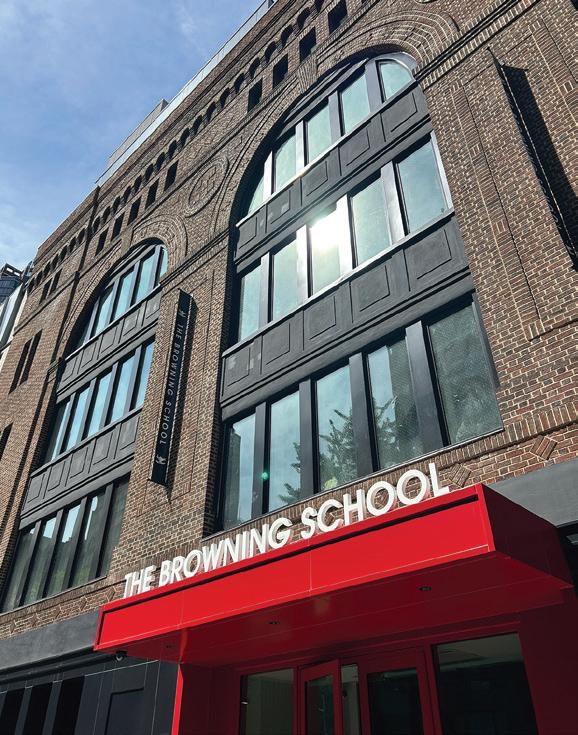
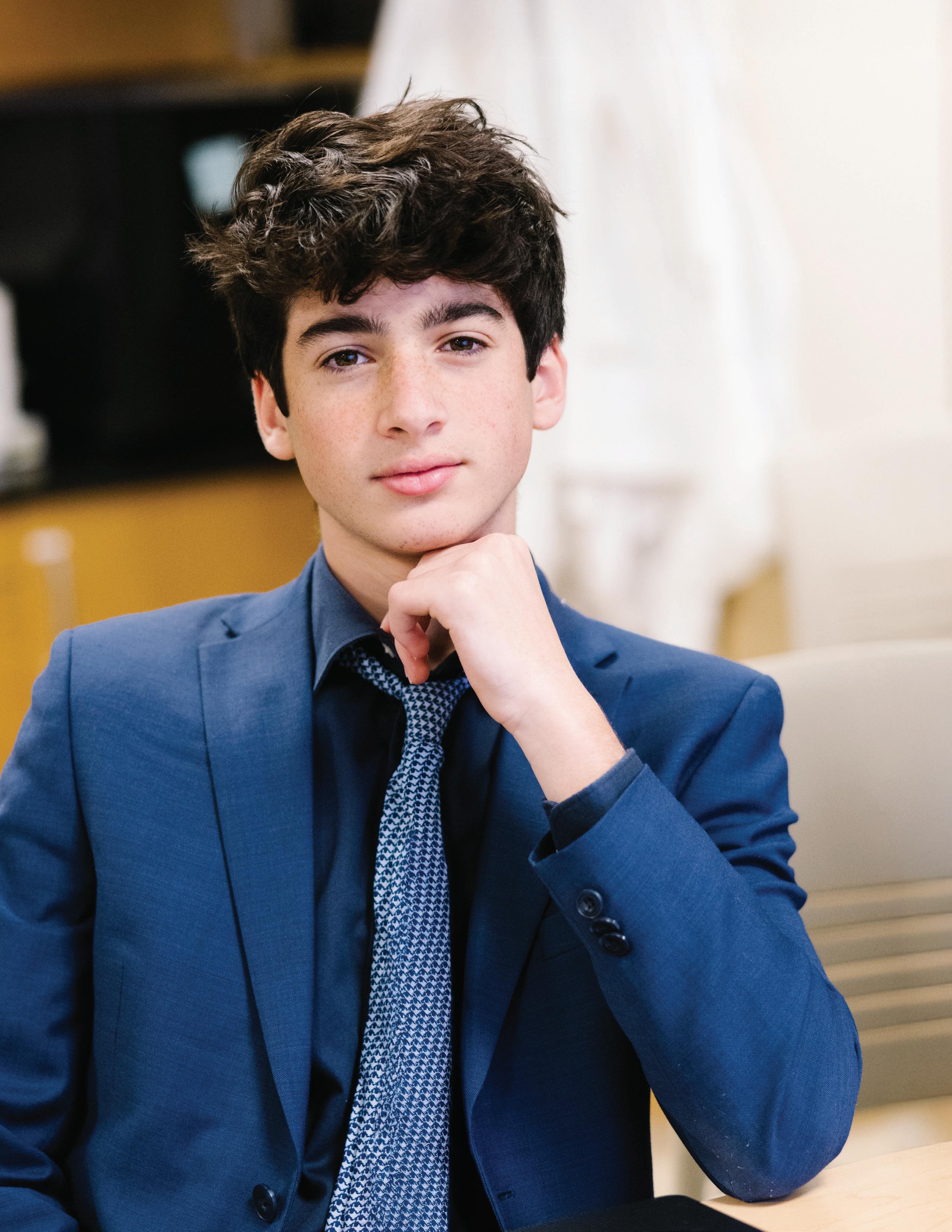
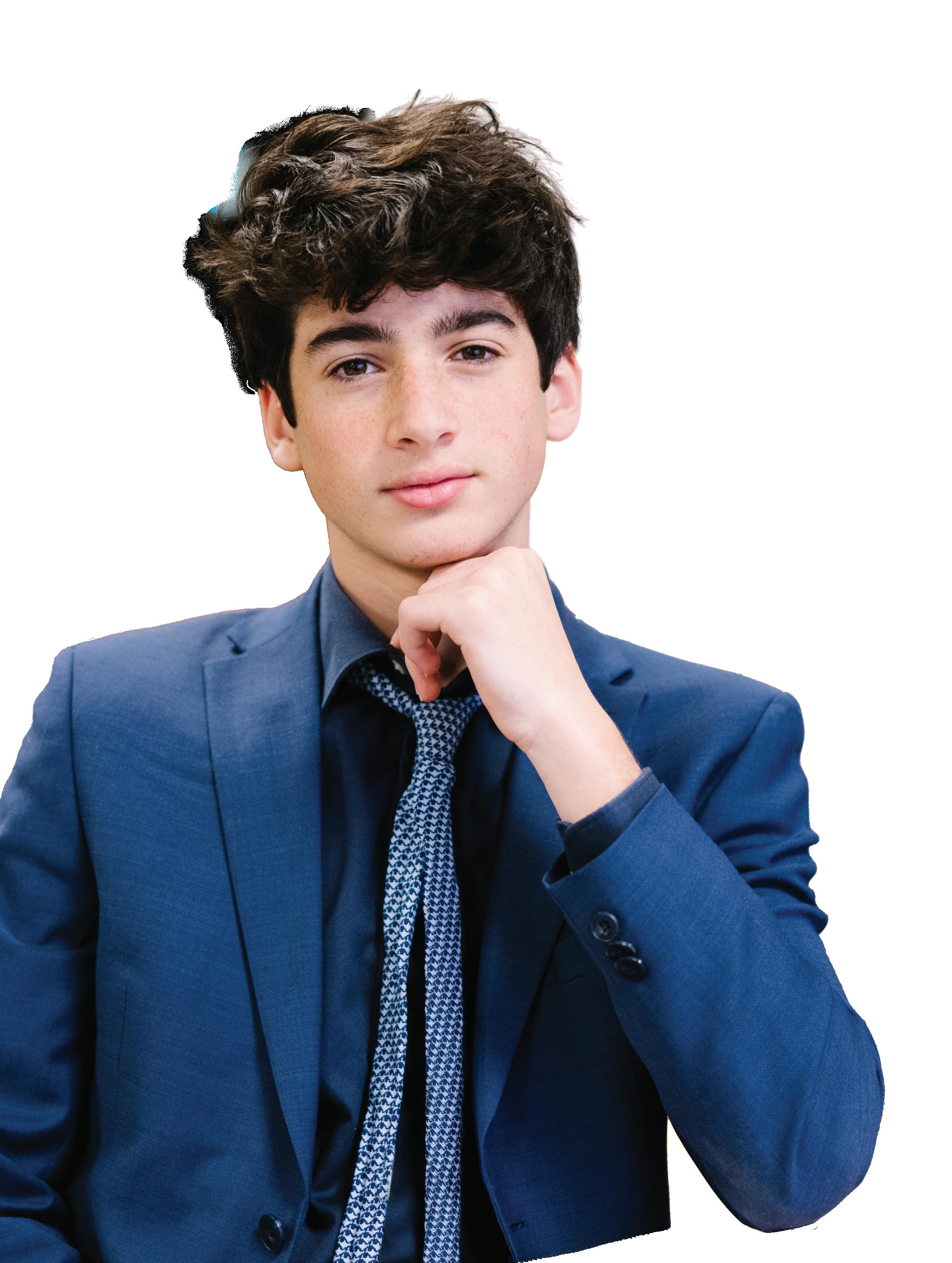
Grades 9–12 actors lit up the stage at Browning’s first-ever Upper School Theater Workshop, with scenes and monologues spanning a breadth of work from Shakespeare’s classics to the modern voices of Samuel Beckett and Annie Baker.
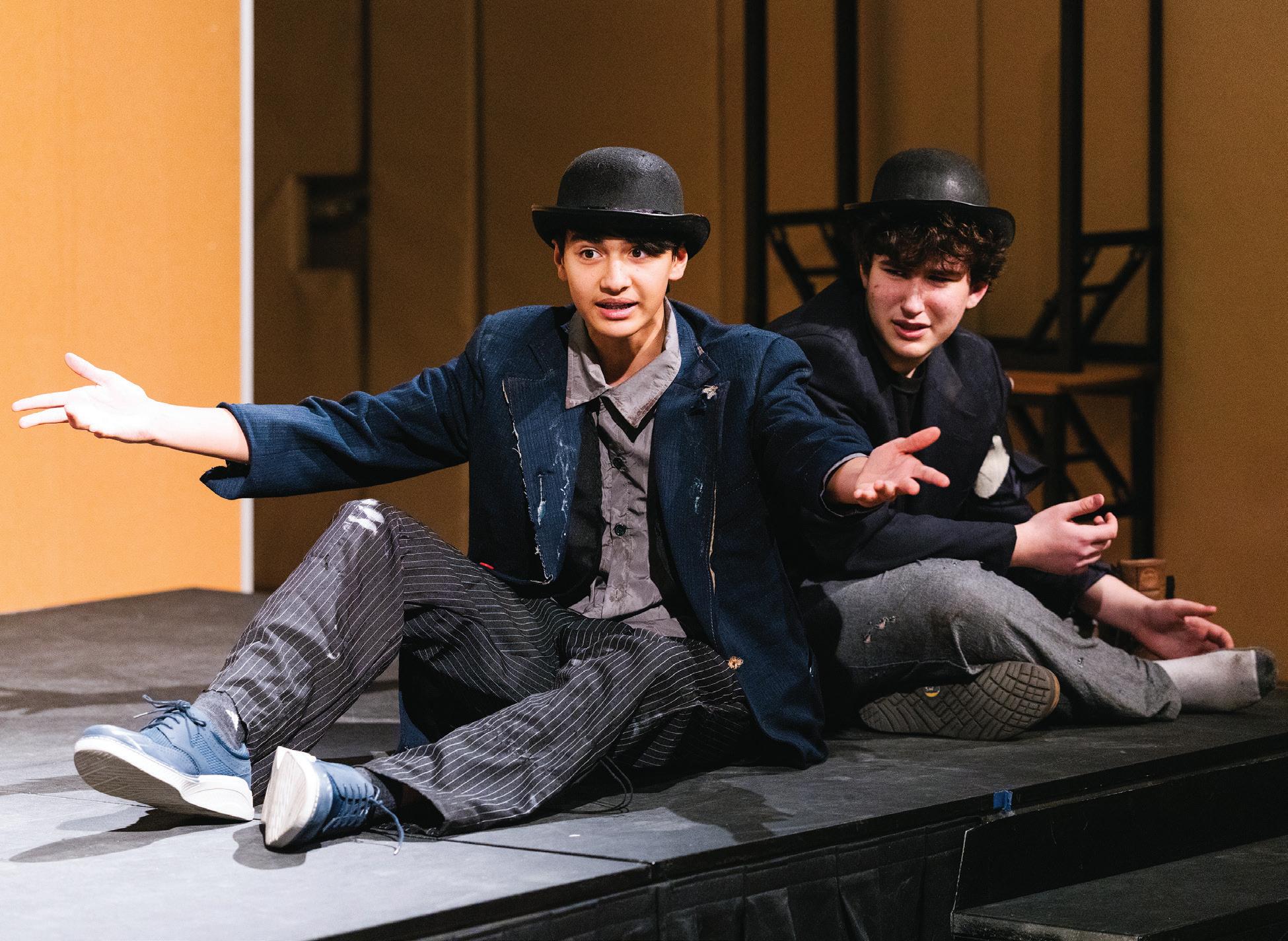
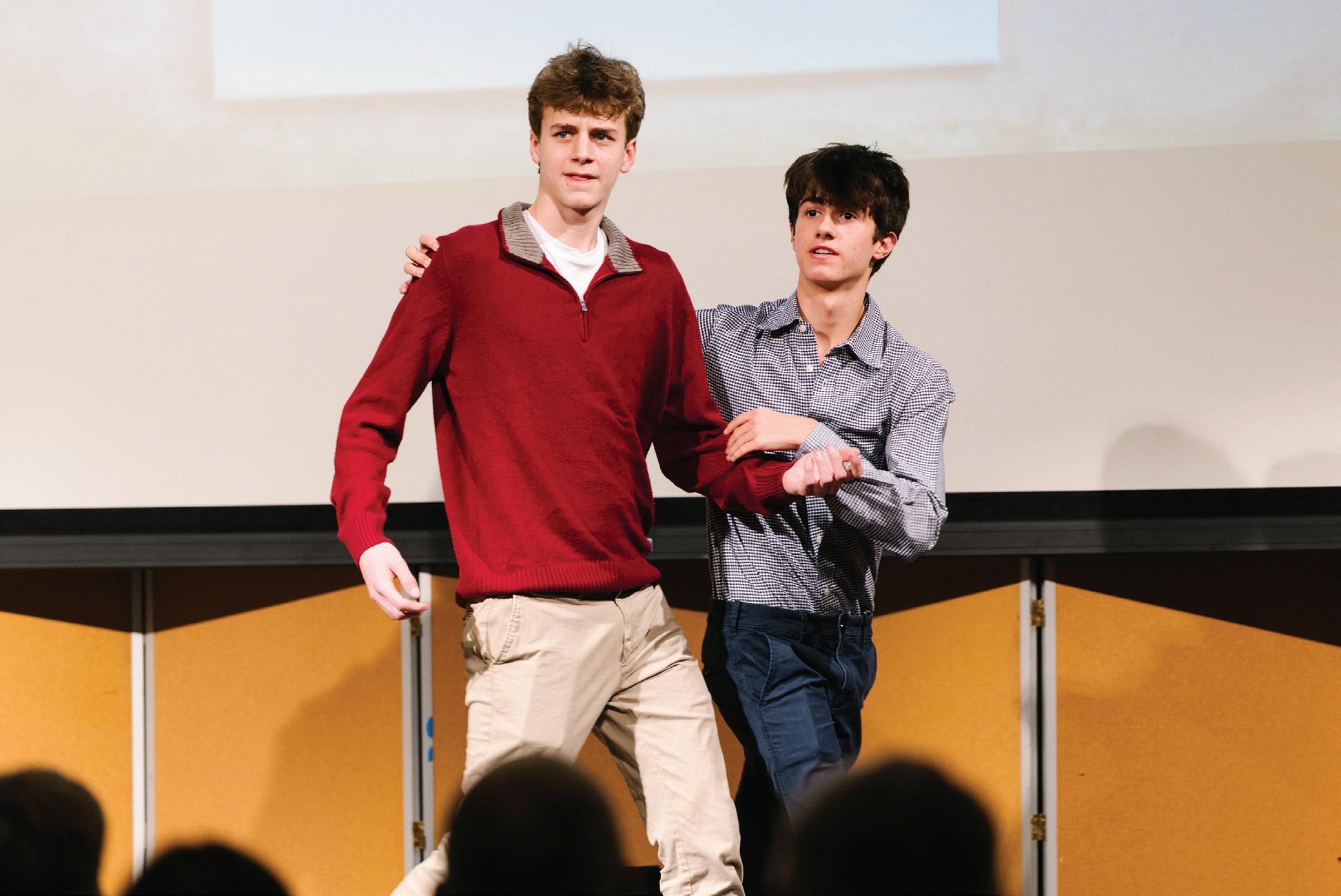




Grades 9–12 actors lit up the stage at Browning’s first-ever Upper School Theater Workshop, with scenes and monologues spanning a breadth of work from Shakespeare’s classics to the modern voices of Samuel Beckett and Annie Baker.


In a year that has seen a transformative expansion of our school, it is vital to remember that no matter our location, Browning’s core values remain unchanged. It is thus fitting that, in addition to celebrating the opening of our magnificent Upper School building, this Buzzer marks the conclusion of our series honoring Browning’s four core values.
Dignity can, sadly, sometimes seem in short supply today. A coarsened and angry culture, distorted by social media and a lack of civil discourse in person and online, can rob our boys of the essential chance to encounter models who espouse belief in the inherent worth of all persons. In such a diminished discourse, it is too easy to separate the world into purported winners and losers, to inhabit only the confines of our own communities, and to neglect how honoring the inherent value of all humans is intrinsic to living a purposeful life.
Stepping behind the Red Doors, however, reveals a more hopeful story. At Browning, we teach the rewards of open, genuine engagement with real-life conversation partners, and we model the power of being able to change one’s mind. This issue’s article by Latin teacher Benjamin Joffe shows how learning about dignity in his Reading Greek elective quite naturally encompasses Browning’s other core values of curiosity, honesty, and purpose. As Mr. Joffe describes a course where boys grapple with ideas and listen to their peers, seeking insights rather than firm answers, he illuminates why an education with relational dignity at its center leads to greater student engagement.
The attributes those Upper School boys brought to that table are not merely rooted in their character or upbringing; in fact, they can be taught. This year, Grade 4 teacher Inshirah Jones sought to understand how analysis of diverse literary narratives could deepen empathy, as part of an International Boys’ School Coalition action research project. The study showed that boys’ empathy grew as they encountered stories whose protagonists’ experiences differed from their own. The boys were able to articulate the ways in which they saw themselves in a given protagonist, and activating this empathy increased their sense of responsibility for creating a supportive environment within their classroom community.
We teach our values as we do any academic discipline, because while intellectual mastery is crucial, it also requires a value-driven character to direct it. To contribute meaningfully to our world, a Browning boy must embrace the fullness of his own humanity, and that of others. This quality, this sense of dignity, may not always be properly recognized as essential to manhood, but its value is immeasurable both to our boys and the world they will enter.

John Botti, Ph.D. Head of School
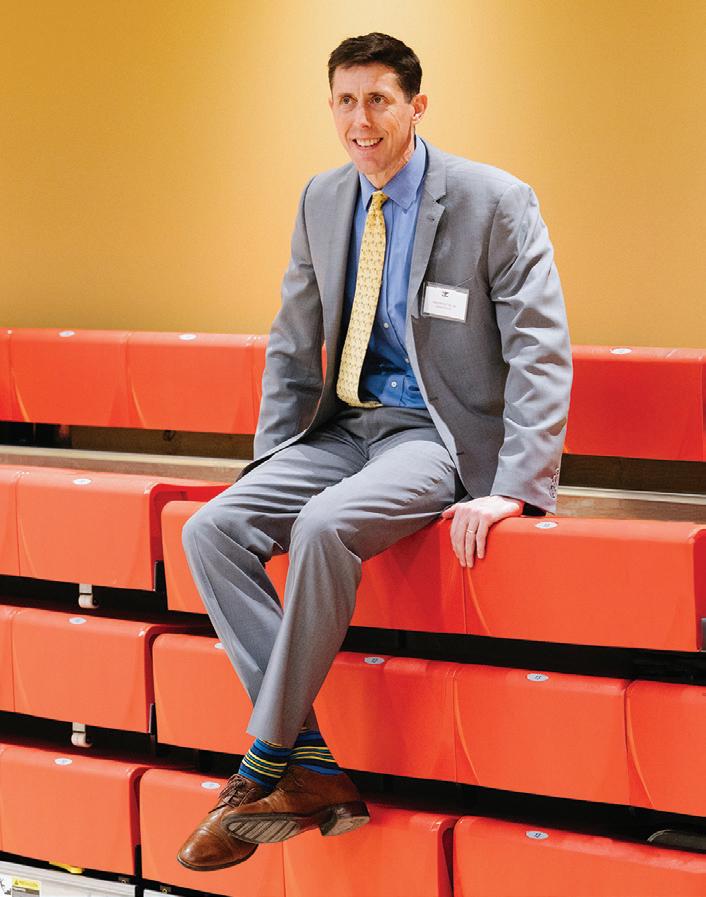
Hear Dr. Botti on an International Boys’ Schools Coalition podcast discussing Netflix’s Adolescence and raising boys in a digital age: tinyurl.com/ibsc-podcast.
Read Dr. Botti’s Margin Notes blog at browning.edu/head-of-school.
“ ”
We teach our values as we do any academic discipline, because while intellectual mastery is crucial, it also requires a value-driven character to direct it.
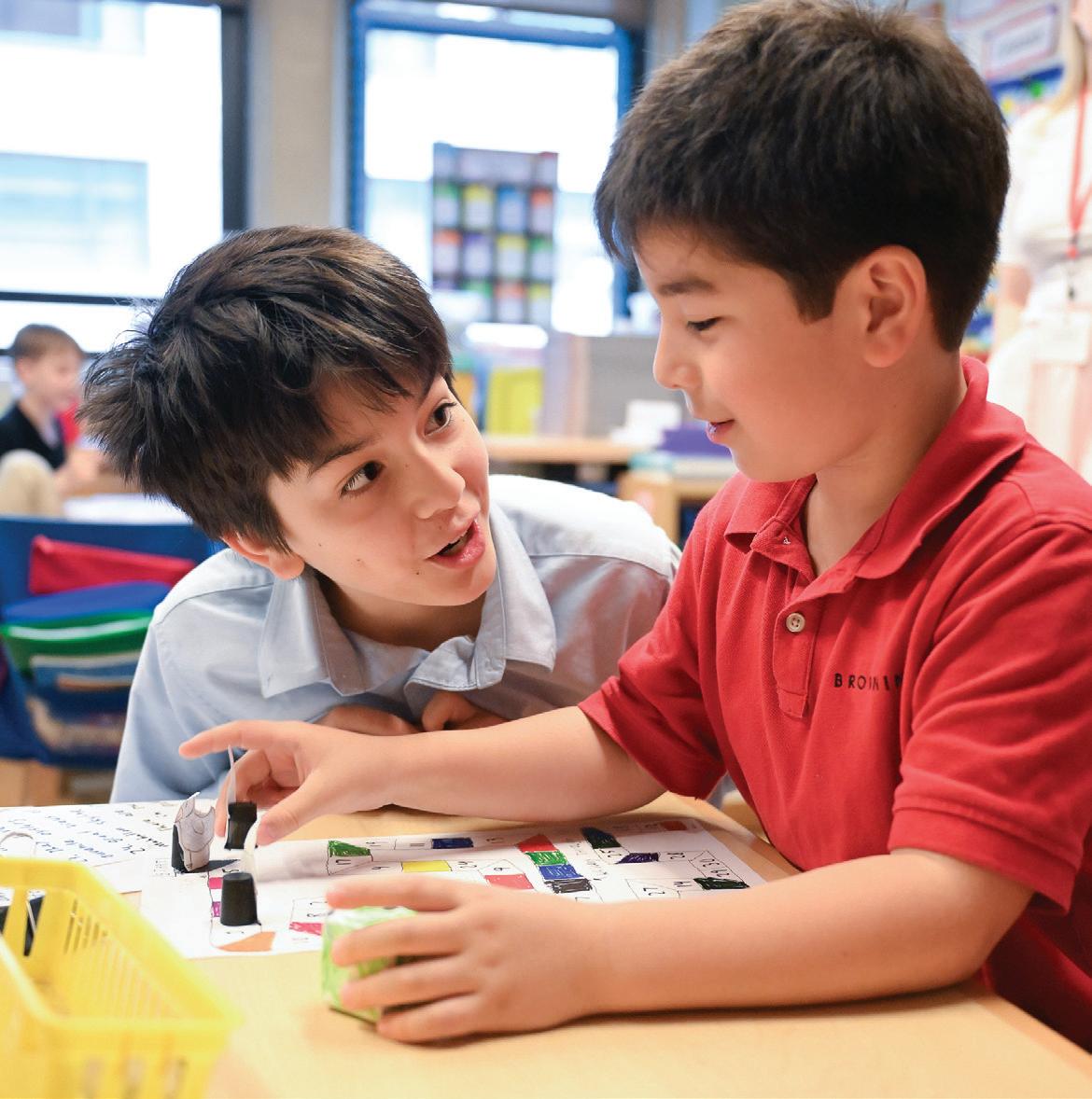
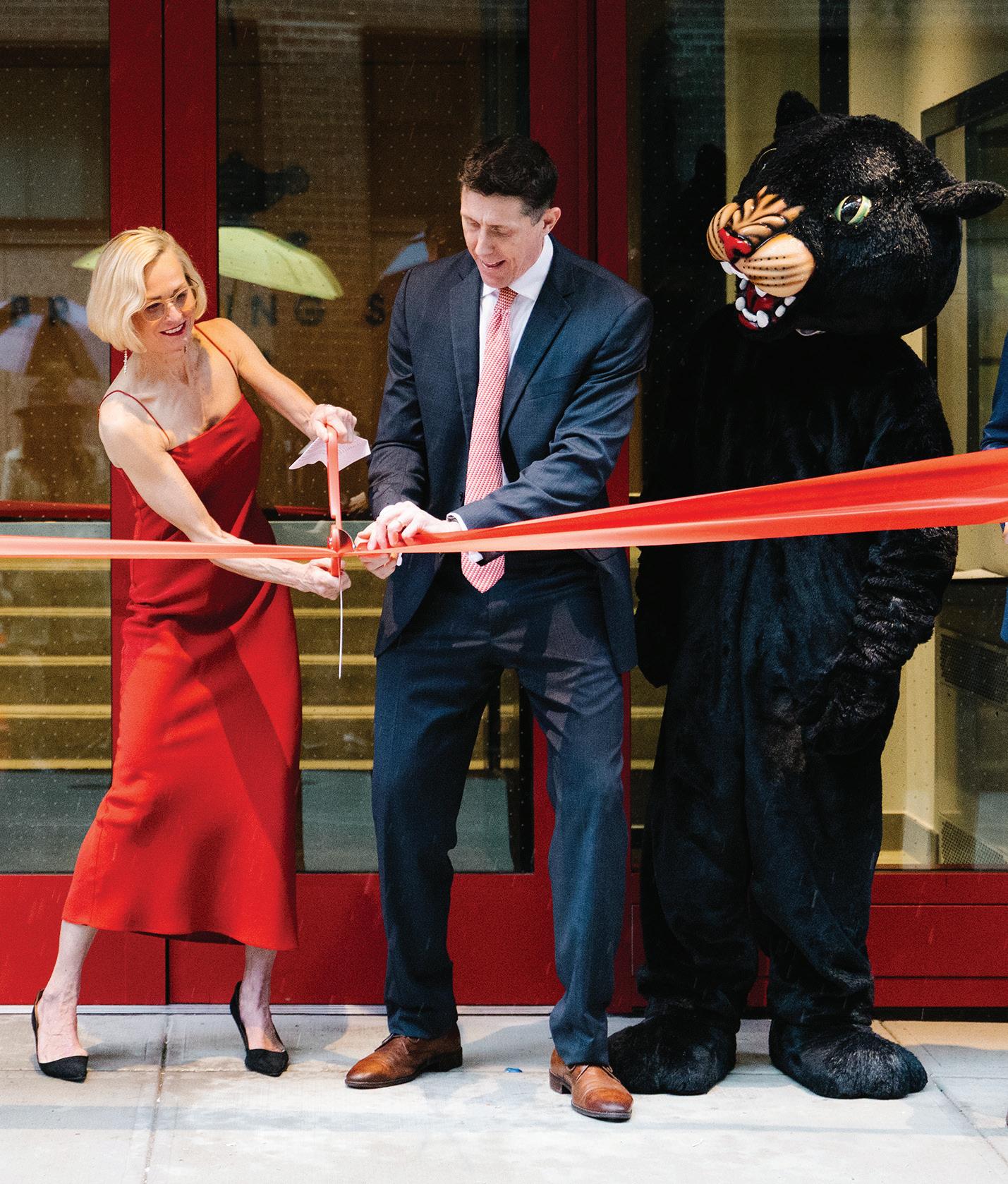
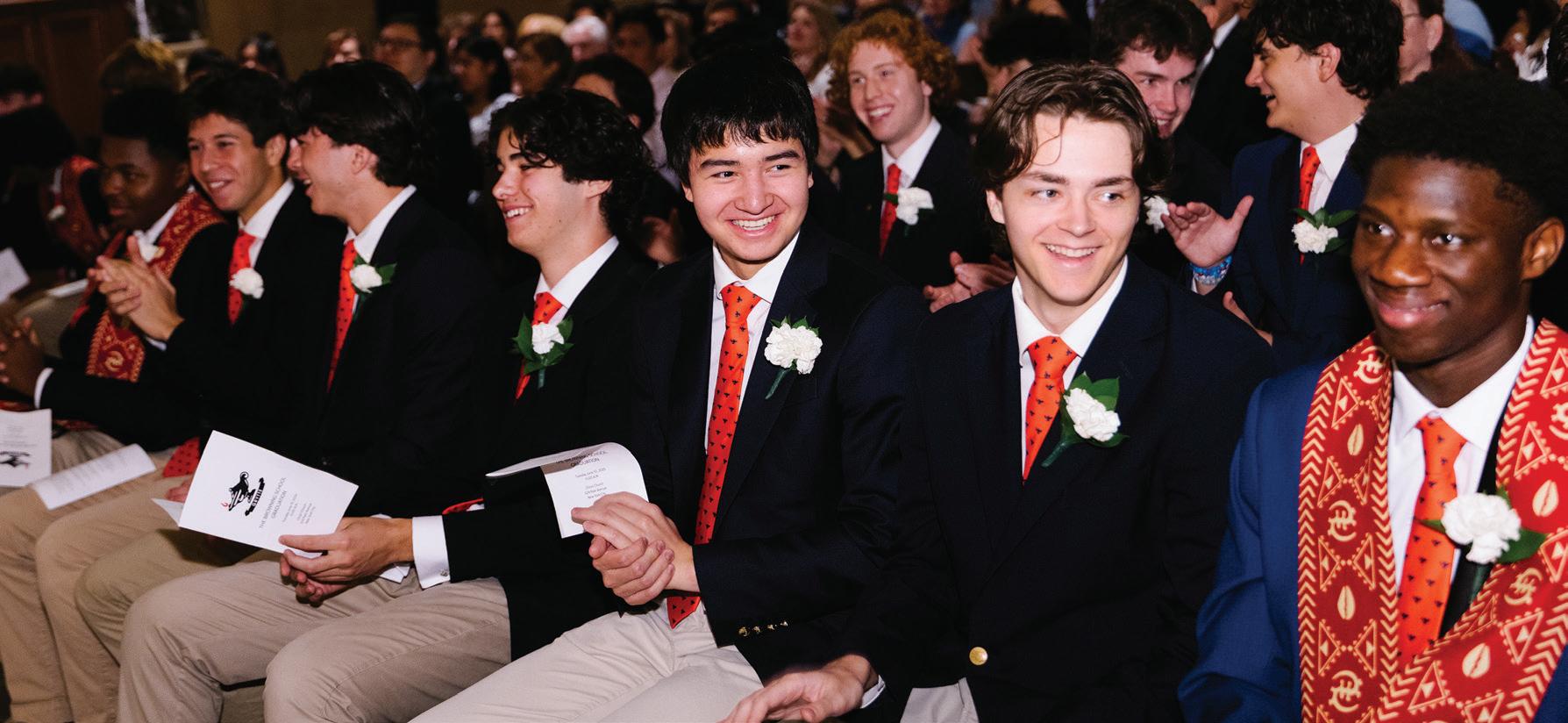
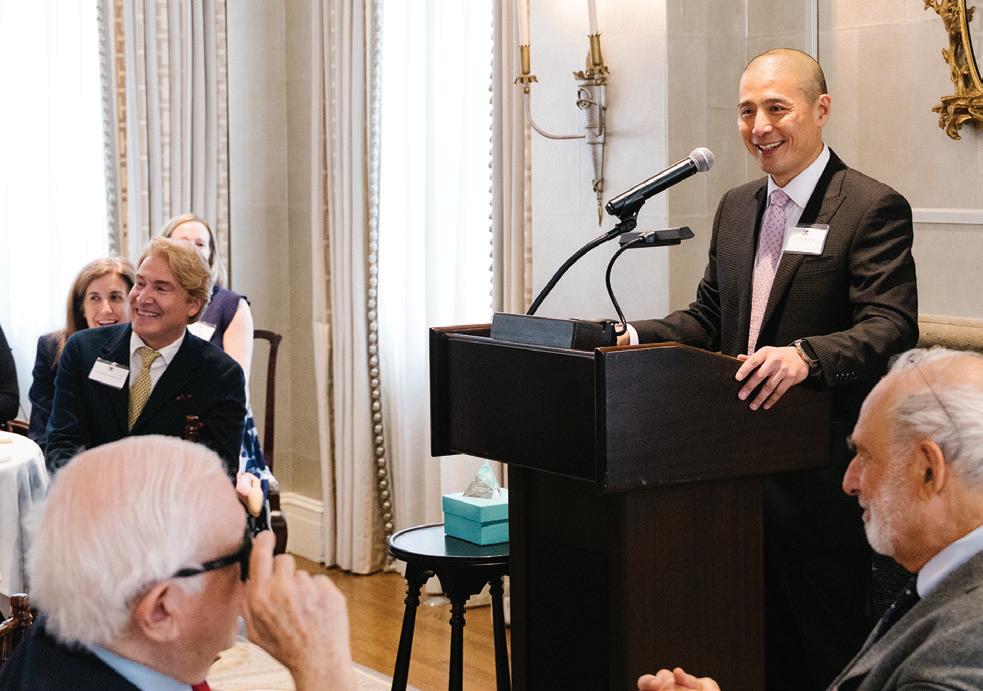
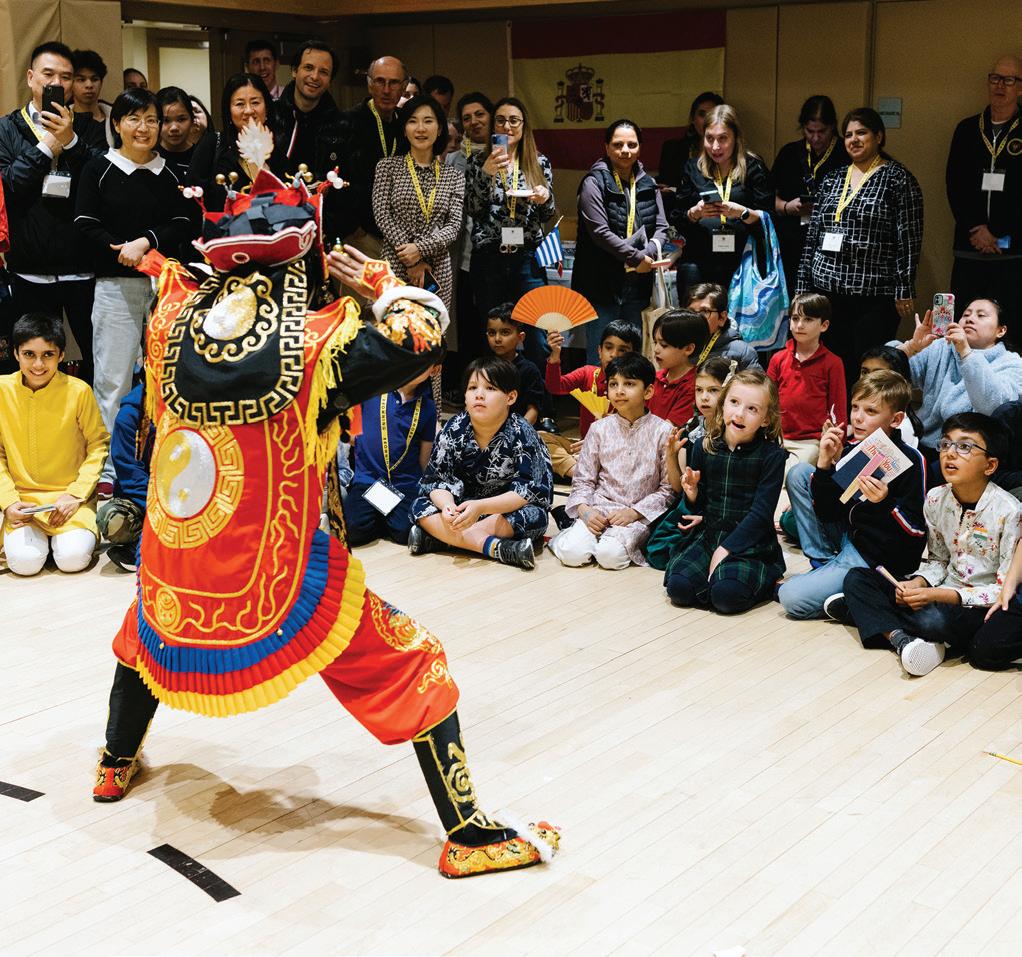
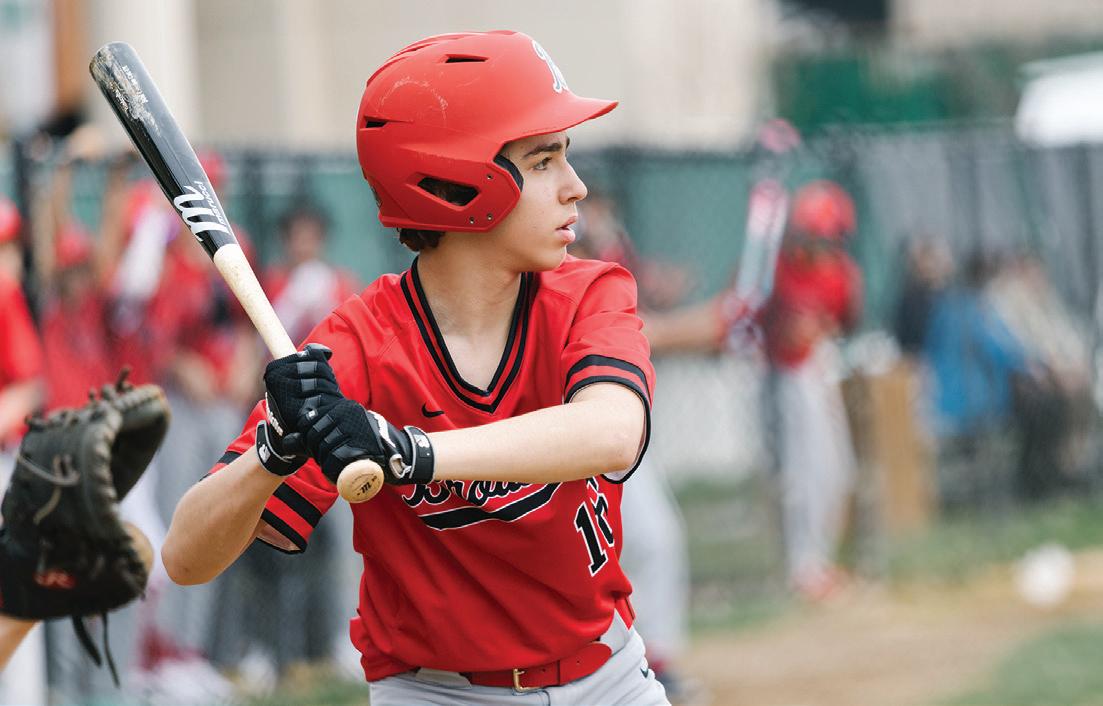
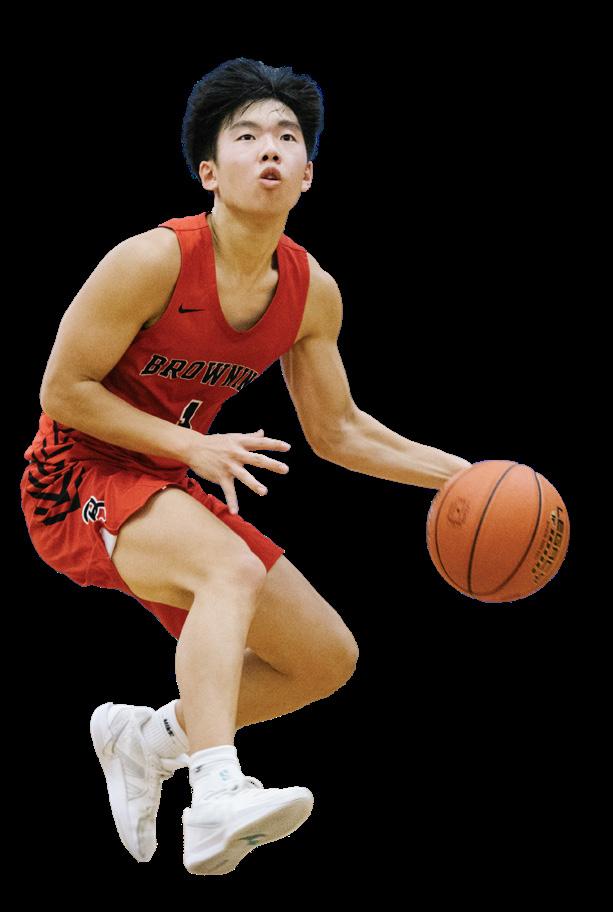
The Browning School fosters growth of courageous and compassionate men of intellect and integrity who aspire to contribute meaningfully to our world.
The Browning gentleman develops amid a community that upholds these values…
We speak the truth, act with integrity and take responsibility for our actions.
We honor and celebrate the dignity of all people and support the power of a diverse, inclusive and welcoming community.
We encourage and celebrate open-minded inquiry about our world and the perspectives of those around us.
We believe that education encourages exploration and discovery in pursuit of meaning and enduring fulfillment.
The Browning School strives to create a diverse community in which all members are safe, respected and valued. We believe that in actively promoting a diverse learning environment, we are fostering intellectual, social and emotional growth for all. Recognizing and pursuing diversity, however, are not enough; we seek to transcend mere tolerance of differences and aspire to a celebration of the varied appearances, abilities, perspectives and values that characterize our community.

This year marked the debut of the Browning Panthers LEGO Robotics Team. Open to Grades 5–8, the team immersed students in STEM through hands-on building, programming, and problem-solving. The boys proudly represented Browning at the FIRST LEGO League Challenge, advancing to the semifinals in their very first season!
Safa Javid, the team’s coach, reported: “The team exemplified the FIRST core values of teamwork, perseverance, and innovation. Their journey not only sparked curiosity and collaboration but also laid a strong foundation for future seasons of robotics excellence at Browning!”
Browning showcases community and connection; our boys shine in competitions
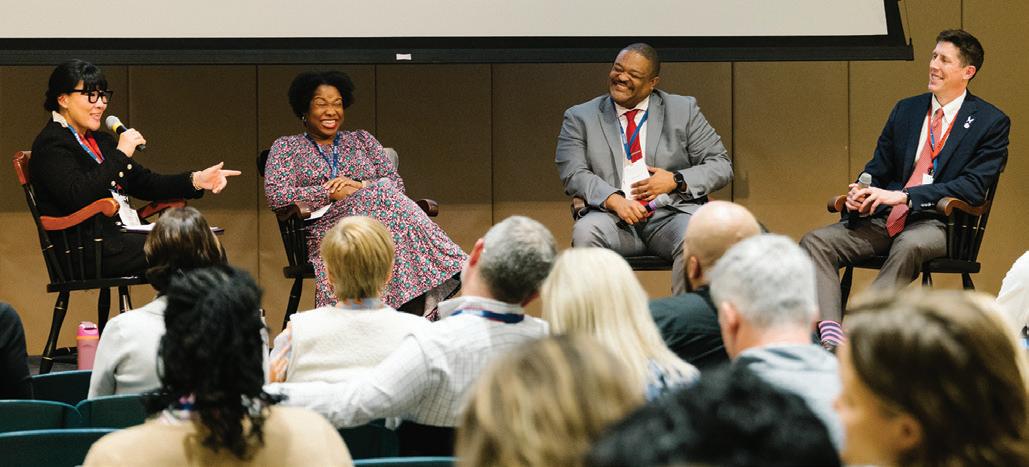
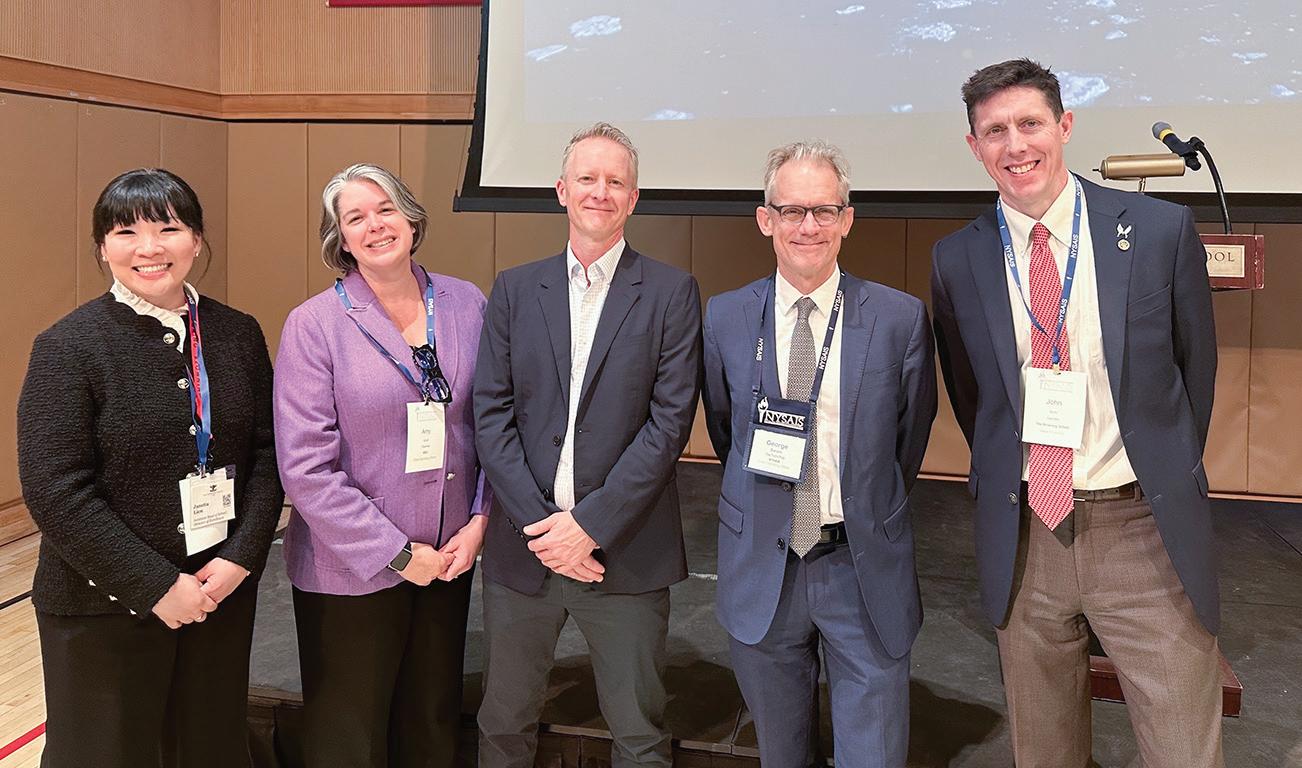
In April, Browning hosted the IBSCNYSAIS Educating Boys Conference, centered on the theme of “Thriving Boys.” Educators and leaders explored how schools can empower boys to grow—academically, socially, and emotionally. Keynote speaker Dr. Matt Englar-Carlson shared insights on healthy masculinities and strength-based approaches to boys’ development. The conference also featured a dynamic Heads Panel, with Dr. John Botti alongside Erica Corbin (Cathedral School) and Ramón Javier (George Jackson Academy), on shaping the future of boys’ education.

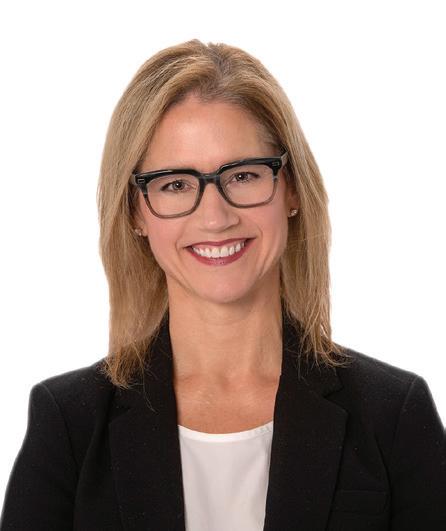
Beth Zapatka began her work as Browning’s new Chief Advancement Officer on July 1!
Ms. Zapatka brings extensive experience in institutional advancement, most recently serving as Vice President for Institutional Affairs at Springfield College, where she led the school’s largest campaign, exceeding its $50 million goal. She also held senior development roles at Yale University, significantly growing major gifts and alumni engagement. A graduate of Hobart and William Smith Colleges and the Loomis Chaffee School, Ms. Zapatka is a strategic leader committed to building strong philanthropic partnerships.
Our annual World Celebration brought together students, families, faculty, and staff to honor the many cultures represented within the school community. This spring event featured traditional foods, music, games, and storytelling, offering attendees a chance to experience and share traditions from around the world.
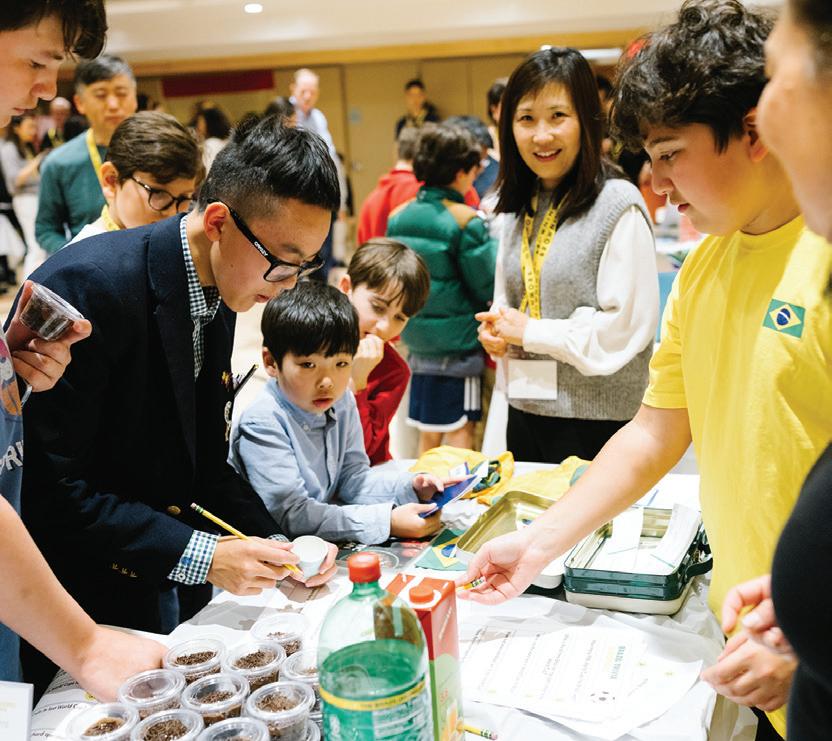


Pierce Wright ’25 was named a Top 300 Scholar in the prestigious Regeneron Science Talent Search (STS), a prestigious science and math competition for high school seniors.
Out of 2,471 entrants nationwide, Pierce’s AIpowered algorithm to improve EMS response to mental health crises—an area of growing public concern and need—earned national recognition for its real-world impact.
In recognition of Pierce’s achievement, Browning was also honored as a Regeneron STS School, receiving national recognition for fostering scientific inquiry and excellence. Pierce’s accomplishment is a testament to the power of curiosity, compassion, and cutting-edge thinking.
Editors
Jan Abernathy, Chief Communications Officer
Jeremy Katz ’04, Director of Communications
Editorial Contributors
John Botti, Head of School
Stacey Duchak, Director of Alumni Affairs
Marley Gifford, Advancement Associate
Benjamin Joffe, Latin Teacher
Massimo M. ’26
Pablo R. ’26
Francesca Ryan, Senior Director of Major Gifts
Andrew West ’92, Director of Athletics
Finn Y. ’26
Contributing Photographers
Coffee Pond Photography
Asher Dorlester
Troy House Da Ping Luo
Design by Michael Wiemeyer / Designlounge, NY.
The Buzzer is published twice a year by The Browning School. Submissions may be sent to Jeremy Katz at jkatz@browning.edu. All submissions may be edited for length and clarity.
Follow Us
Visit our website: browning.edu
Board of Trustees 2025–26
Valda M. Witt, President
Andrew E. Vogel, Vice President
Jeffrey M. Landes ’83, Secretary
Martin Small, Treasurer
John M. Botti, Head of School
Alexander Perruzzi, President, Parents Association
Shagun Mehandru, Vice President, Parents Association
Maegan Boger
Hayley Broadbent
Sandra Buergi
Mitchell Bunnell
George Cabrera III ’98
Sandrine A. Cousquer-Okasmaa
Nathaniel X. Garcia ’06
Christopher L. Hartmann
Carolyn Lamphier
John M. Liftin
Betty Noel-Pierre
Stephen Palmese
Manish S. Parikh
Jerry C. Pi ’95
Ian J. Sandler
Jodi J. Schwartz
Rahul Sharma
Graig J. Springer ’98
Angelos M. Stergiou
Vance Wilson
Sara B. Zablotney
Stevie Rachmuth ’10, President, Alumni Association
James S. Chanos, Honorary Trustee
Stuart J. Ellman, Honorary Trustee
Allan L. Gropper, Honorary Trustee @browningschool @TheBrowningSchool
At Browning, dignity stands at the heart of a meaningful life. As one of our core values, it guides us in our mission to honor the inherent worth of every individual, by fostering empathy and respect. The following pages illuminate how Browning boys live out dignity each day, making it an essential part of our community.

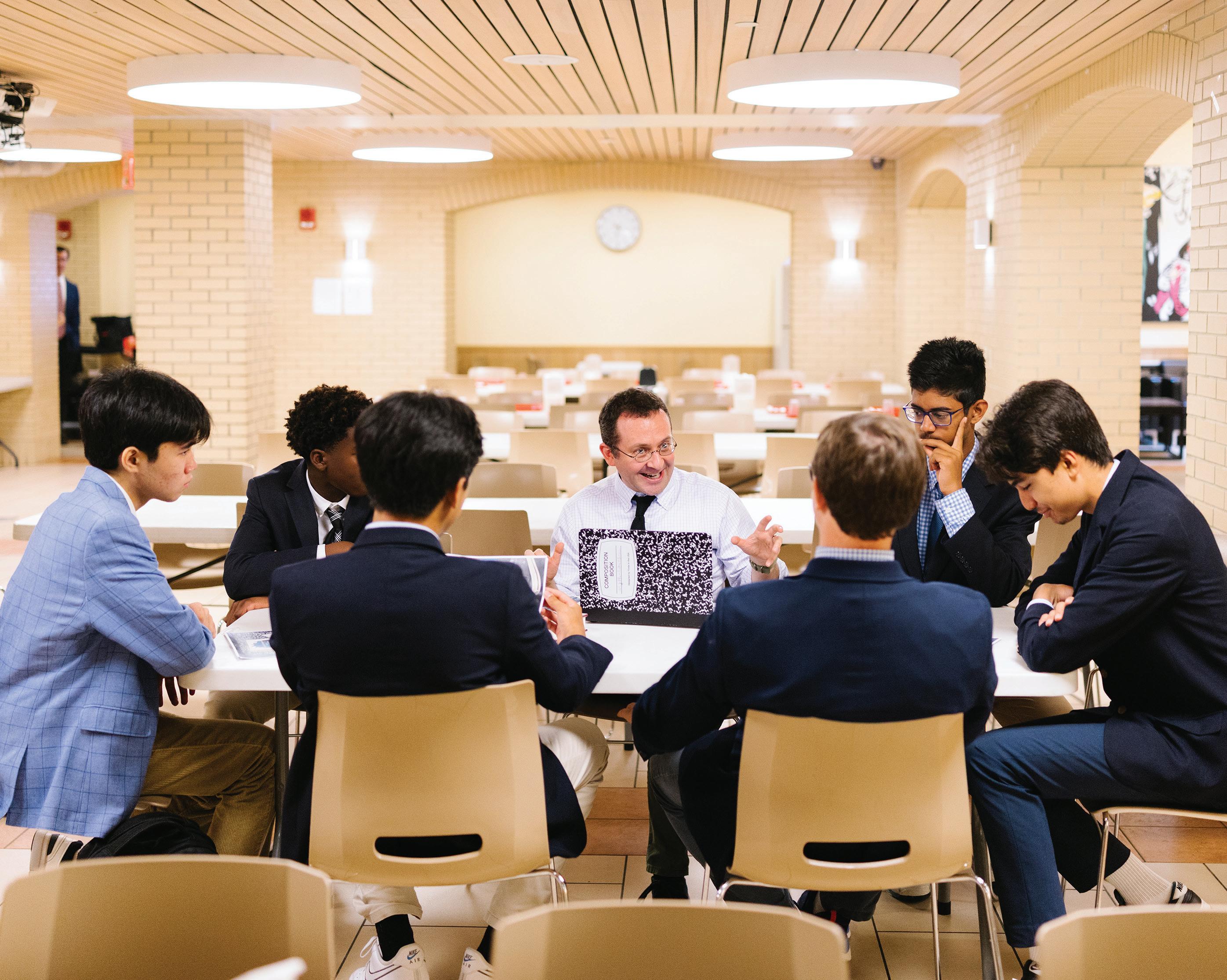
How Browning’s values
lunchtime lessons
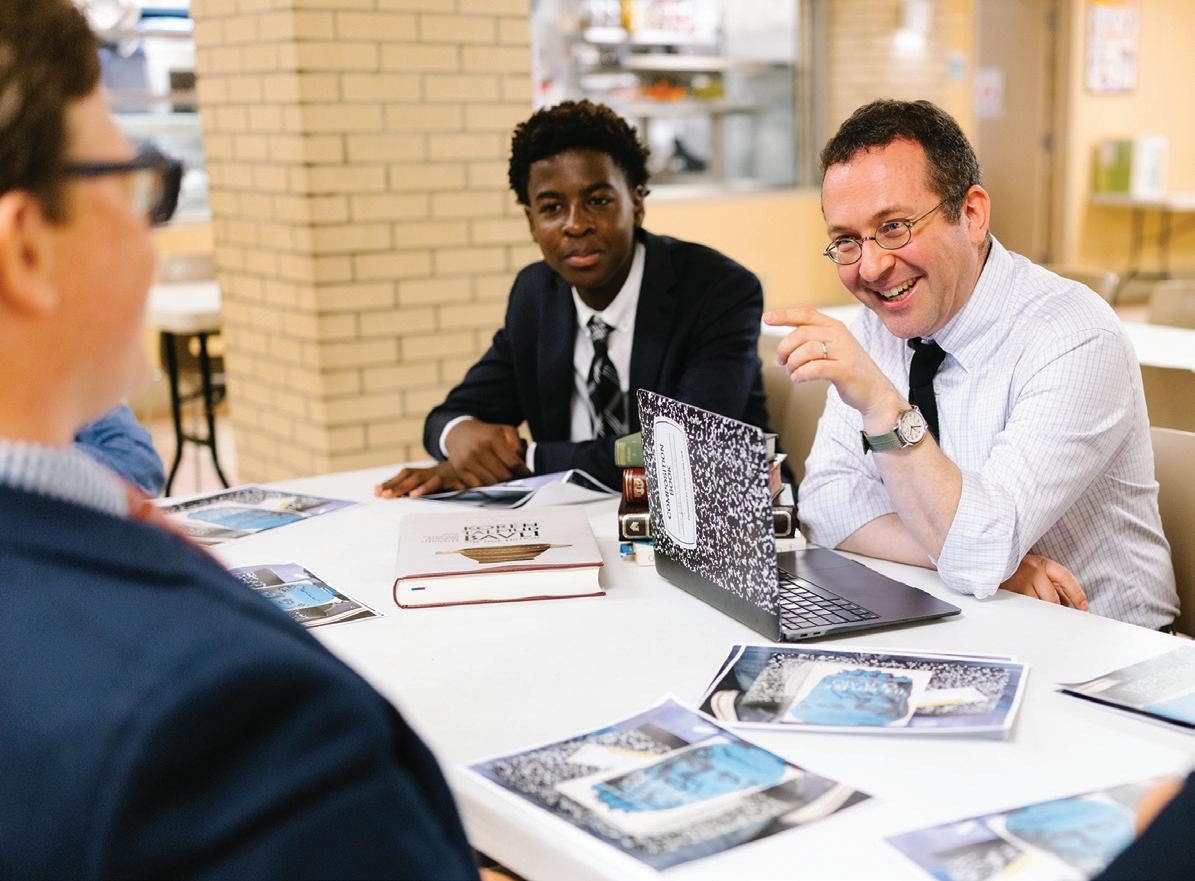

“It was in this lively exchange, amid so many others around a cafeteria table, that the progression of Browning values readily appeared, with dignity at its core.”
By Benjamin Joffe Greek Teacher
There is a passage in the Talmud that captivated our attention during this year’s Reading Greek course in the Upper School. Rabbinic sages of the Mishnaic period advised fathers against teaching their sons Greek, but it’s unclear why. Did they mean to prohibit common usage of the Greek language, or were they going deeper than that, banning Greek wisdom itself?

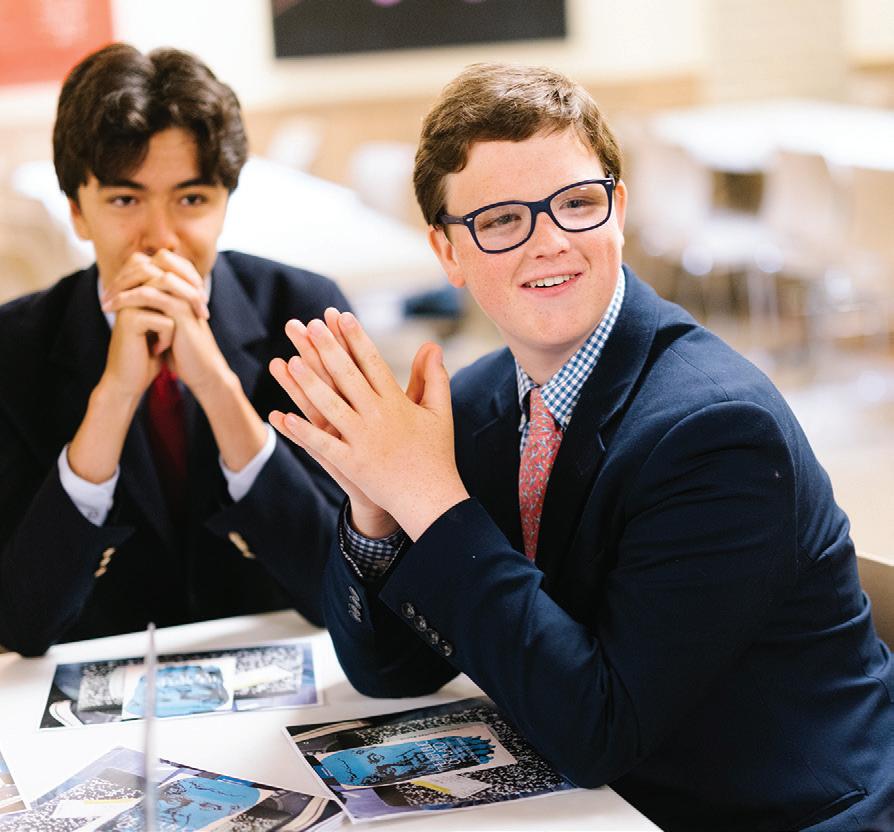
What’s more, we around the lunch table—as that was our unconventional classroom—saw quite a few dimensions to this Judean uneasiness with what one student termed “Greekness” in our discussions, and that included the very nature of the declaration. Was it a prohibition at all, or merely messaging about how one culture frames the influence of another upon its arrival? A different student asserted cogently that there are actually two distinct avenues for this sagely advice: one for the father, who likely already has familiarity with the language or wisdom he ought to avoid exposing his son to; and another for the son, whose instincts quite naturally are to push back and insist that his father not tell him what to do.
It was in this lively exchange, amid so many others we had around our table, that the progression of Browning values readily appeared, with dignity at its core.
Curiosity was where we started, particularly because this course grew from only a roster of three at the beginning of the year, the consequence of students’ already overcrowded schedules. That first day, we read an excerpt from Marcus Aurelius’s Meditations, in which he muses aloud about the necessity to be kind, to act with humility, and to speak without deception when interacting with others. It lit a spark that led to our pattern of choosing texts, where aspects discussed about one author propelled us to another, always anchored in
the original Greek text. Our analysis centered around the particularity of language—a translation is one way to provide accessibility, but placing a transliteration and running vocabulary, with a variety of possibilities for each Greek word, allowed us a far more direct connection to the writer. More importantly, it provided us with a path to authentic original works that usually sit behind the protective glass of years of study before a student can get up close.
By removing that barrier, there was a fluidity to our curriculum, and an openness to welcoming any student who wished to join at any point in the year. As a result, a second lunchtime section emerged, and the physical centrality of our learning caught the eyes of Upper Schoolers in every grade, whom we gladly made room for as their own curiosity grew into enrollment.
It was certainly a sense of purpose that followed, as our natural aim became mining the ancients for practical wisdom as it applies to our modern world, and that undoubtedly was fueled by the candid yet care-filled honesty of our student interlocutors, for whom the word “bro” became a scholarly term of respect as they disagreed with enthusiasm and earnestness in equal measure. But the takeaway, ultimately, was the recognition among the members of the group that each person making a contribution had something valuable to say.
In essence, the Latin dignitās refers to the quality of being worthy, and in our Browning course, that played out in how the students took the time to hear their peers; how the thoughts put forth came from learners who genuinely grappled with ideas and recognized that hearing other points of view is inherent to our collective process of understanding; and how we were not searching for answers, per se, but insights. Those insights, we realized self-reflectively, were the intellectual harvest of our class members, whose backgrounds spanned a range of cultural backgrounds, learning together in a testament to what dignity looks like when learning is truly relational, as it is in our school community.
Returning to that rabbinic passage, what emerged from our collective analysis was a realization that Greek philosophy—that quintessential Socratic dialogue we both analyzed as literature and engaged in as practice—and Talmudic discourse were both creating live-action evidence of how valuable it can be to foster all of our Browning values in a classroom, especially one we were lucky enough to experience in the center of the cafeteria, where our presence always signaled that all were welcome to join us.
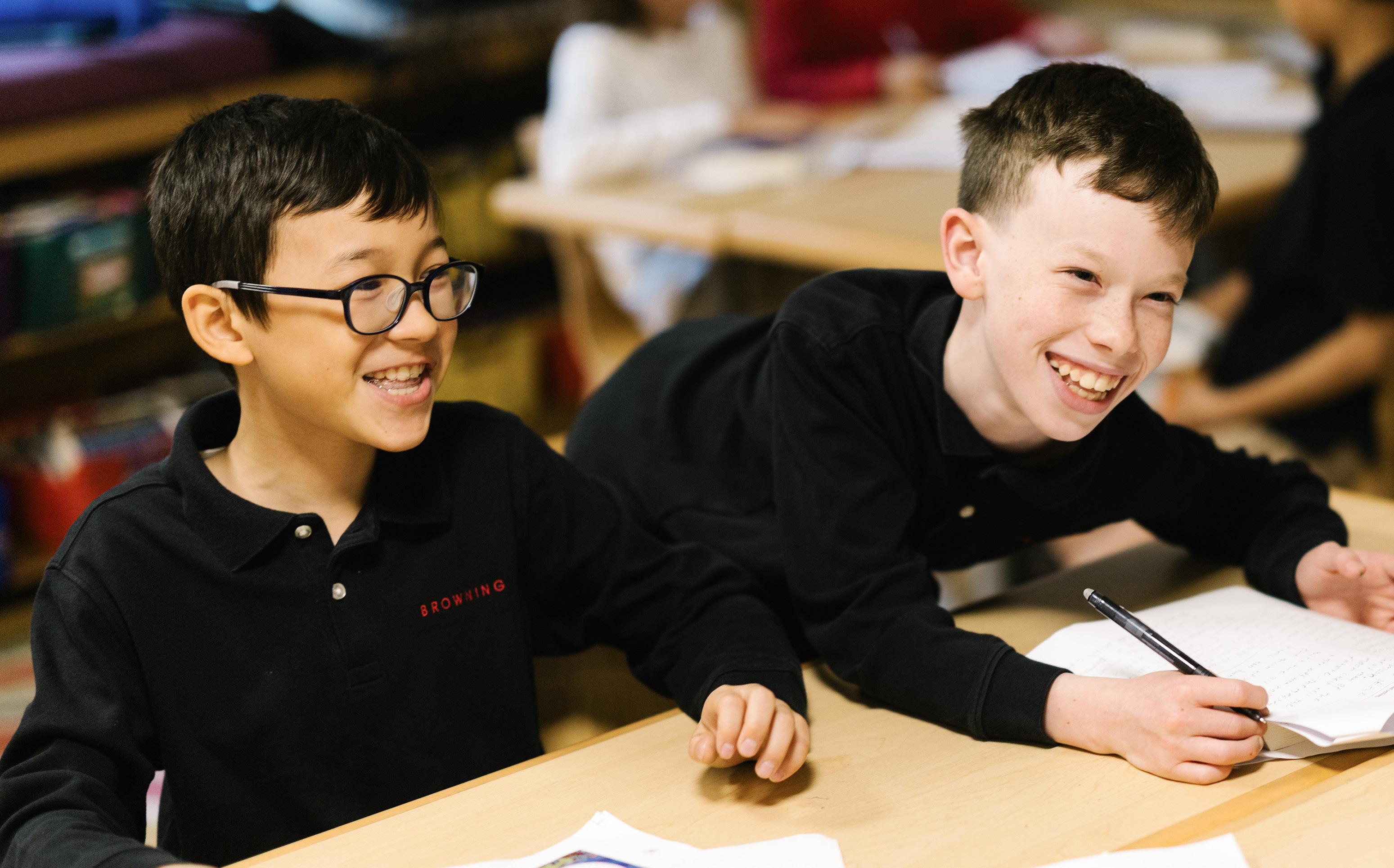
empathy
By Jan Abernathy Chief Communications Officer
What happens when you explicitly teach empathy? Grade 4 teacher Inshirah Jones was determined to find out.
“I’m at the point in my teaching career where I can be intentional about working in a school like Browning that lives up to and aligns with my values,” she says. “Teaching our core value of dignity through novels appealed to me as a way that children could learn about belonging.”
Education has often focused on teaching content and academic skills but less so on some of the “soft skills” that create a better society. “We intentionally teach boys how to annotate, but we don’t always teach kindness and how to be a good person,” Ms. Jones says. To live up to our core value of dignity, however, Browning boys need to understand that everyone has worth. Being able to empathize with others is a starting point for younger children.
A few summers ago, Ms. Jones worked with other Browning faculty members in a Collaborative Learning Cohort where they examined themes of belonging in the curriculum, and she was interested in taking that kind of research further. With that in mind, Ms. Jones applied to the International Boys’ School Coalition’s Action Research Initiative and began an analysis of whether diverse literature deepened
empathy in Grade 4 boys. Previously, despite teaching a curriculum with themes of otherness and examples where kindness and empathy could be felt or discussed, she noted that the boys did not always appear to incorporate the lessons into actions.
Ms. Jones’ original research question, “How does the analysis of diverse literature deepen empathy in Grade 4?” was driven by her desire for the boys to be upstanding for one another. “I hoped that the boys would care for one another and that through this care and ability to offer empathy, the boys would feel a sense of belonging.”
Ms. Jones worked with Grade 4 boys to guide them in the understanding of empathy, seeing whether they could apply what they learned through their actions. After receiving parental permission, she collected data on the 12 boys in her homeroom through classwork, discussions, journals, and surveys.
“My findings revealed that how the boys defined and understood empathy and belonging grew deeper over the three-month period of the study. They were also able to begin using this knowledge to practice being empathetic toward one another,” Ms. Jones said. She adds that when the boys first began discussing the emotion they were often talking just about feeling empathetic toward themselves, but over time, they began to see empathy as something you have for others. “It was interesting to see how the circles slowly expanded, to feeling empathetic about their siblings or parents, and eventually to asking classmates how they were feeling if they got hurt.”
The lessons were sometimes complemented by real-life activities such as when the class read the book
“Teaching our core value of dignity through novels appealed to me as a way that children could learn about belonging.”
INSHIRAH JONES
Grade 4 Teacher
Planet Earth Is Blue by Nicole Panteleakos, about a child with nonverbal autism.
“I tried to be mindful in having them make connections with the protagonist because she was clearly different from them in so many ways, so we had to search for similarities,” Ms. Jones said. “But their real-life experience of regular class visits to a school for children on the autism spectrum helped to reinforce the lesson.”
Throughout the successful three-month study, Ms. Jones noticed key signs of growth; in one exercise, for instance, each boy could identify at least one way in which he saw himself in a character who was very different from him. She also saw boys recognizing dignity in their understanding that belonging doesn’t necessarily mean an individual conforming to a group. Ms. Jones says, “At the start of the project, a boy responded to the question, ‘What makes you feel a sense of belonging?’ with ‘I need to feel like I fit in.’ Answering the same question at the end of the research, he stated, ‘When I feel seen there and happy there.’”


"Kindness is a way of helping others without wanting anything in return."
Pip P. '32


"Having weekly acts of kindness lets everyone join in, keeps the kindness growing, and helps build a stronger community. I love doing it!"
Ethan S. '32
"I
wanted to help start the kindness chain because when I was in kindergarten, we had something similar, but it was only visible within our classroom. I thought it would be better if all students could add to it too."
Burke B. '32
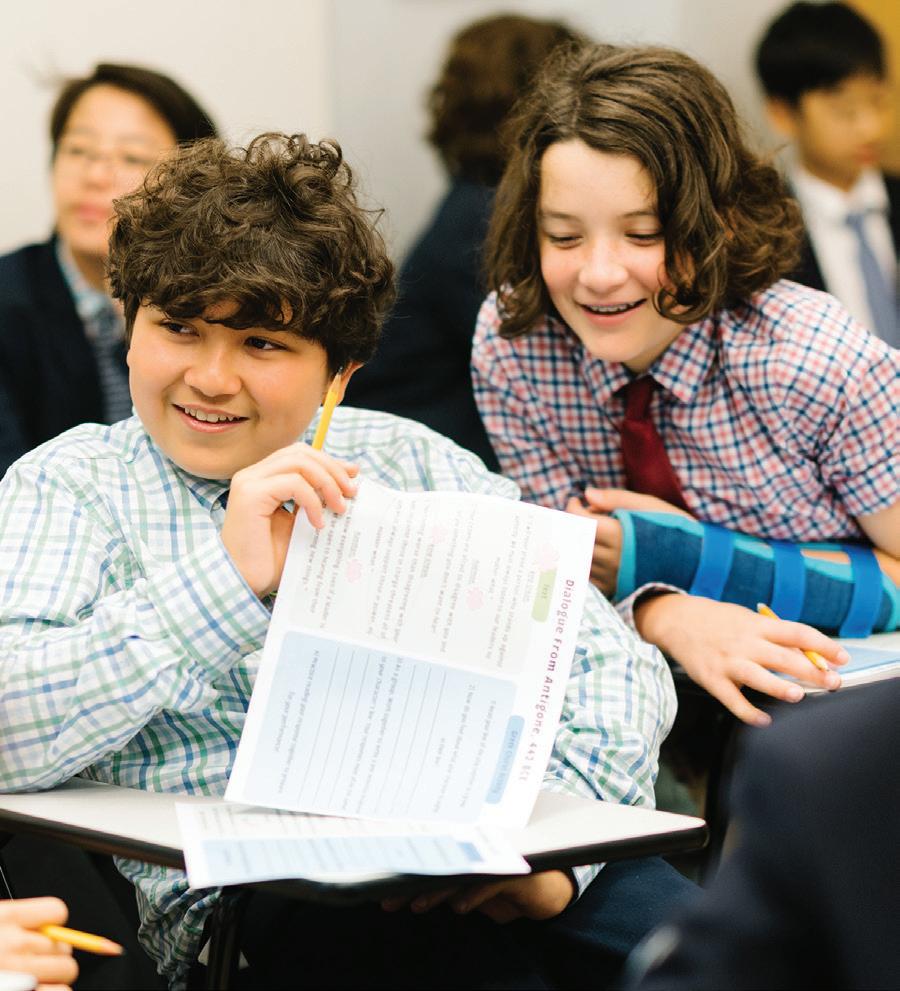
T"One time I was feeling sad, and my friend noticed. He asked the teacher if I was okay, and that really showed me he cared."
Mark E. '32
"Kindness
is a way to connect with everyone else."
Alex K. '31
his semester, the 5/6 Student Council launched a Middle School–wide initiative called
“Connected by Kindness.” Students submitted acts of kindness they witnessed or received, each written on a colored paper strip representing Browning’s core values. Every Friday, advisors read these
"I
think the chain can really help us focus on kindness, which is what we're all about."
Lyndon H. '32
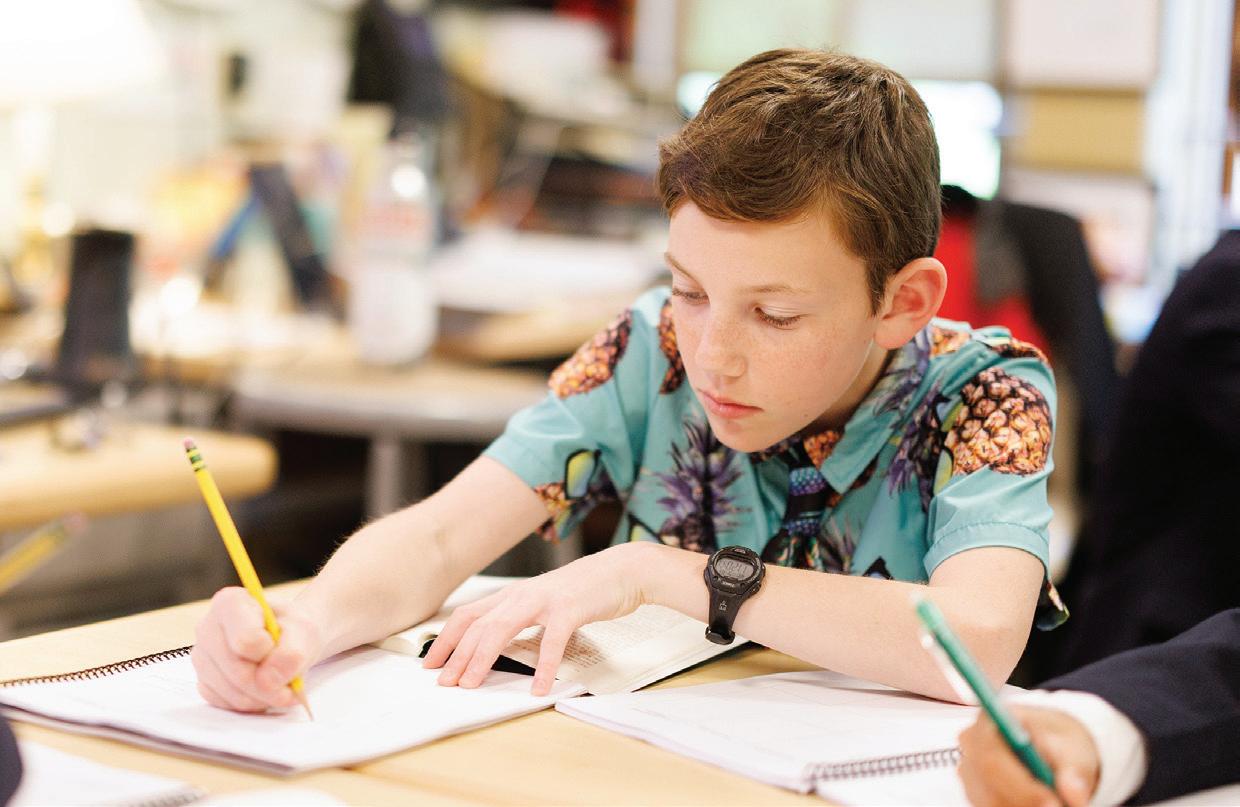
"When
"Kindness
is a selfless act. You just do it because it's the right thing, not for a reward."
John S. '32
moments aloud as the strips were linked into growing paper chains that stretched across homerooms and connect entire floors. Members of the Council shared their insights on how we’re working to build a more connected community— one link at a time.
"I want my classmates to feel proud when they see the chain. Each link shows a kind act, and it helps us see how connected we are by kindness."
Kenzo P. '31
"An act of kindness that stuck with me was when I was struggling with a basketball move, and my friend helped me learn it instead of just watching."
Charlie O. '32
my classmates see the chain, I want them to think about how all the acts of kindness connect to our values of dignity, honesty, purpose, and curiosity."
Mark E. '32
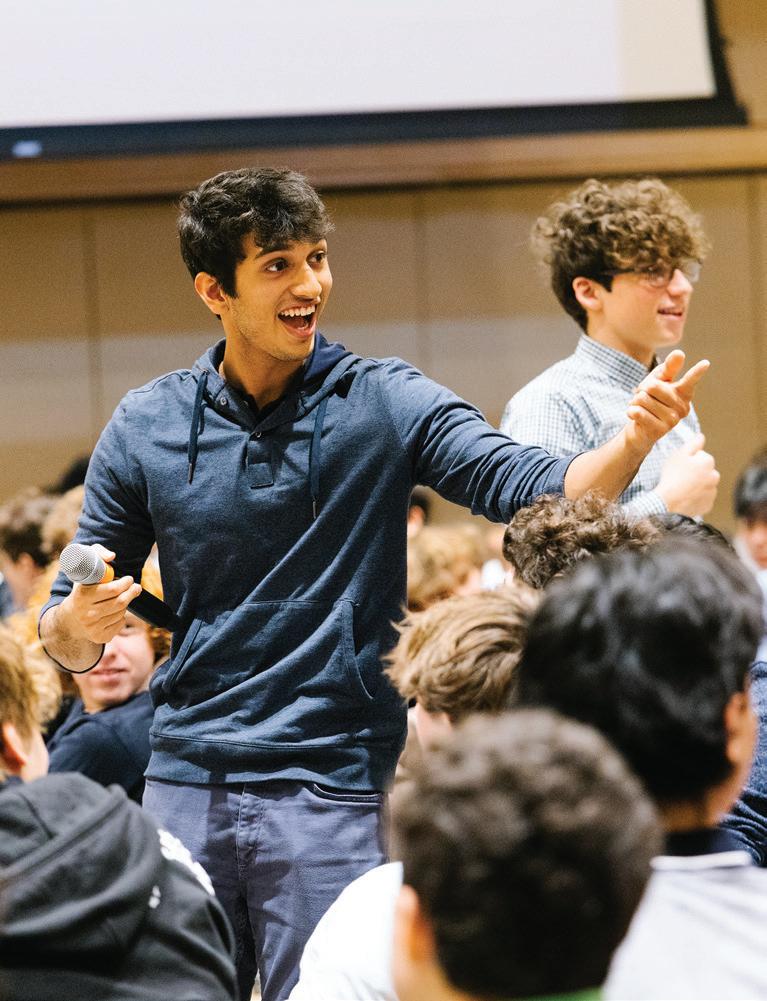
By Jan Abernathy Chief Communications Officer

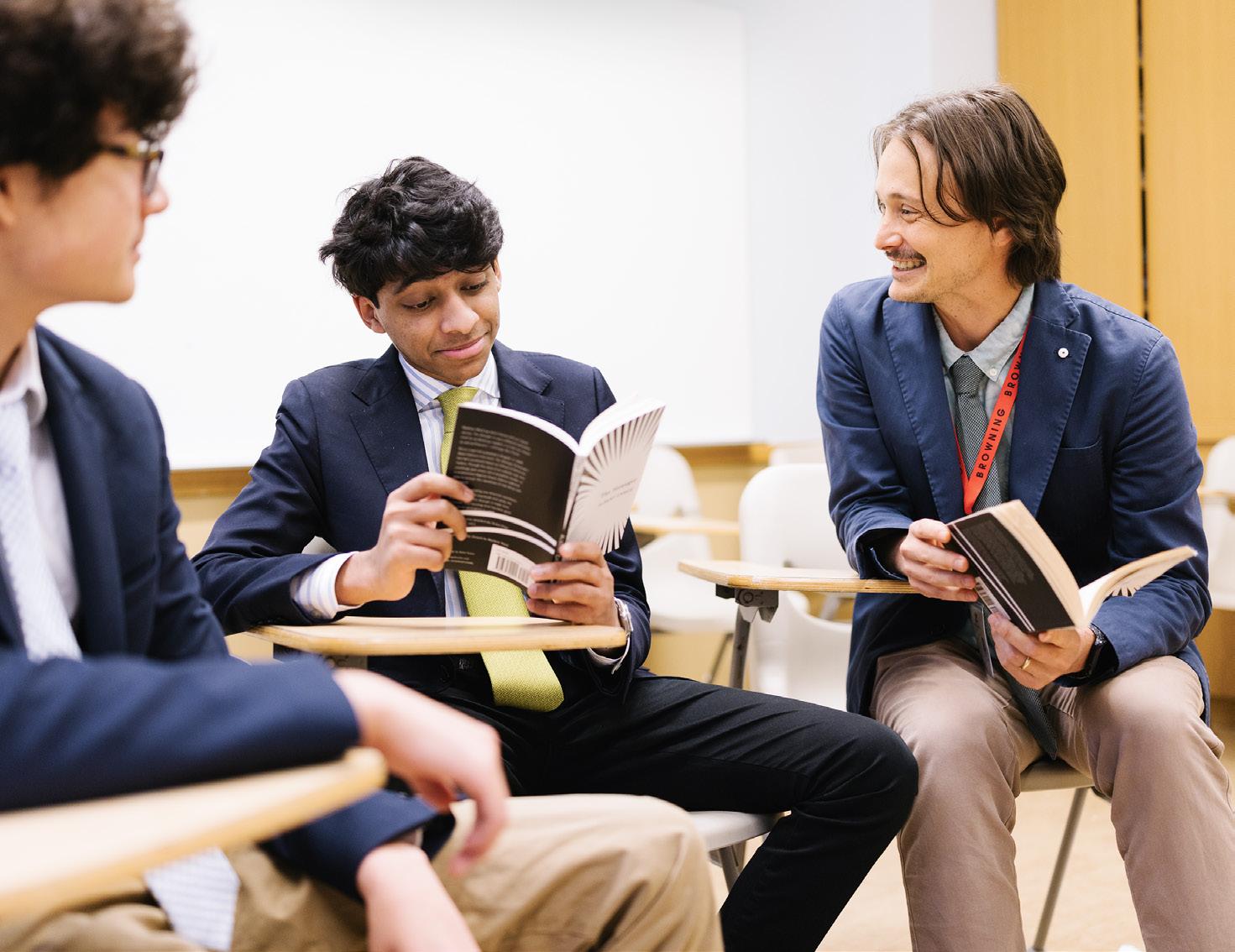

The writer and community builder Margaret J. Wheatley once said, “You can’t hate someone whose story you know.” It is with that in mind that storytelling has become such a powerful tool for understanding in society. From TED Talks to The Moth, stories excite us, entertain us, and move us to tears. As part of our new Upper School Signature Programs, boys will have the opportunity to engage in storytelling and constructive dialogue, both of which support our Browning core value of dignity.
“We know that boys learn best in relationships, and we want to do all that we can to reinforce connection between boys as well as the faculty,” says Danielle Passno, Assistant Head of School. “Storytelling, which we already do in our regular faculty meetings, is a very powerful tool for accomplishing that.”
Woven deeply into Browning’s curriculum are the “Core Four” skills necessary for a Browning student to own and live our School’s values—curiosity, dignity, honesty, and purpose. Starting next year, Upper School boys will focus on these skills—storytelling, constructive dialogue, studentship, and connection— via signature programs offered each year. In Grade 9, boys will take an initial storytelling course to learn the fundamentals of both telling and listening to stories, as well as the first level of constructive dialogue—the two-part skill of constructing a logical perspective and listening with empathy and humility to another’s logical perspective. In Grade 10, boys add research skills and the second level of constructive dialogue. A research practicum follows in their junior year, and their time in Upper School culminates with a storytelling capstone project. All boys will complete this storytelling project before graduation.

“Storytelling, which we already do in our regular faculty meetings, is a very powerful tool to reinforce connections.”
DANIELLE PASSNO Assistant Head of School
Both storytelling and constructive dialogue reinforce the importance of dignity in Browning’s culture. “Storytelling can disrupt stereotypes and other inaccurate assumptions boys can have, even about someone who has been a peer for years,” says Anna LaSala-Goettler, Assistant Head of Upper School. “At the same time, a boy’s learning to tell his own story gives him permission to be vulnerable in a safe and structured way, and ultimately accepted as a fuller version of himself.”
Jon Willson, Head of Upper School, adds that being able to tell one’s own story is an essential step on the path to manhood, and is especially important in a world where adolescent boys are receiving antisocial messages in popular culture. “There’s so much in the social media sphere that can be damaging to boys’ sense of self, particularly when they’re still trying to figure it all out,” he says. “By talking about something that is important to who they are, boys not only connect with their sense of purpose, they also connect to others who feel the same way—in their real lives, not just online.”
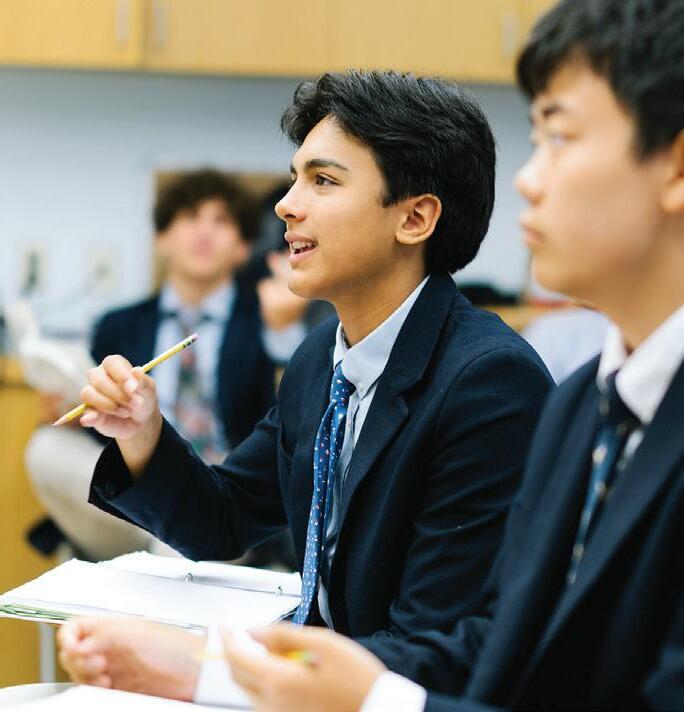
Ms. Passno and Mr. Willson will both teach the constructive dialogue signature program, which is required for 9th and 10th graders. After learning how the brain functions and why dialogue is different than debate, the boys will work on creating logical arguments, developing a perspective, and learning how to listen empathetically. Diving deeper in their sophomore year, they will use argument mapping and empathetic listening to dissect and create analyses of historical Supreme Court cases.
“We want our boys to appreciate a variety of perspectives and experiences as they think about meaning and purpose in their own lives,” adds Mr. Willson. “These signature programs will help bring our four core values to life in the Upper School in a new and exciting way.”
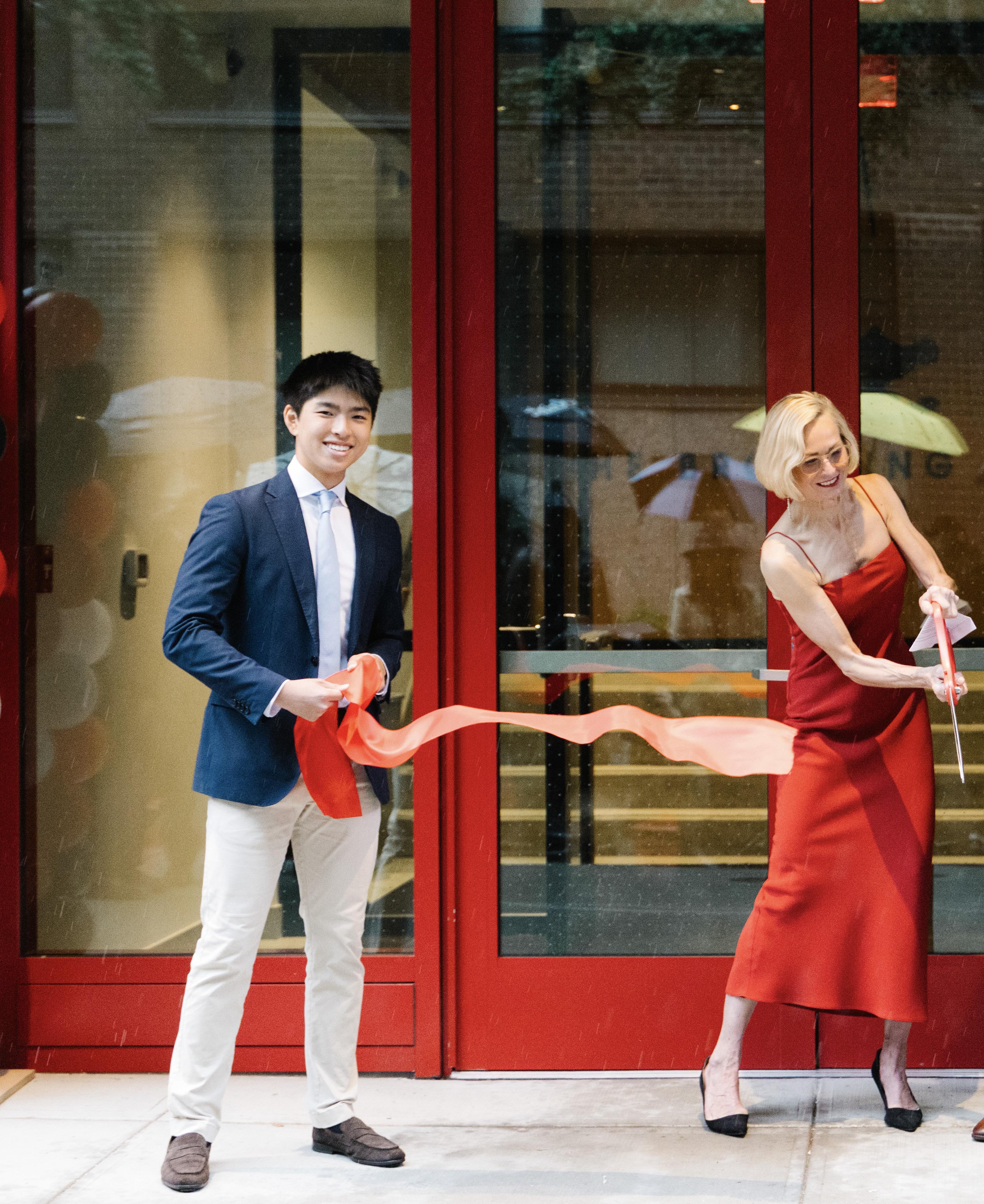
And just like that…

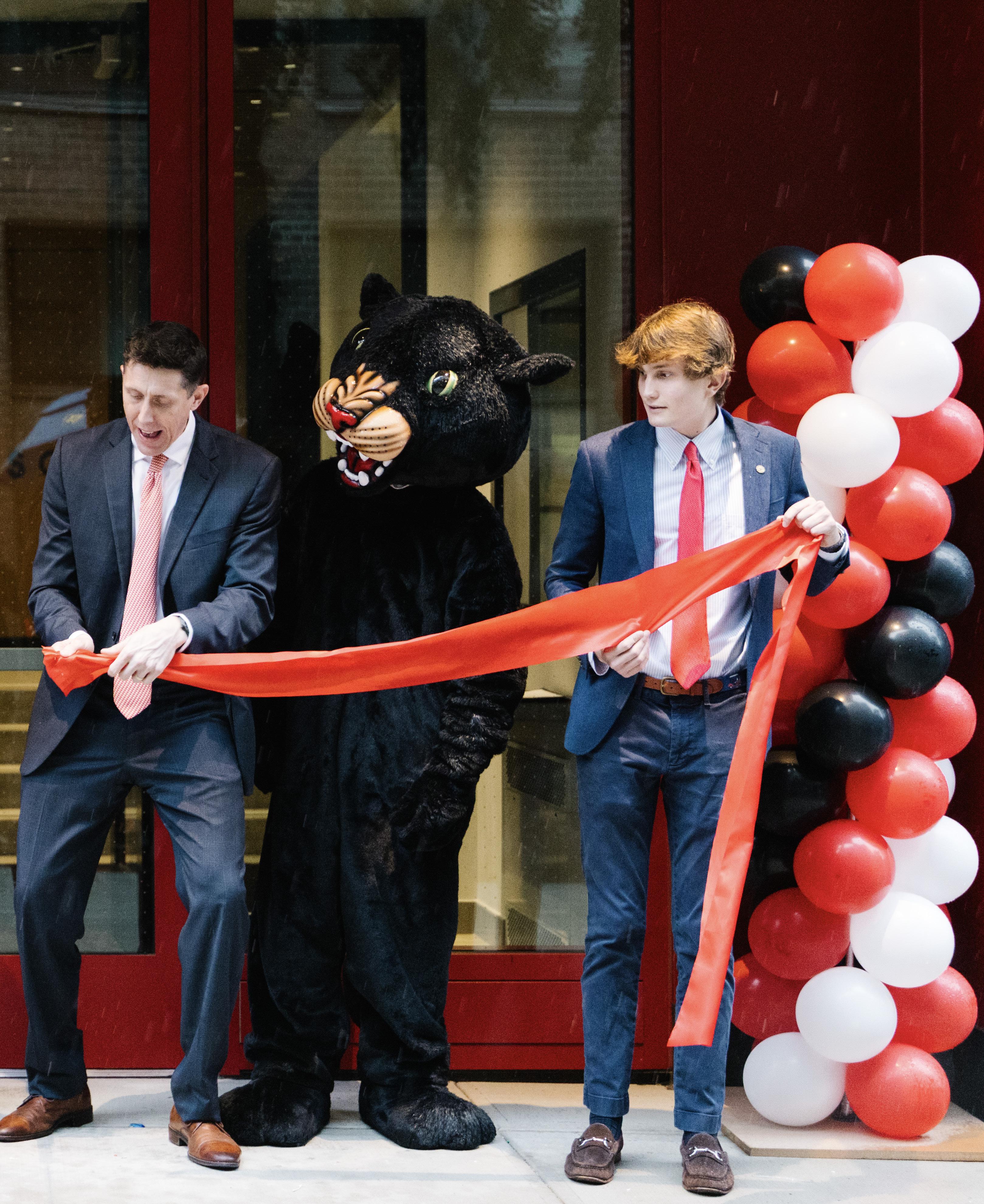
On May 14, 2025, The Browning School officially opened its new Upper School facility at 337 East 64th Street with a celebratory ribbon cutting. The event marked a major milestone in the School’s history, as students, faculty, trustees, and members of the building project team gathered for remarks and tours of the new space.
Browning History Is Made!
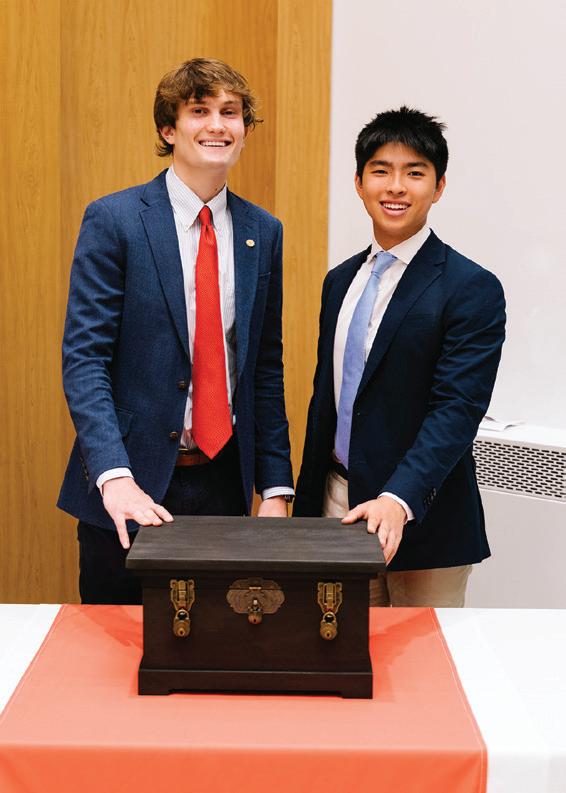
A time capsule filled with student-chosen artifacts across K–12 capturing the spirit of our community in 2025 was sealed during the opening.
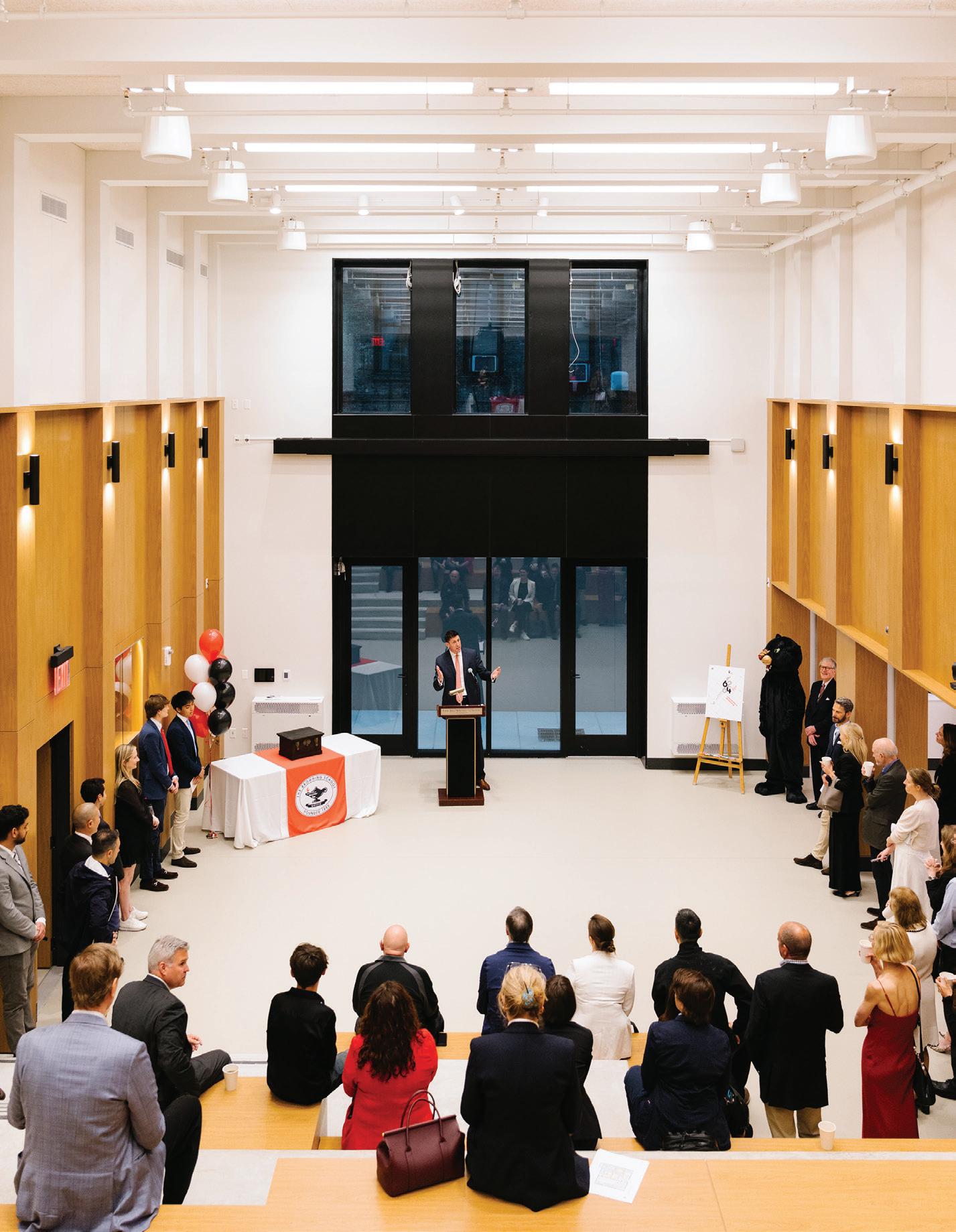
The new 60,000-square-foot building is designed to support the School’s mission of relational, rigorous, and values-driven education.
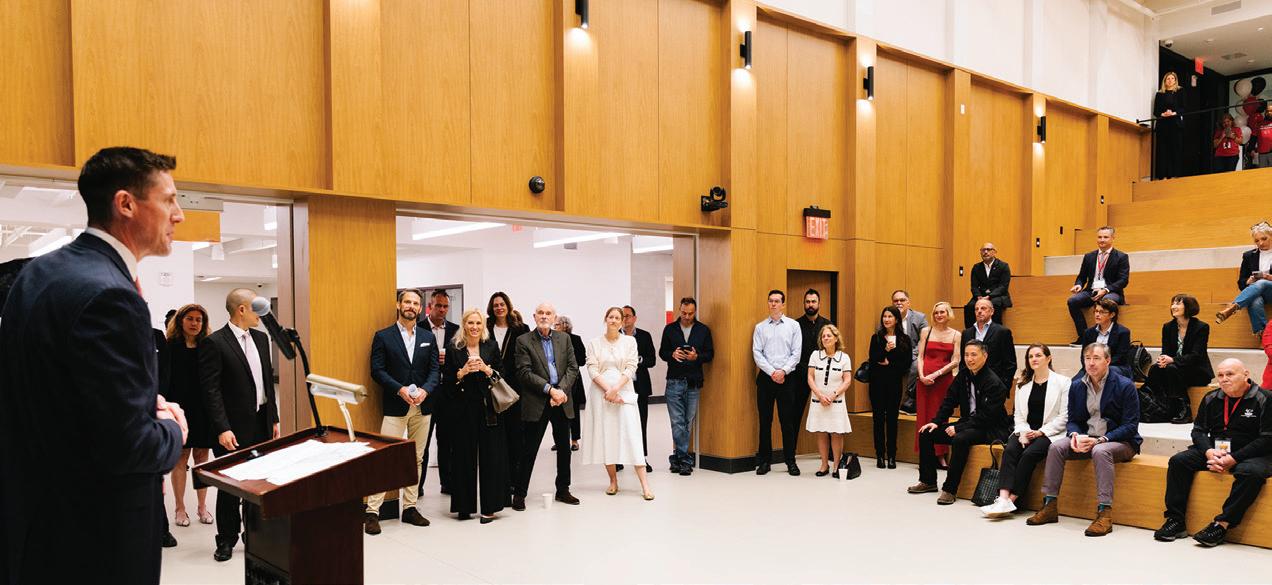
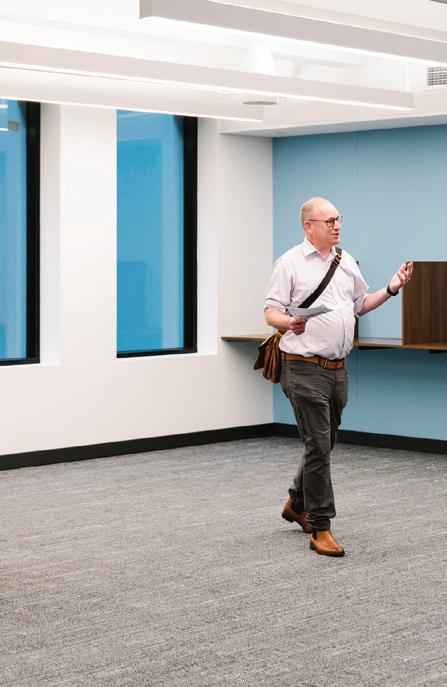

Students and faculty wore T-shirts to celebrate the unity of our community that now spans two buildings.
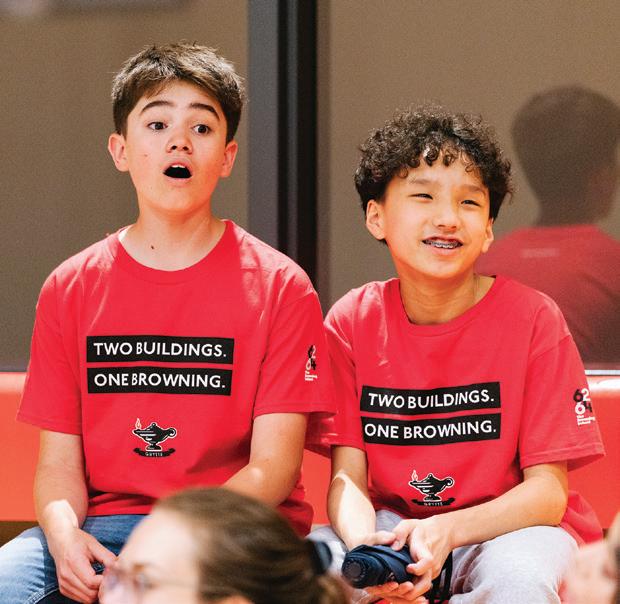

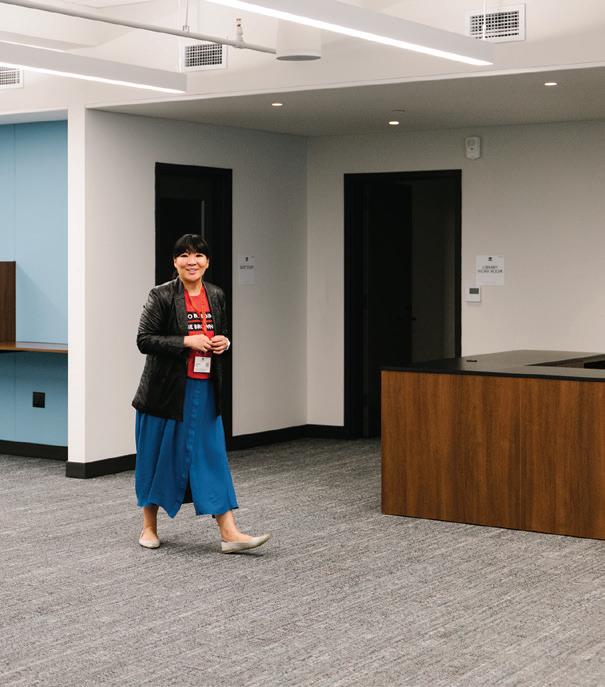

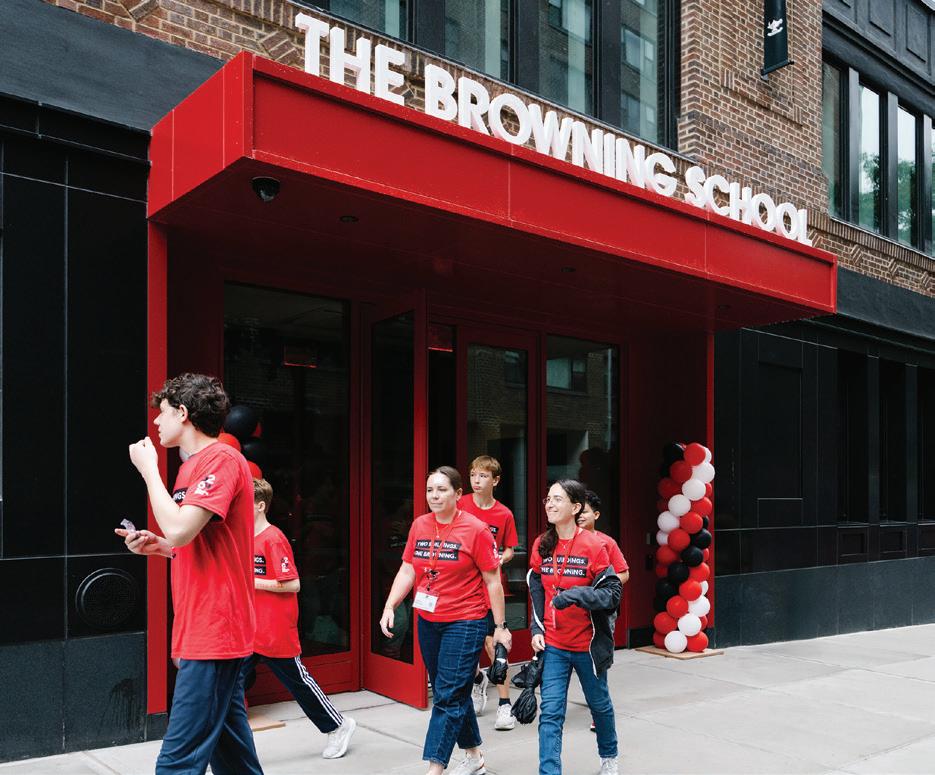
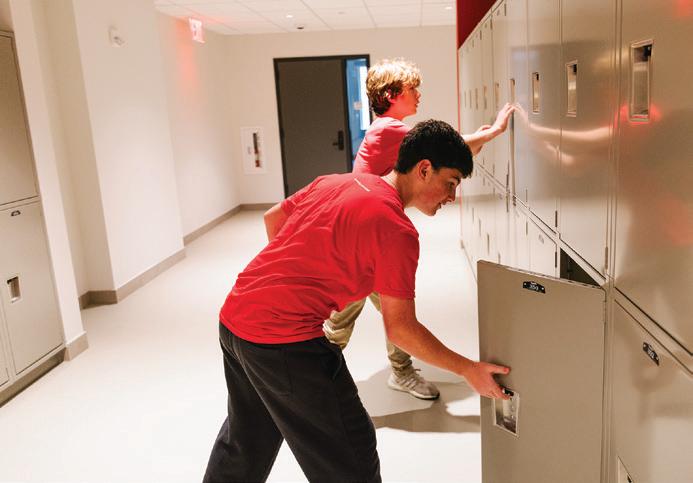
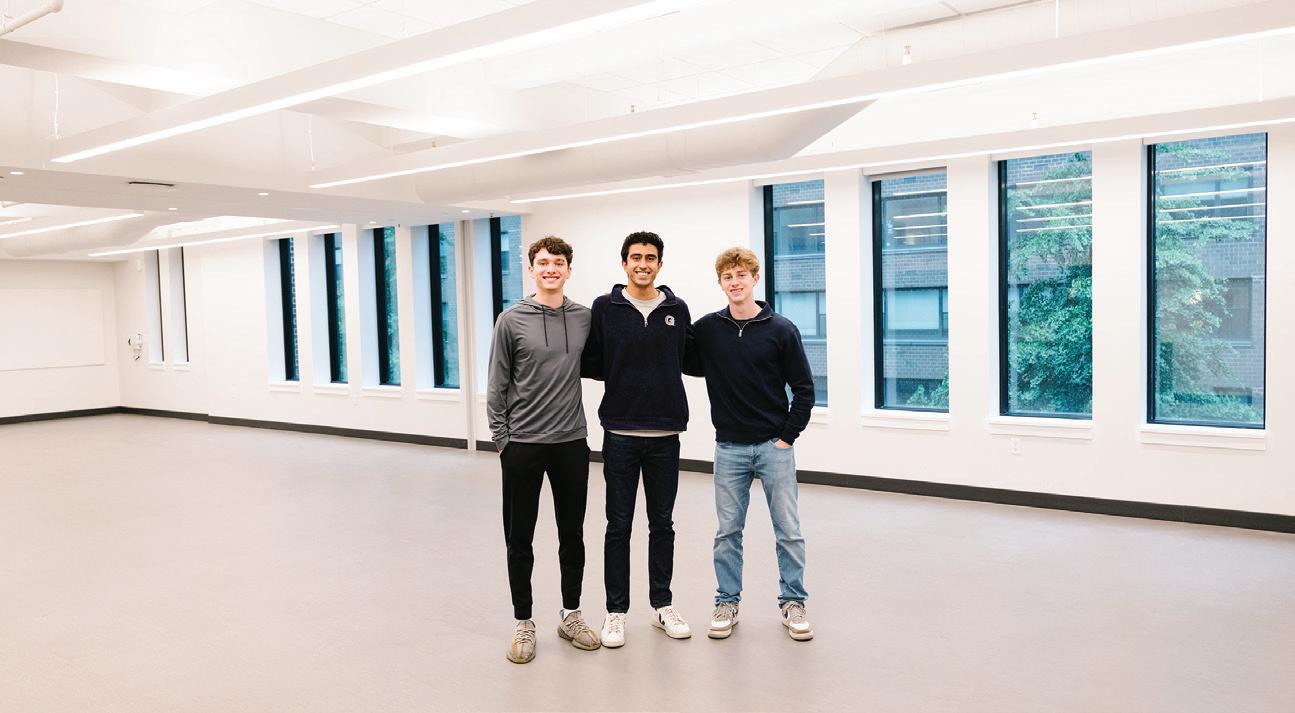
A regulation-size gymnasium will allow Browning to host home games for the first time.
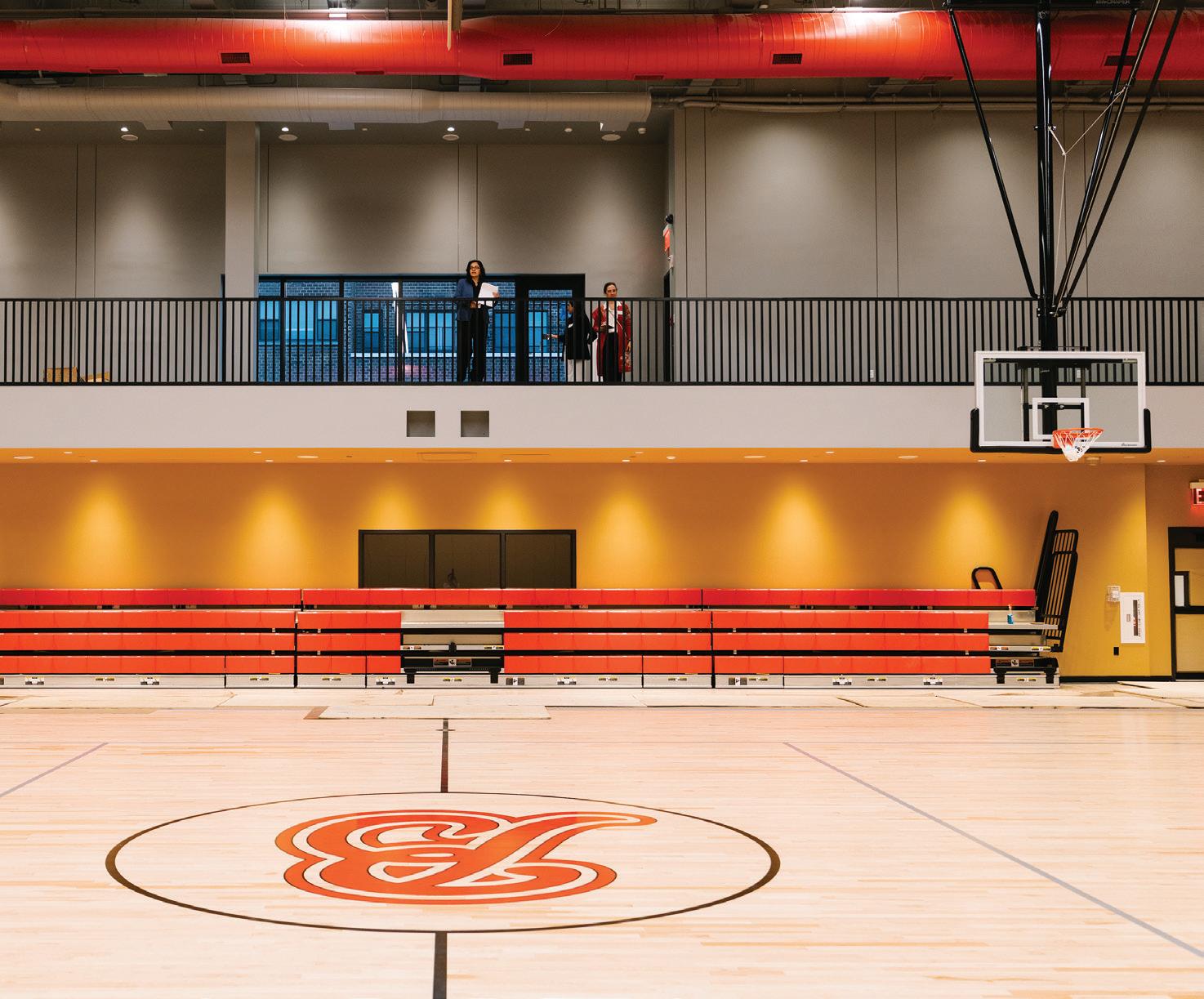

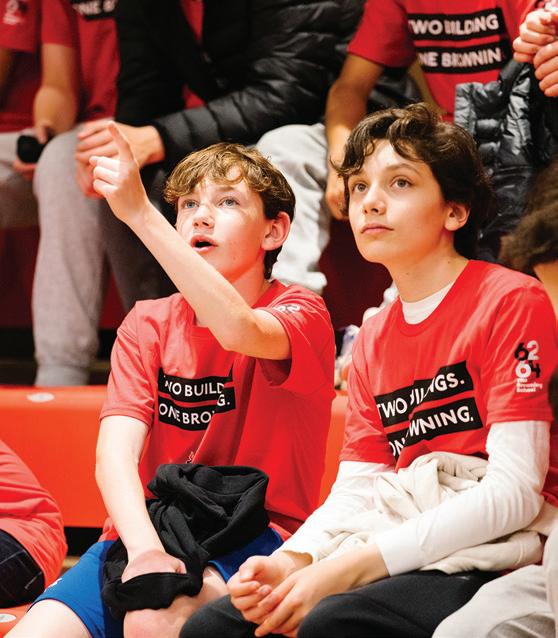
The building will enable the Upper School to welcome more students this fall while maintaining small class sizes and a strong relational model.
Browning History Is Made!
The building was intentionally designed not only for academics but to enhance student life, with new spaces for clubs, performances, leadership activities, and community events.
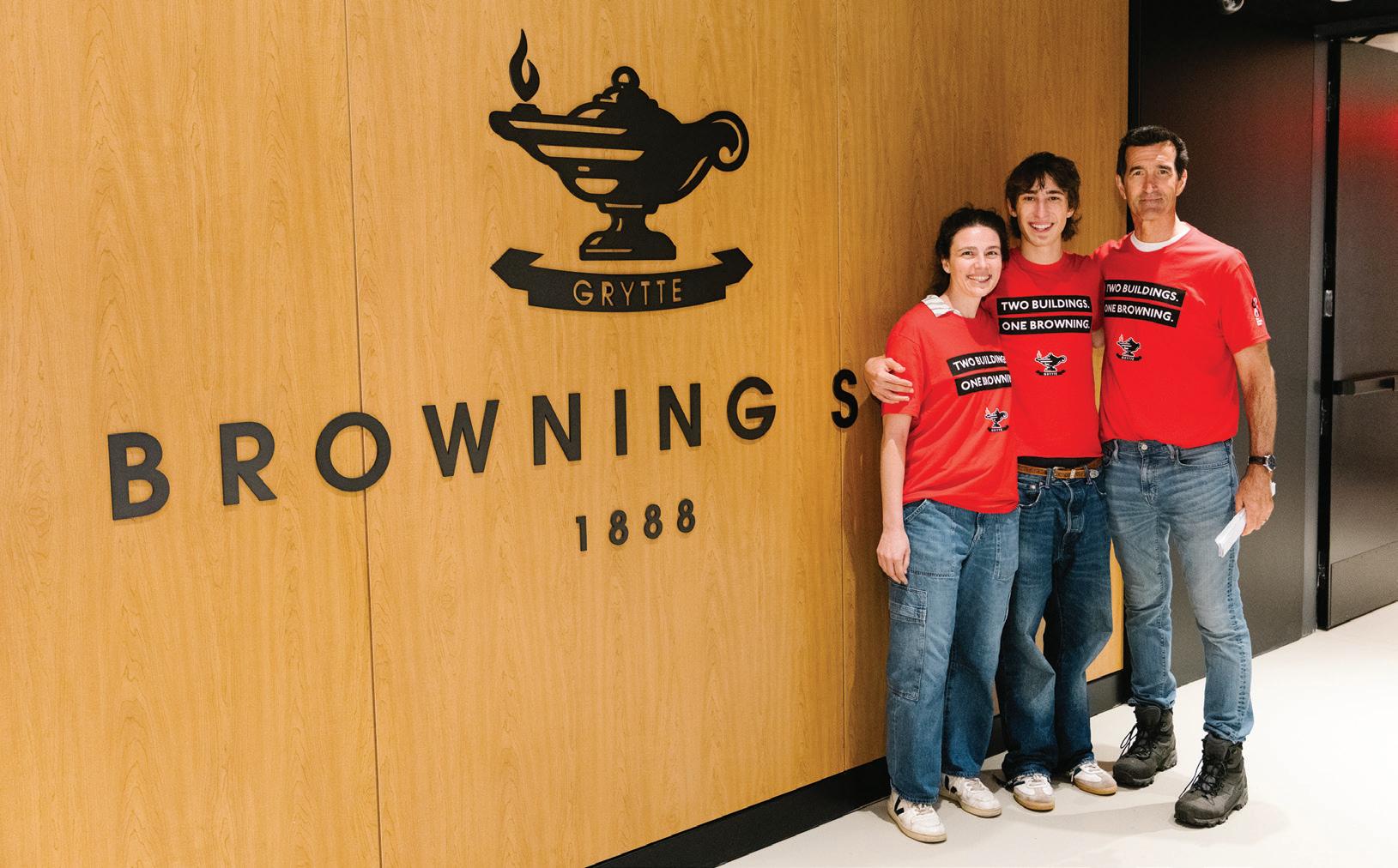
The building features larger classrooms and flexible spaces, all crafted to foster connection and dynamic learning.

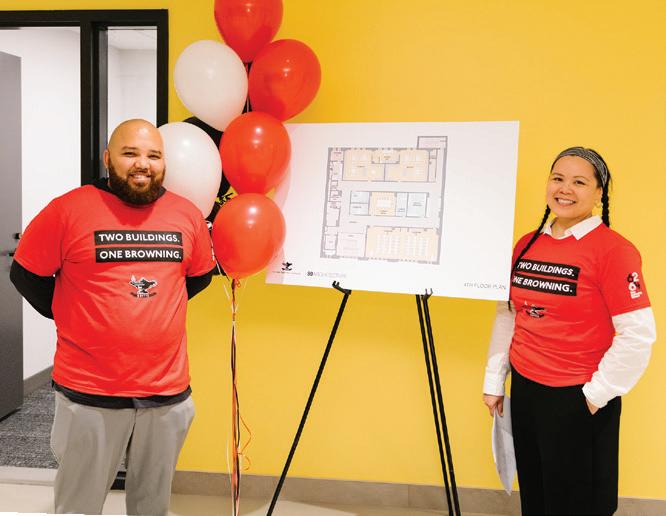
Members of the Class of 2025 left their mark literally on a hidden wall in the building, ensuring their legacy lives on even though they didn’t spend their final year there.
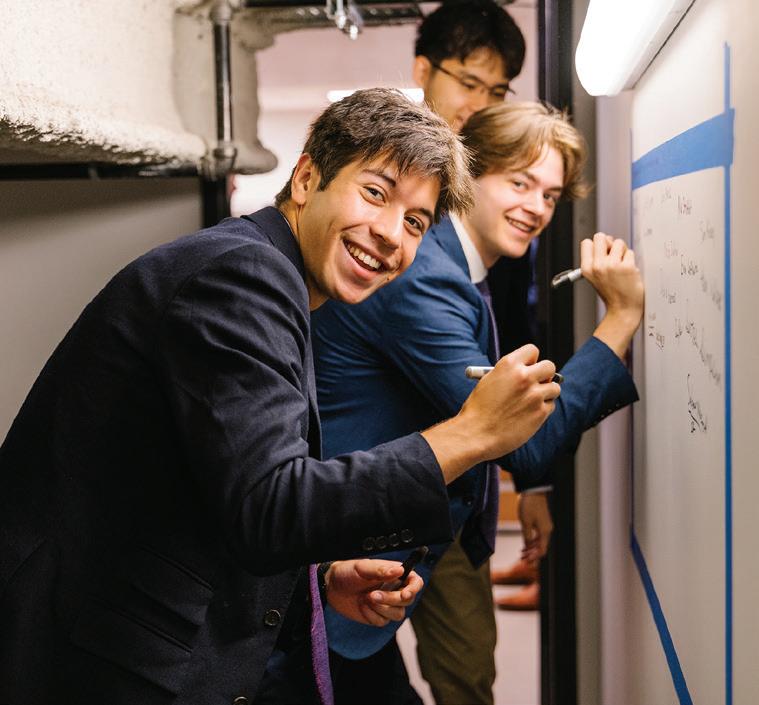
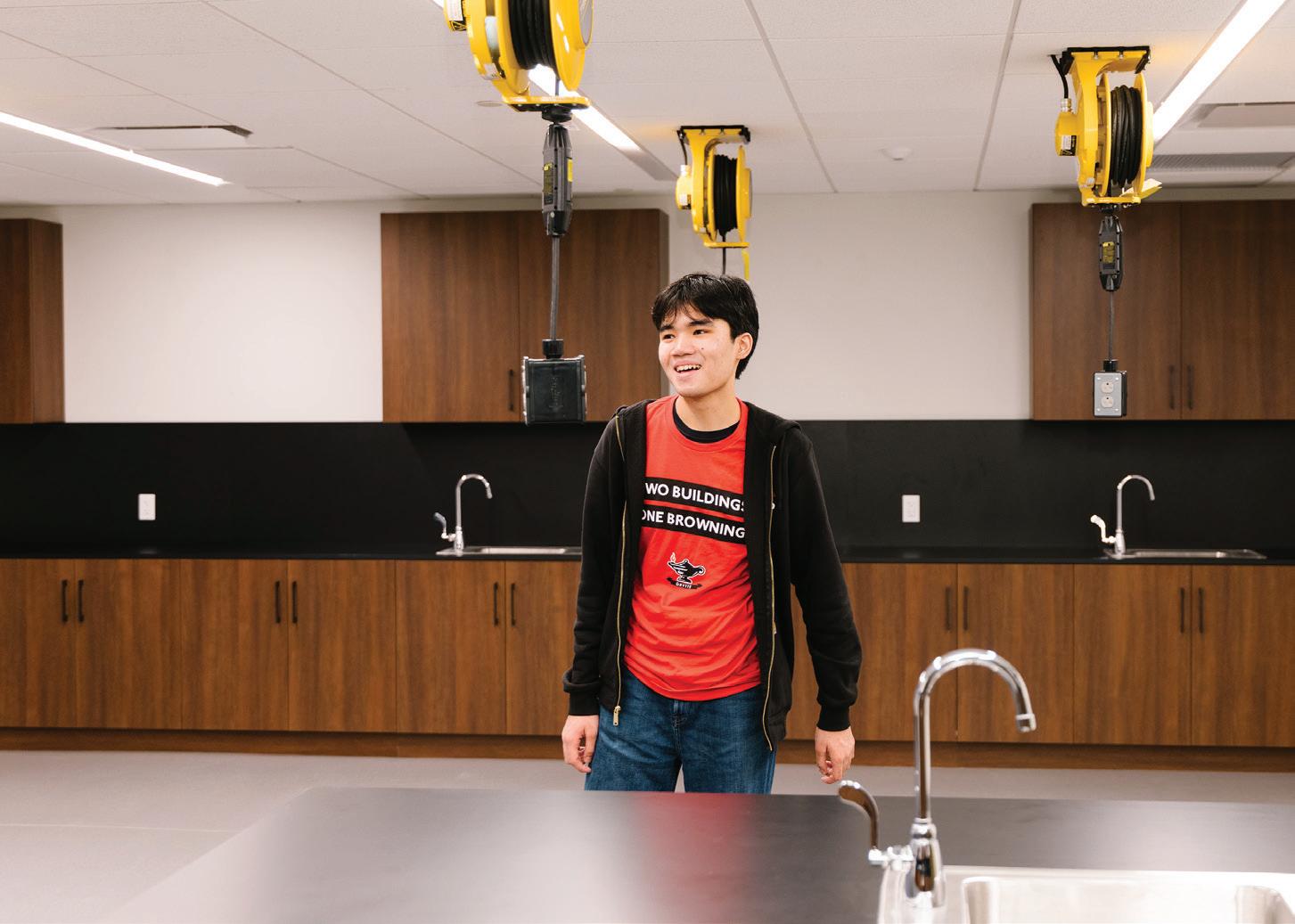
As of June 2025, Building Our Future: A Comprehensive Campaign to Advance Browning’s Mission has raised $28 million 56% of our $50 million goal. We are deeply grateful to the many donors who have contributed so far, whether through gifts to the Annual Fund or multiyear pledges supporting our three key priorities: Facilities, Financial Aid, and Programs and People. With the new Upper School opening this fall, we are excited to deepen engagement across the Browning community to help us achieve our fundraising goals and support as many critical initiatives as possible. We are delighted to highlight the following donors and their Campaign commitments:
Katie and Zeev have been dedicated supporters of Browning’s Annual Fund since their son, Ethan ’35, enrolled in Kindergarten in the fall of 2022. Throughout Ethan’s time at the School, Katie has also served as an Annual Fund volunteer, offering not just her time, but her expertise. As a professional fundraiser, Katie brings a deep understanding of both the critical role the Annual Fund plays in daily school life and the power of a united community to accomplish something truly transformational.
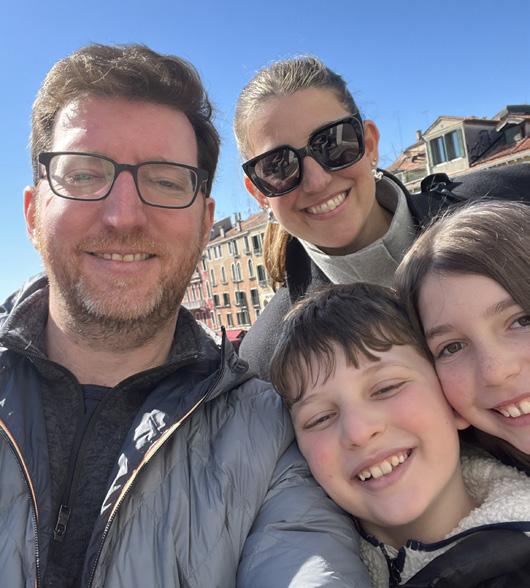
Reflecting on her family’s motivation to increase their giving during the Building Our Future Campaign, Katie shared: “We know this incredible new building is going to be a game-changer for our boys. That’s why our family decided to increase our Annual Fund giving during the Campaign. We want to do everything we can to help Browning reach its fundraising goal—and for us, that means prioritizing our Annual Fund support. It’s a unique and exciting moment, and we’re proud to be part of it.” In addition to Ethan, the Kleins have a daughter, Zoey, who will be entering fifth grade at Spence this fall.

Sofia Milonas is proud to name the librarian’s desk in Browning’s new Upper School building in honor of her beloved grandmother, Kleri Kapsaskis. This tribute reflects the family’s deep appreciation for education and literature. “My grandmother was a lover of books,” Sofia shares. “She was very important to me and my family. I have passed her love of life and learning on to my children, Alexandra and Nicholas. We’re honored to celebrate her legacy this way.”
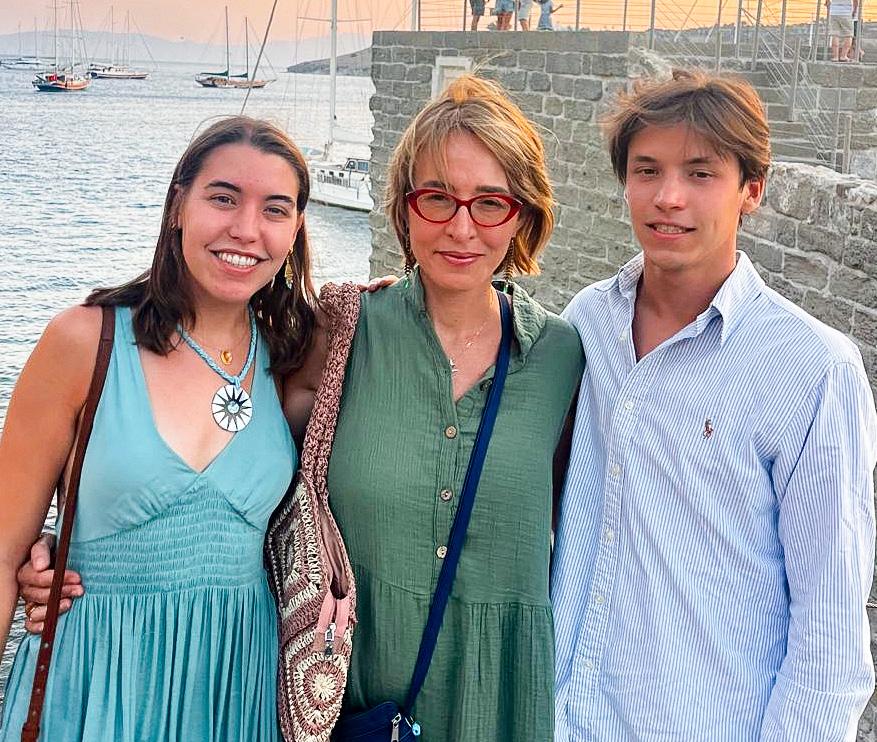
Nicholas ’22 attended Browning from Kindergarten through Grade 12 and is now a rising senior at Boston University. Alexandra graduated from the Nightingale-Bamford School, of which Sofia is also an alumna, and from Tufts University. She currently works in international education as a Global Community Fellow with VIA Programs in Thailand.
Education has been a core value in Sofia’s family for generations. Through this meaningful contribution to the Building Our Future Campaign, they help ensure a future filled with learning and a love of books for Browning boys to come.
To learn more about the Building Our Future Campaign and to get involved, contact Francesca Ryan, Senior Director of Major Gifts, at 646-844-2605 or fryan@browning.edu.
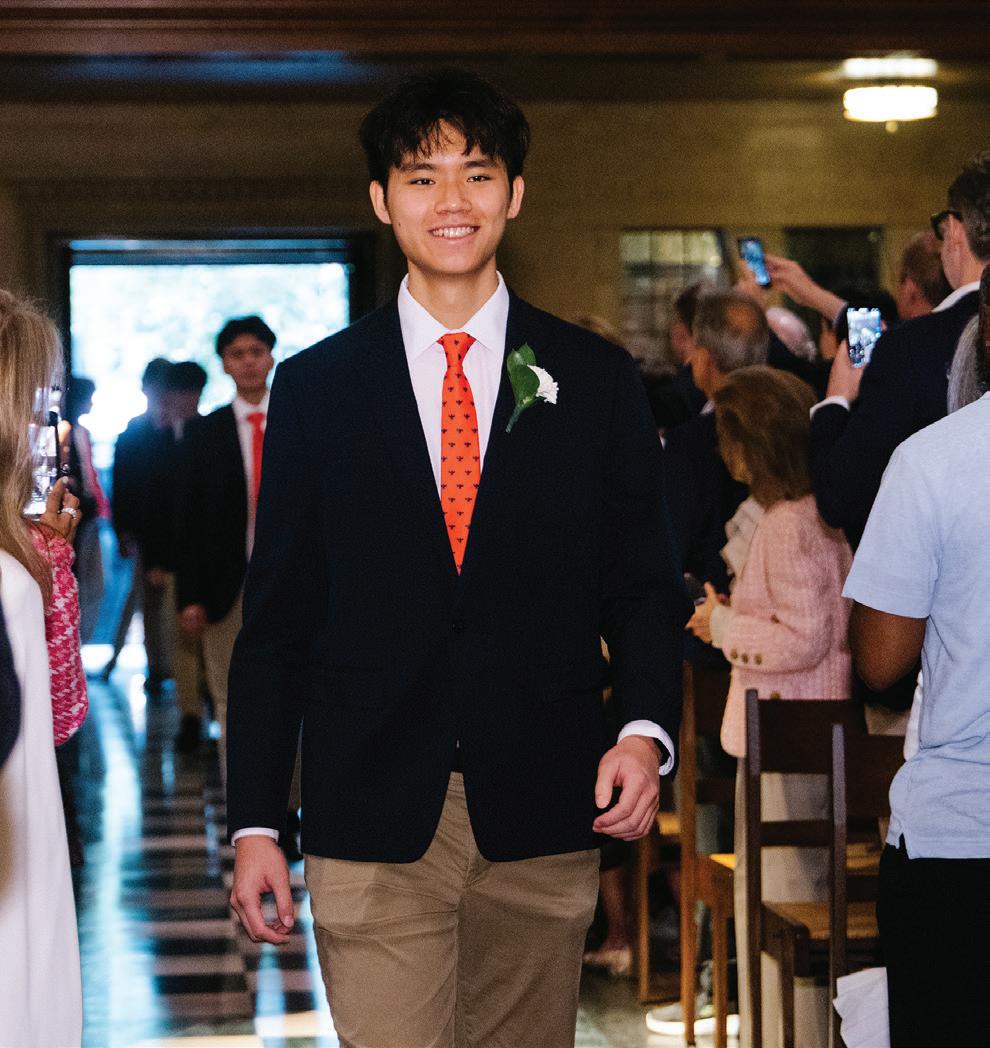
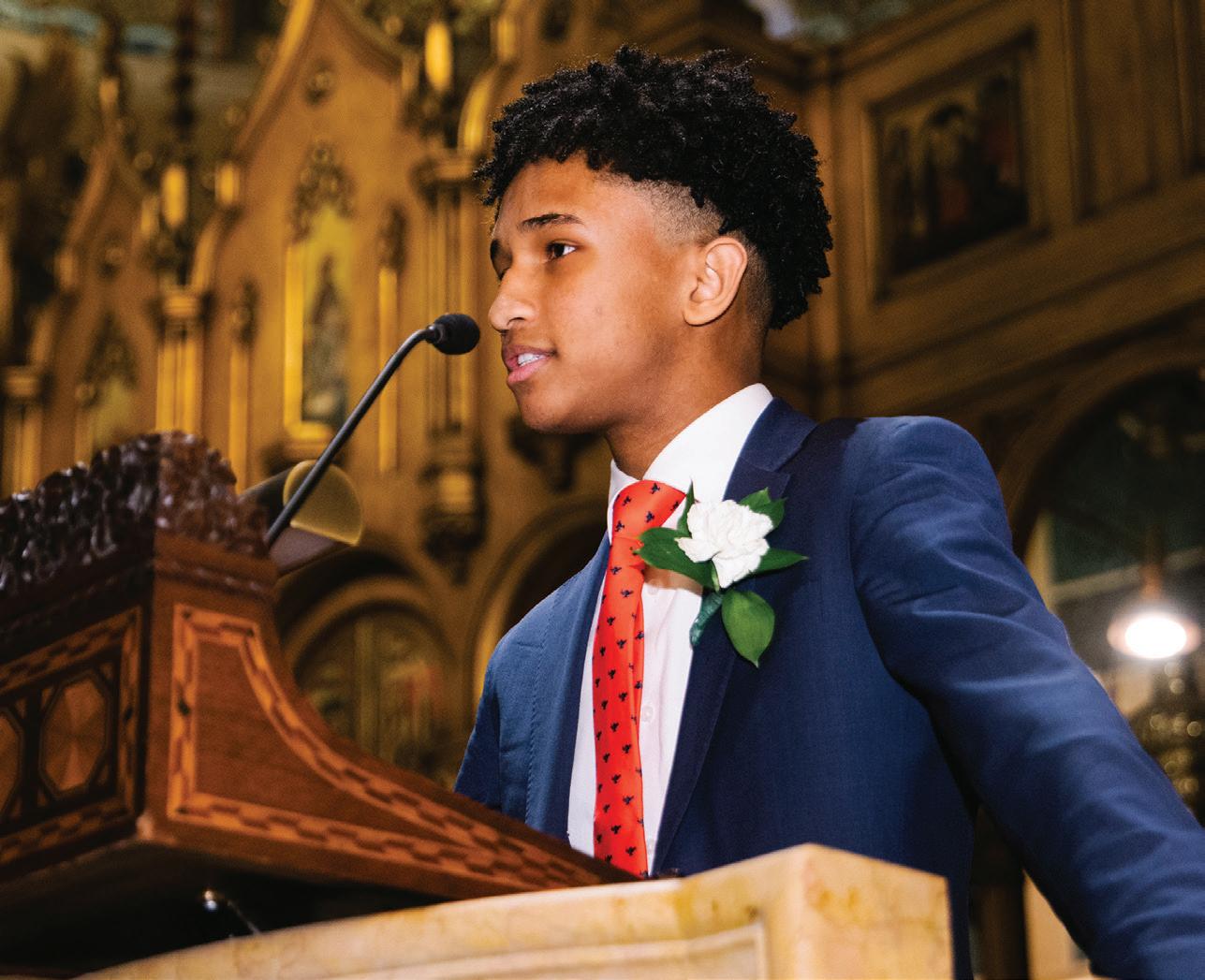
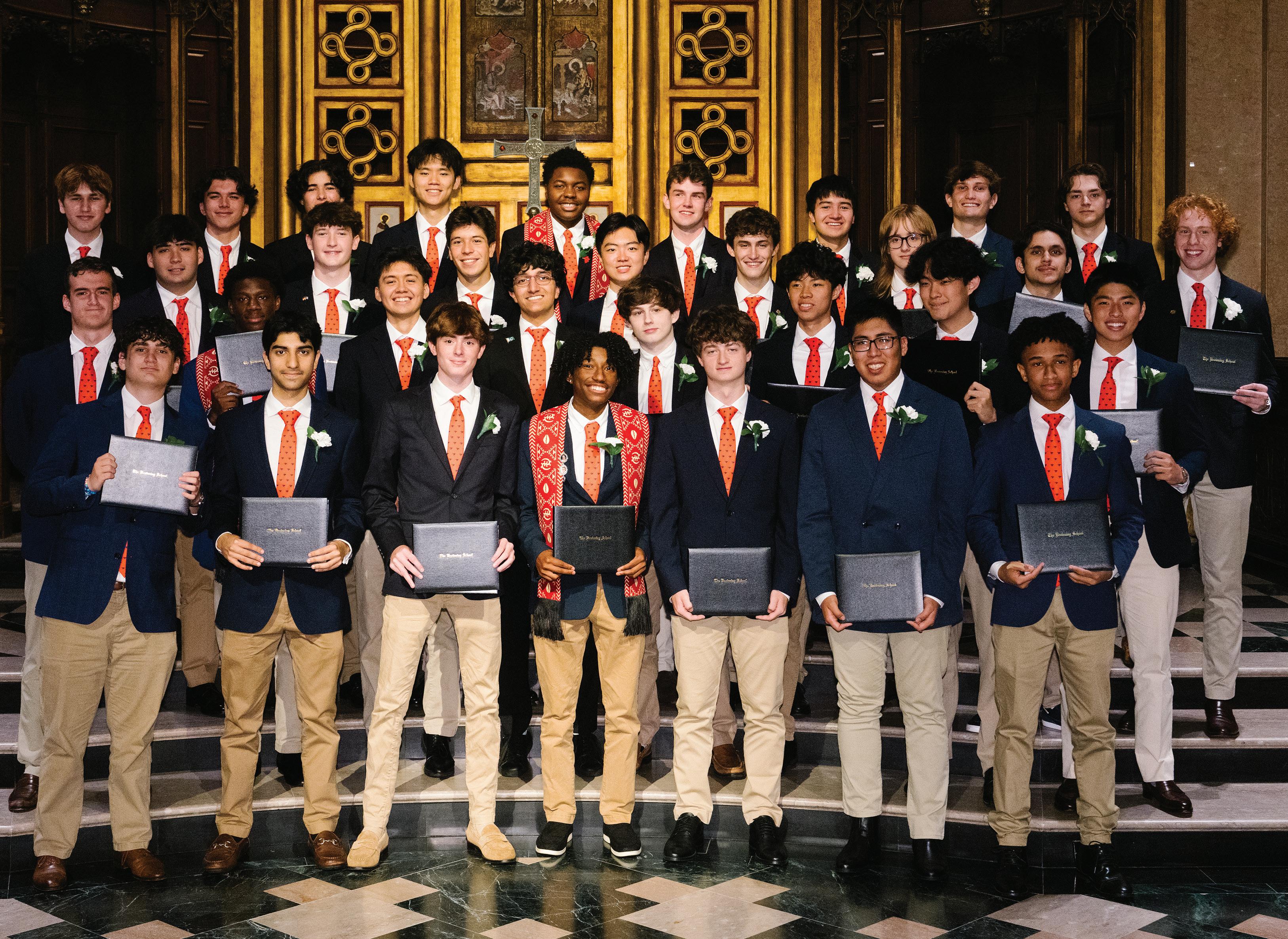
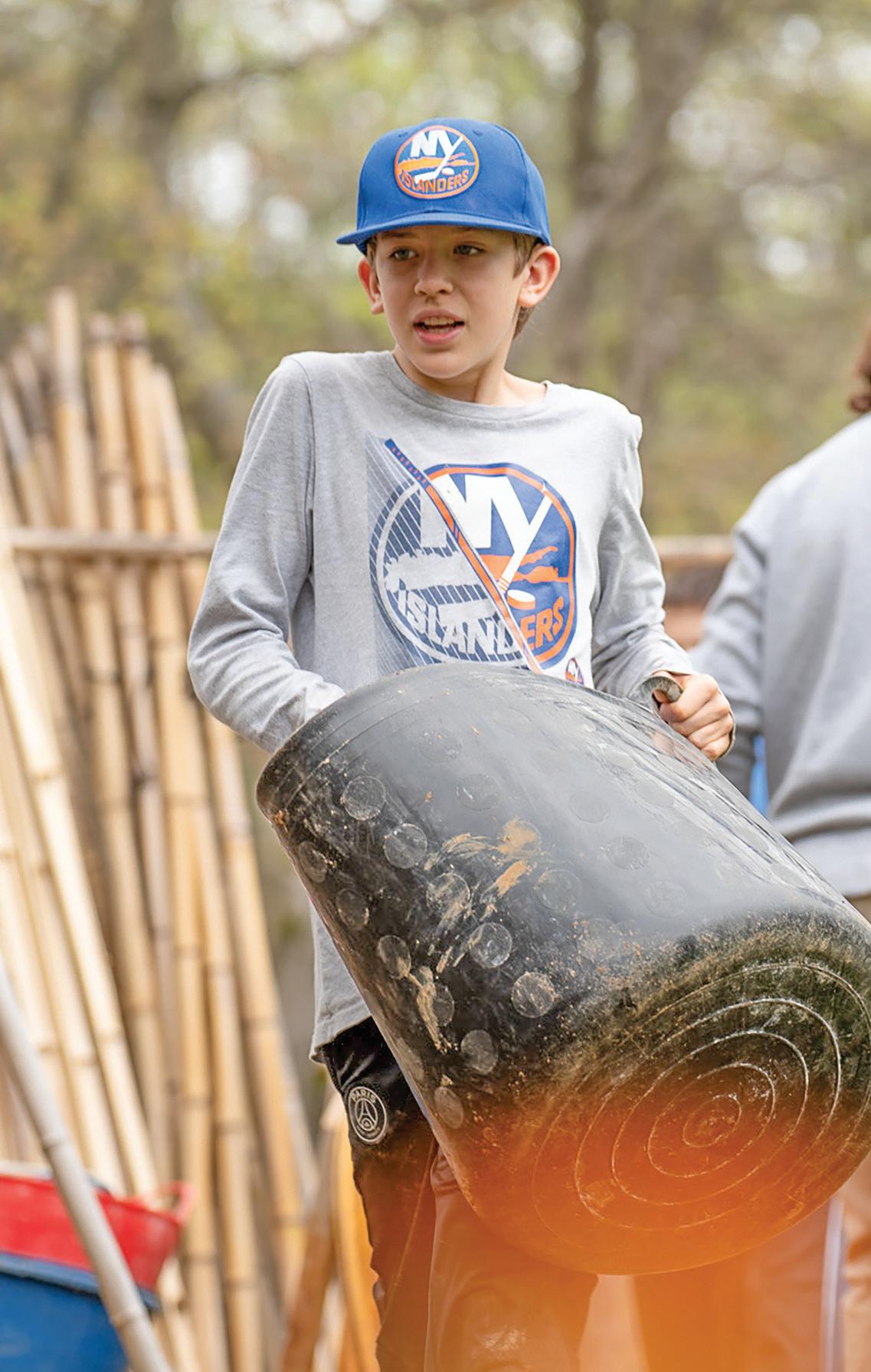
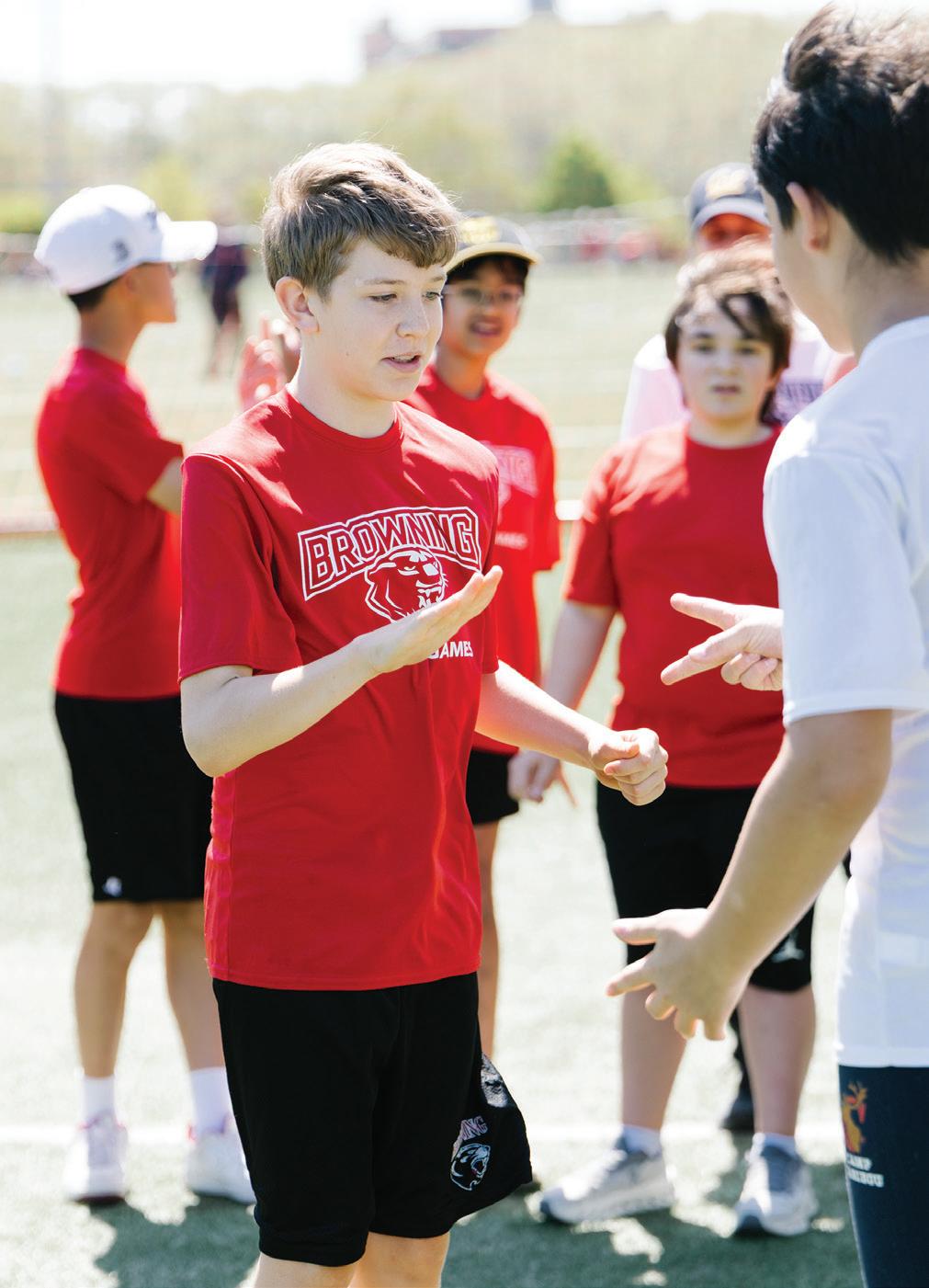
By Jeremy Katz ’04 Director of Communications
A sixth grade family shares why Browning was the right choice for their son.

What drew us to Browning specifically was the way they approach learning: striking the right balance between challenge and support.
After their children attended an independent school that became too small for their needs by fifth grade, the Savvas family sought a larger school for their son Leo as he entered sixth grade, but with a similar approach to learning. With Leo now in seventh grade, his mom, Petra, reflects on how Browning’s environment of challenge, support, and connection proved to be the perfect fit for their son.
How did you find out about Browning?
It was recommended to us by an educational consultant. We hadn’t considered an all-boys school, but visiting Browning completely changed our perspective. We really appreciated the warm welcome we received—from our conversations with the Admission Office to speaking with different parents, the whole experience made a strong impression on us.
What were you looking for in a new school, and what made Browning stand out?
What drew us to Browning specifically was the way they approach learning: striking the right balance between challenge and support. It’s a place where mistakes are part of the process, with feedback and reflection helping students grow. That’s the kind of environment we want for our son.
Why did you end up choosing Browning for your son?
When we toured the School, I could really see my son thriving there. It quickly became his top choice, and that’s when I knew— it was the right fit. The energy of the School, the way students and faculty interacted, and how warmly we were welcomed all stood out. Through various admissions events and conversations with families and staff, we kept hearing a consistent message that aligned with the kind of education and environment we want for our son.
Was there anything during the admissions process or before your first day that made you feel especially welcomed or supported?
Right after the admissions process ended, a current family reached out to us, and we were paired with another family through a buddy system. There were check-ins and events—
like an ice cream social—where my son could meet other new students and connect with faculty. It made us feel really welcomed. Now, I volunteer as a parent ambassador in the Admission Office to help other families in the same way, because it was so meaningful to us.
What are the most impressive features of your son’s experience thus far?
The connection my son has with his teachers has been invaluable. He trusts them to challenge and support him, and he knows it’s okay to make mistakes and grow from them. That trust has helped him thrive—not just academically, but personally—and it’s reinforced why an all-boys environment focused on both growth and vulnerability felt like the right choice.
The China Folk House Retreat—an immersive four-day trip blending curriculum and outdoor learning in West Virginia—is a key part of the Middle School experience. How did your son respond to it?
His only complaint when he got back was that it was too short! As a new student, he was a bit anxious—wondering who he’d room with—but he ended up making new friends with classmates he didn’t know as well. The trip was also a great extension of what they were learning in class about ancient China, and it gave them a chance to connect that learning with hands-on experiences in a fun, immersive way.
What words of advice do you have for a family who is wondering whether a boys’ school like Browning is right for their son?
I’d tell a family considering Browning that the School’s approach to learning is outstanding. The curriculum is thoughtfully designed, with an emphasis on connection and meaningful conversations, which is especially important in today’s world where boys often feel isolated. The school encourages vulnerability, empathy, and genuine friendships. Teachers are deeply engaged with the students, noticing both their challenges and successes, which creates a supportive environment where boys grow together.

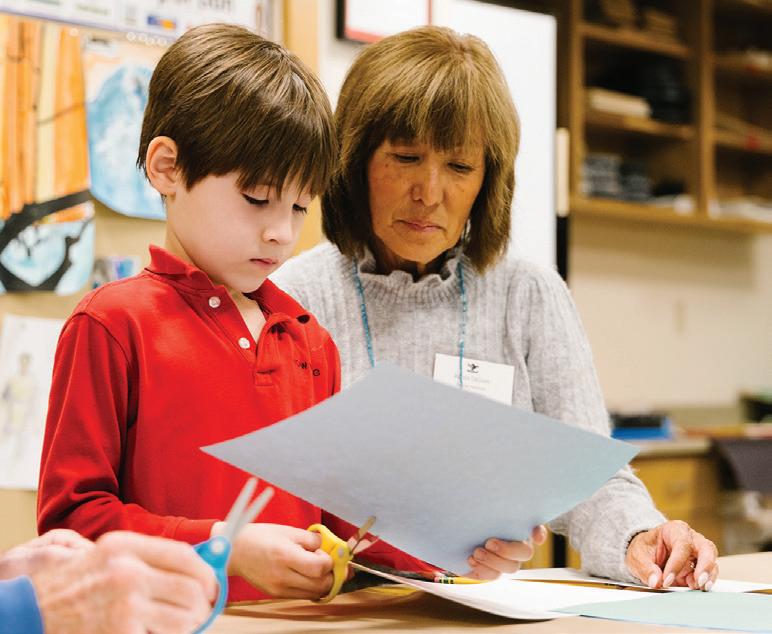

Our Grandparents and Special Friends Day in May was a joyful celebration as K–2 students welcomed over 100 guests into their classrooms to share stories, artwork, songs, and Panther pride! The morning began with a lively performance by the Lower School chorus, followed by engaging activities across homerooms and special classes. It was a memorable morning that brought generations together and showcased the spirit and creativity of our youngest learners.
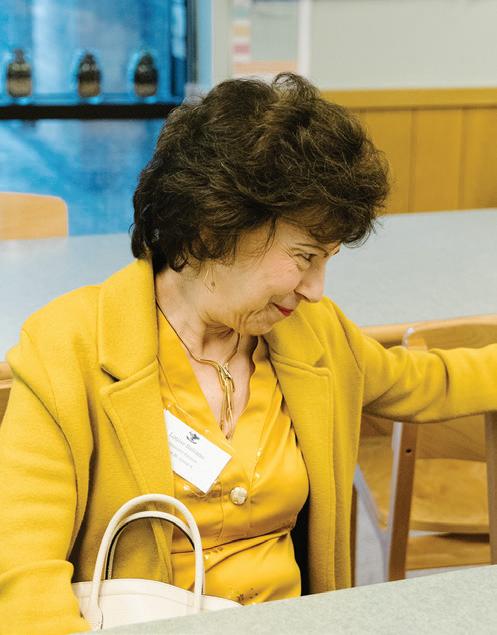
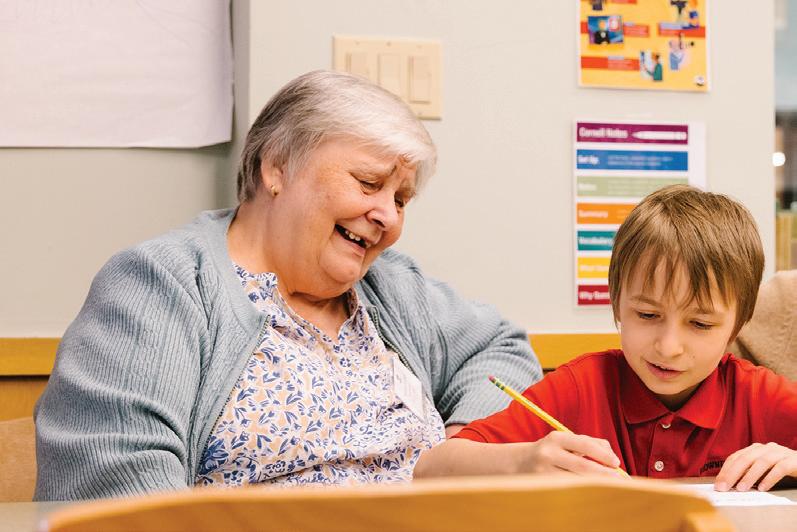
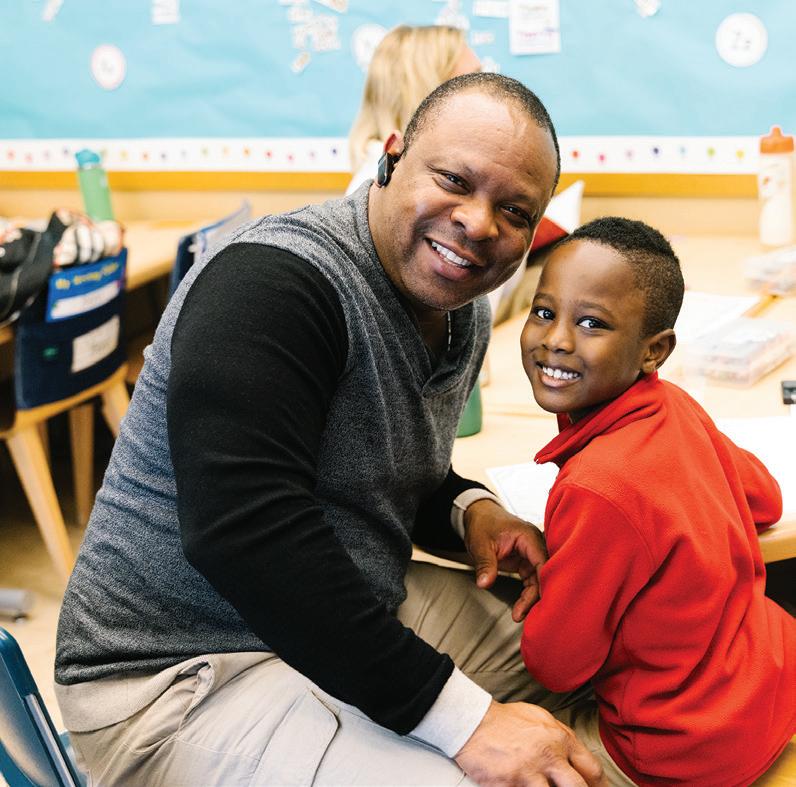
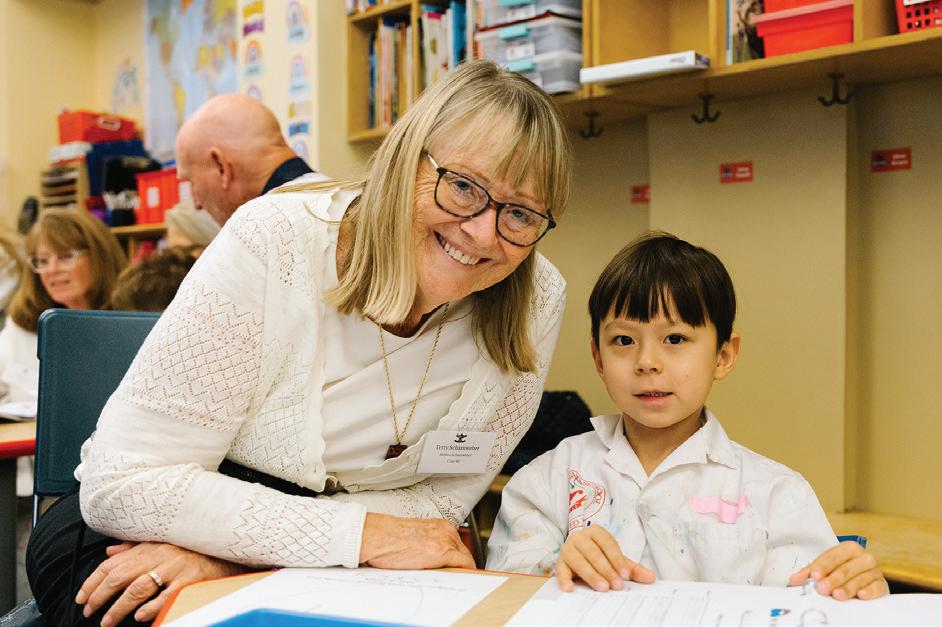
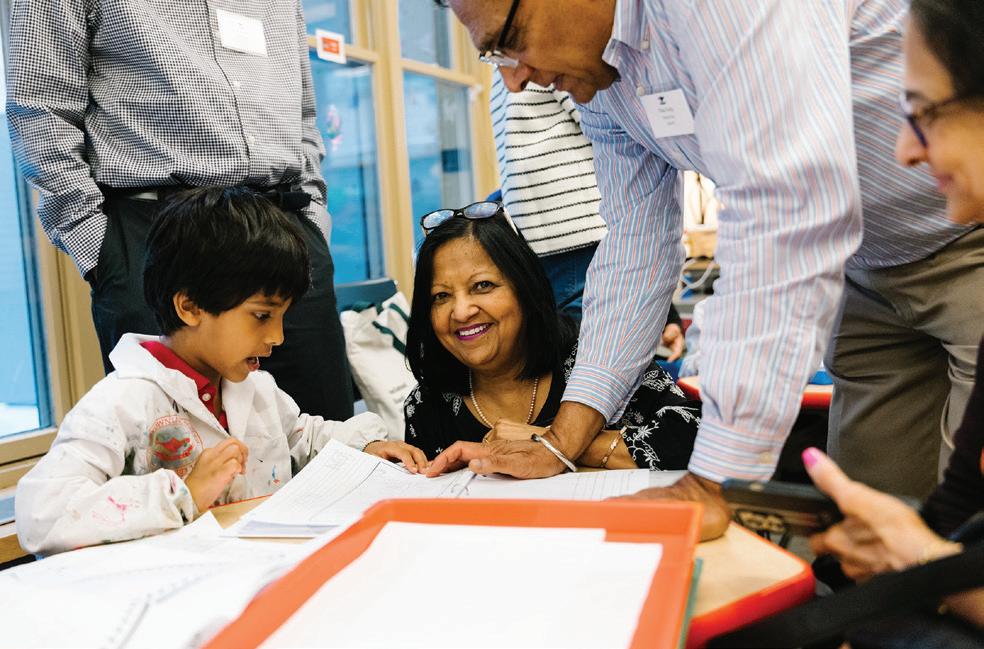
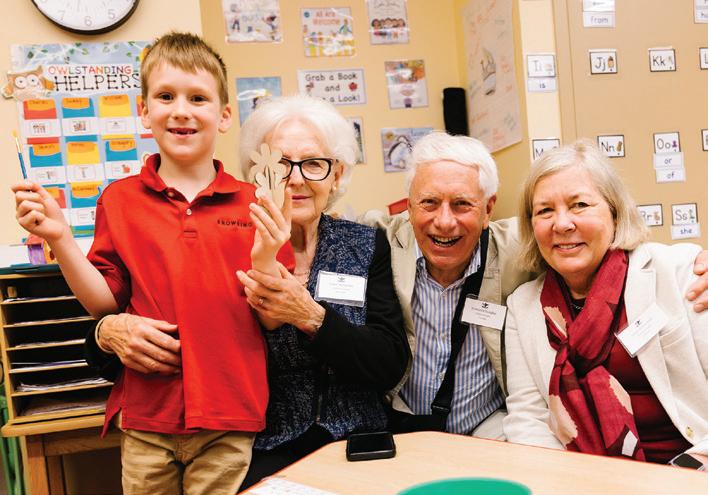
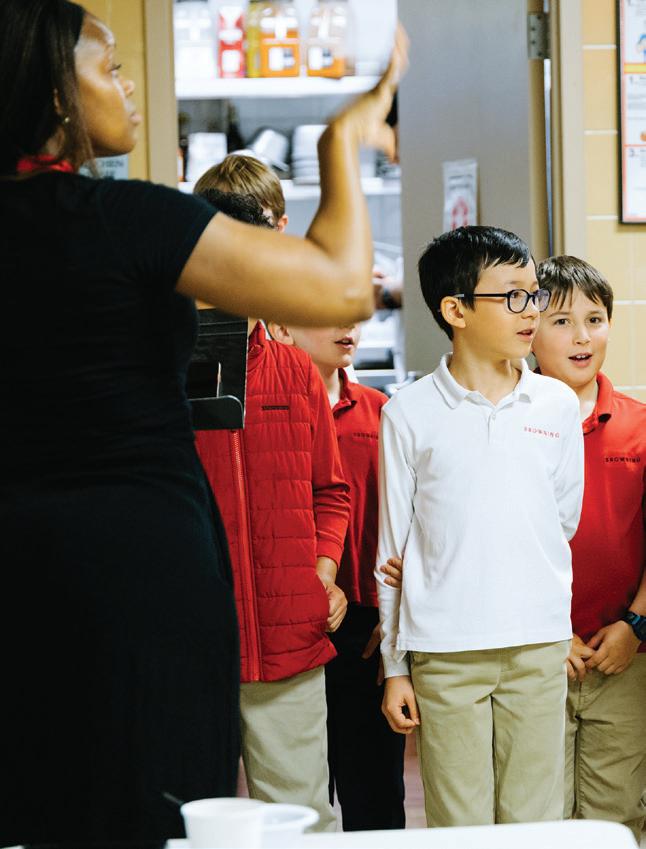
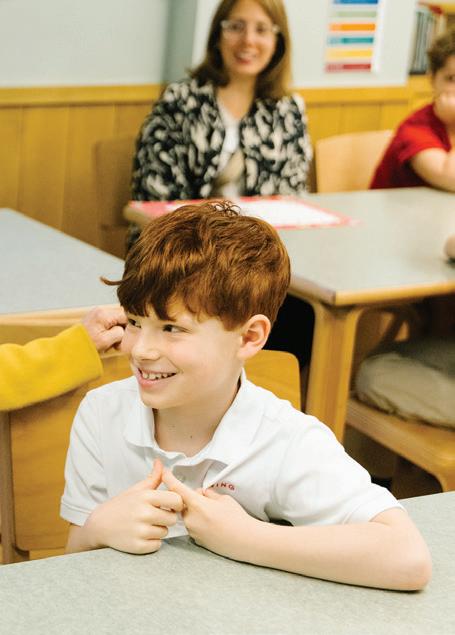

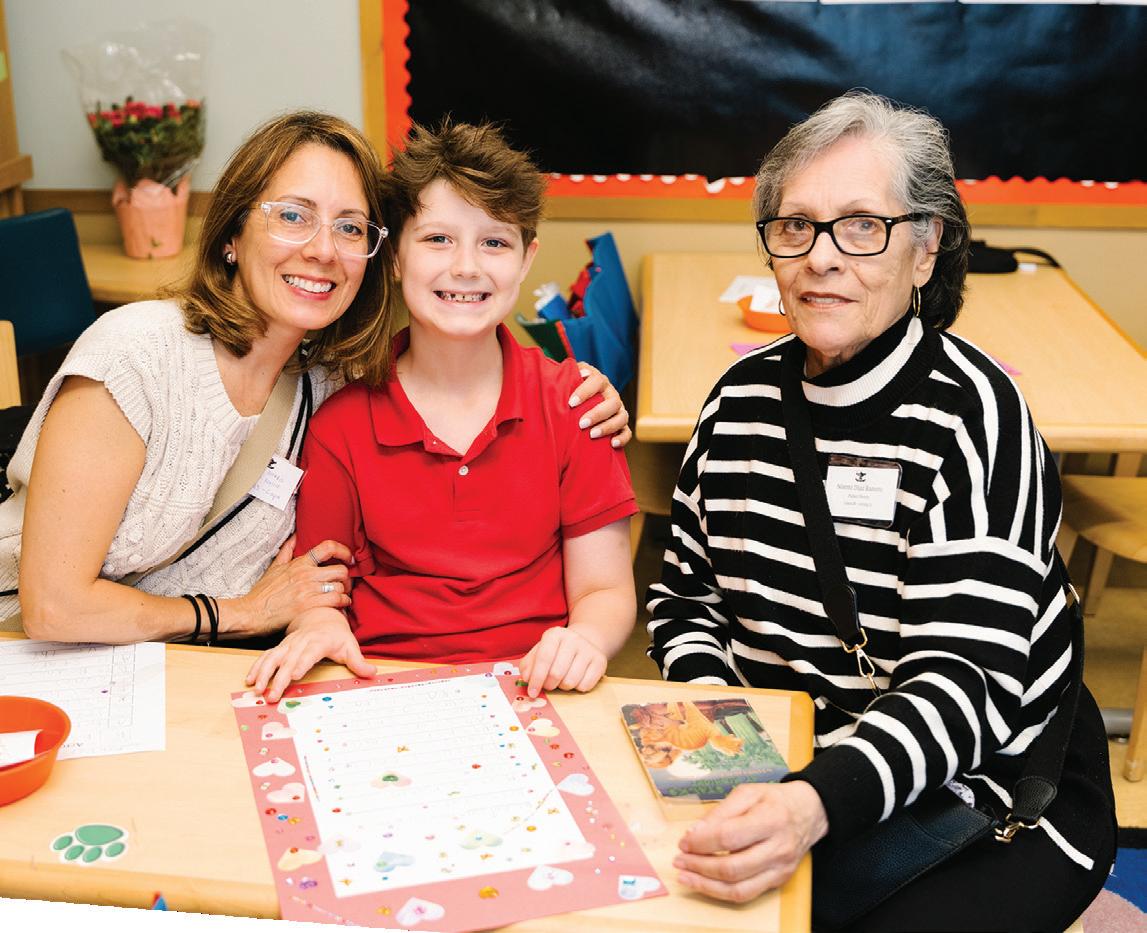
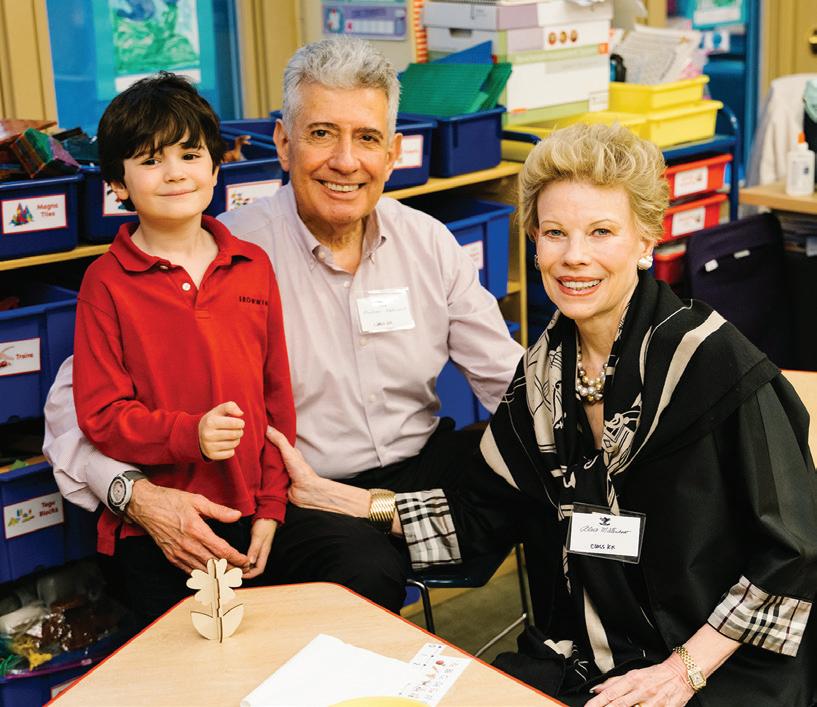
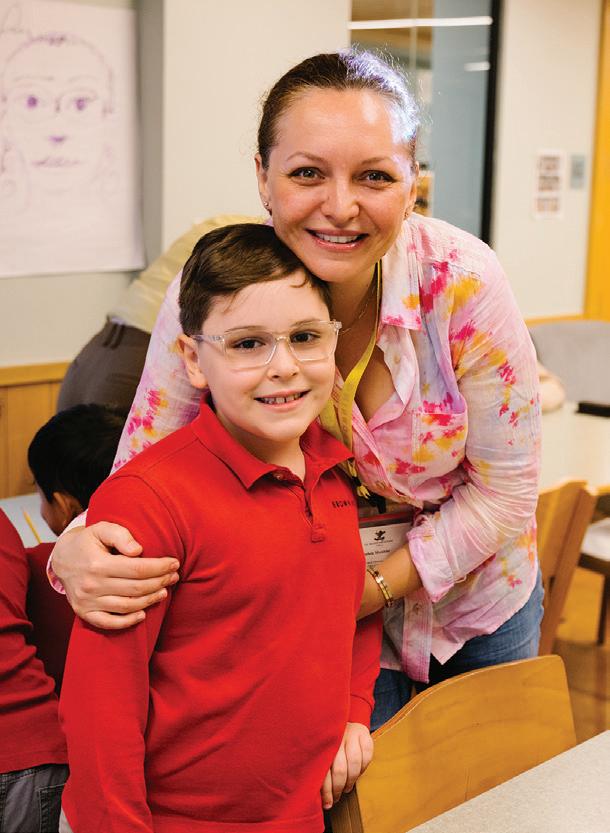
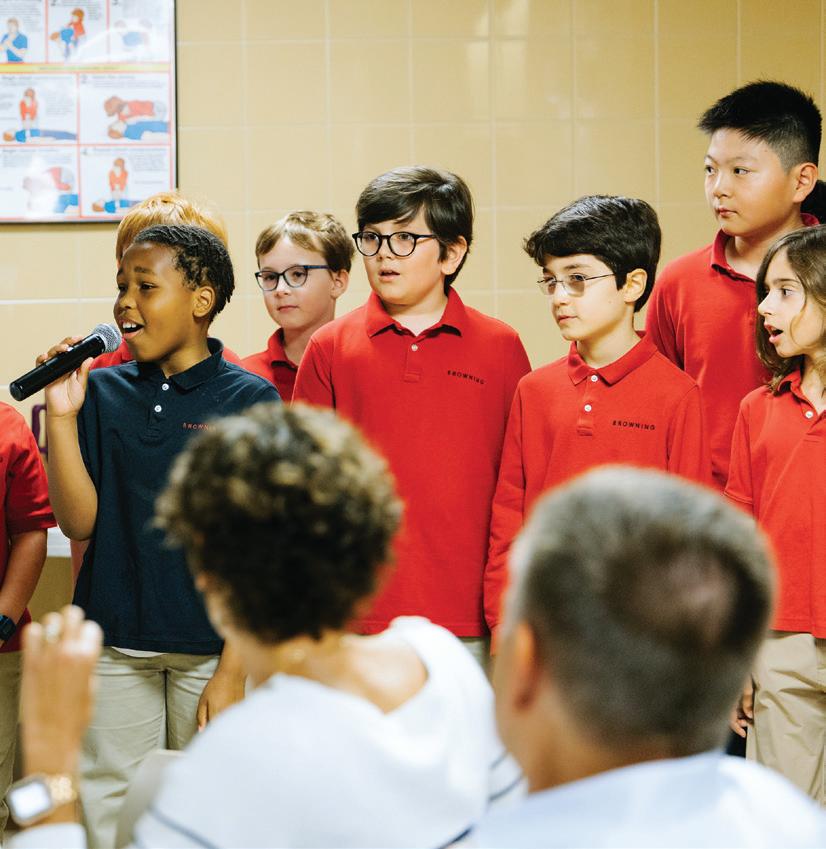
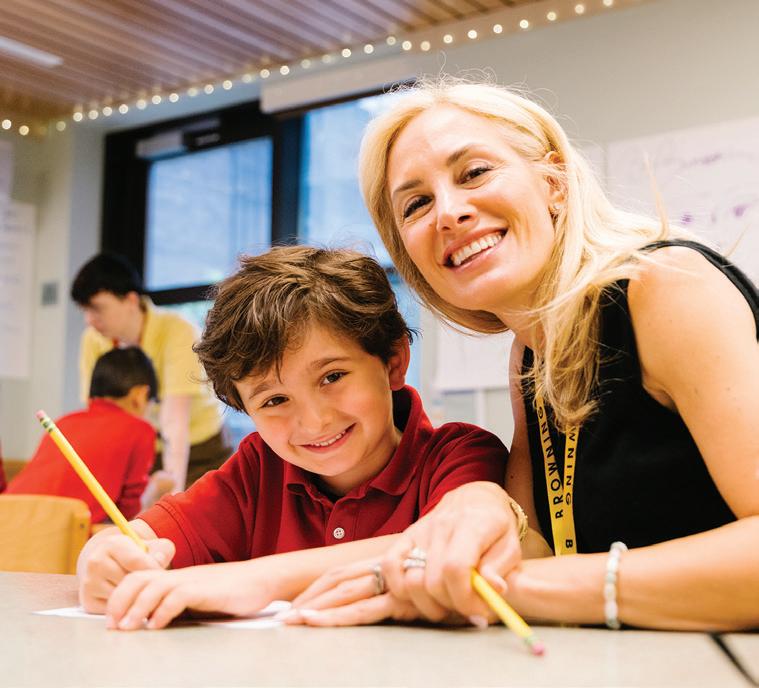

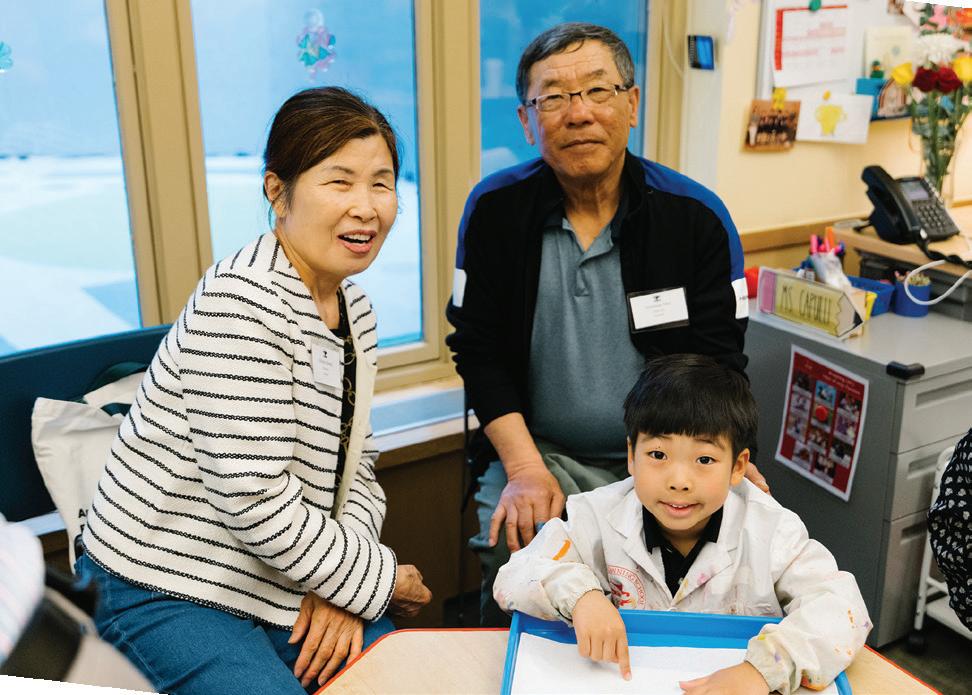
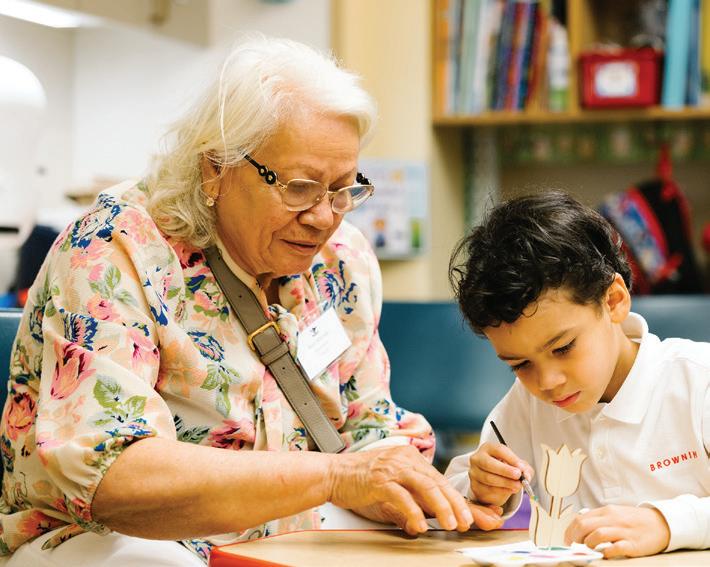
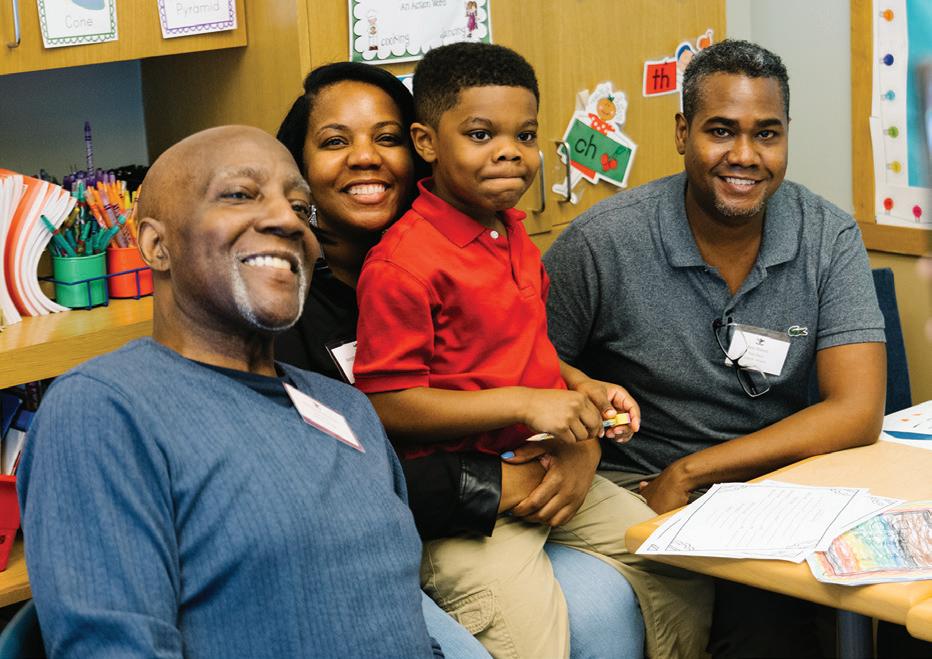

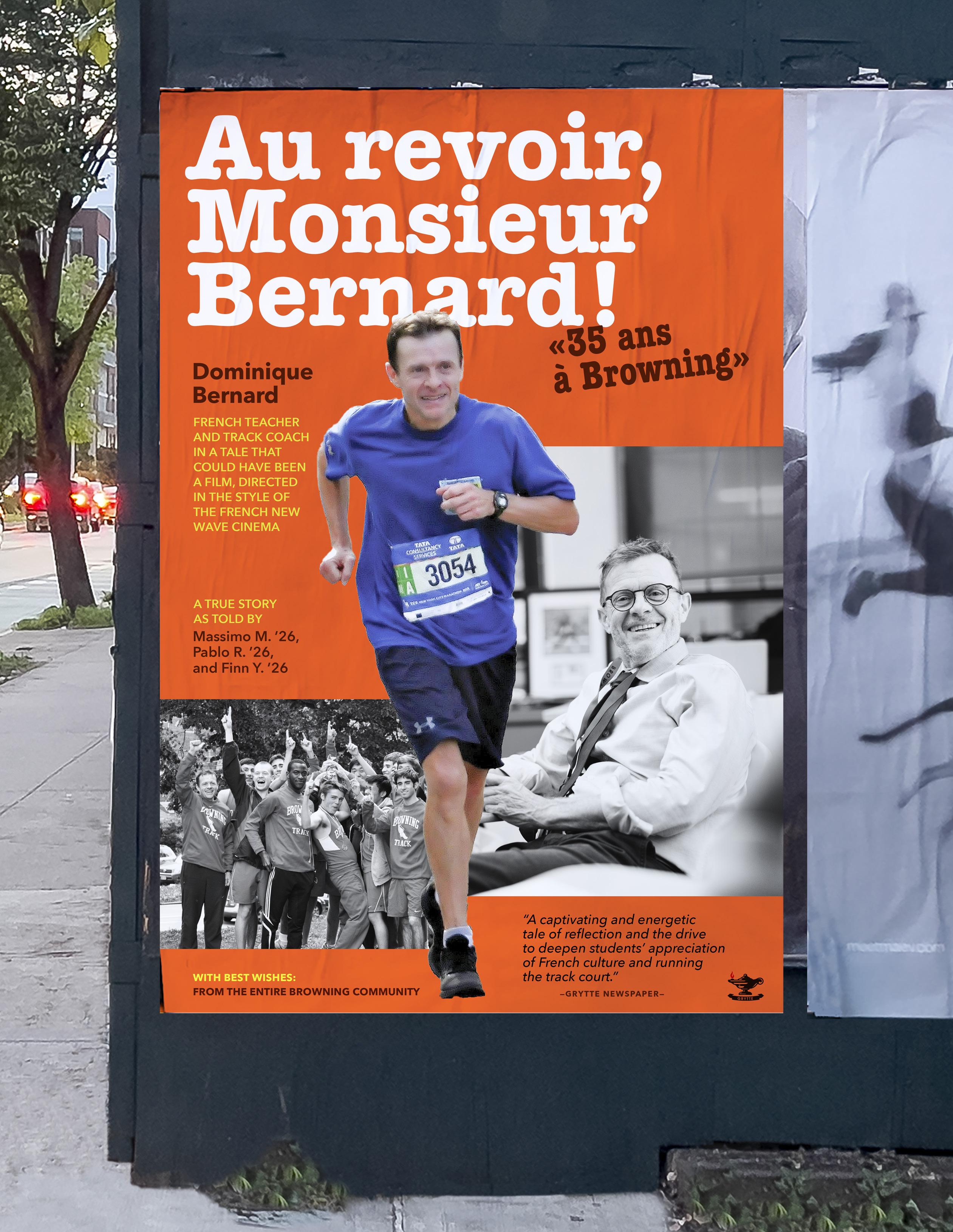
From his first lessons with curious Lower Schoolers to spirited debates in AP French, Dominique Bernard has left an indelible mark on generations of Browning students during his extraordinary time here.
Growing up in eastern France, Mr. Bernard was inspired by many of his own teachers to pursue a career in education. His passion for travel and exploration led him to send out résumés to French schools around the world. One of them—located across the Atlantic, in New York—responded, and so began his journey to the United States.
Mr. Bernard initially taught at a French immersion school in New York before joining Browning, curious to experience the American educational system more deeply. What was meant to be a brief teaching stint turned into a 35-year career behind the Red Doors on East 62nd Street.
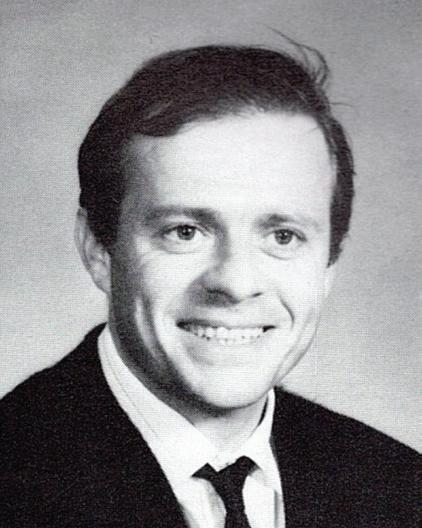
“I was thinking maybe two or three years,” Mr. Bernard said with a smile, “and here we are.”
Adjusting to a new school system wasn’t without its challenges, but the Browning community welcomed him warmly. Over time, Mr. Bernard has seen each new generation transform from wide-eyed Lower Schoolers into confident, articulate young men.
In the classroom, Mr. Bernard strove to move beyond the standard routine of vocabulary quizzes and slide presentations. His goal was always to make the language come alive, helping students connect with the depth and richness of the Francophone world. One way he did this was through film.
French cinema had long been a cornerstone of Mr. Bernard’s teaching, namely classics like The 400 Blows by François Truffaut and The Wages of Fear by Henri-Georges Clouzot to spark reflection and deepen students’ appreciation of French culture and storytelling.
For many of us in French IV, it’s been nine years with Mr. Bernard and our nostalgic heartstrings will tug a little whenever we hear someone else say his signature phrase, “Parlez en français!”
As we head into our final year at Browning, we hope to carry forward not just our French studies but all our academic and personal pursuits with the same rigor and discipline that he instilled in us. From the French IV class and the entire Browning community we say: Merci pour tout, Monsieur Bernard.
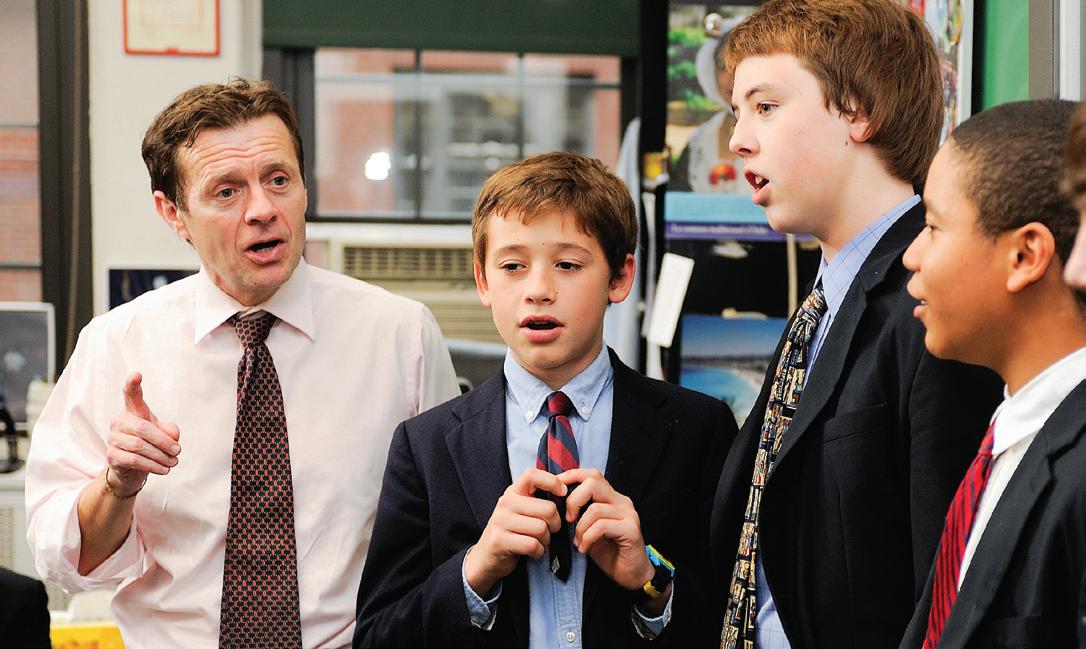
“I want to inspire my students to not only enjoy the class and projects, but to fall in love with the French language itself,” he said.
Mr. Bernard often reminded students that learning French is more than a school subject—it’s a lifelong tool. He loves hearing from former students who’ve gone on to live in France, marry French-speaking partners, or work for French companies. Sometimes, he’ll bump into a former student who stops him to say, “Thank you—I still use what I learned in your class.”
French cinema had long been a cornerstone of Mr. Bernard’s teaching, namely classics directed by François Truffaut and Henri-Georges Clouzot.
Outside of the classroom, Mr. Bernard brought his personal love for running to his coaching of Browning’s cross country and track teams. A seasoned marathoner himself—having completed 26 New York City Marathons and several others—he approached coaching with passion and purpose.
“The goal wasn’t to make champions,” he said, “but to build good habits and enjoy running.”
When asked what he’ll miss most, Mr. Bernard doesn’t hesitate: the students. “There are so many different kinds of students, and each one has something special.” He believes Browning helps every student find his place. “Sometimes a student might struggle in class but turn out to be an incredible musician or actor,” he said.
As Browning enters a new era with the opening of the new Upper School building, Mr. Bernard felt this spring was the right moment to step away. “It’s sad, of course,” he reflected, “but it’s also a new cycle. I’ve seen so many great teachers come and go. Now it’s someone else’s turn.”
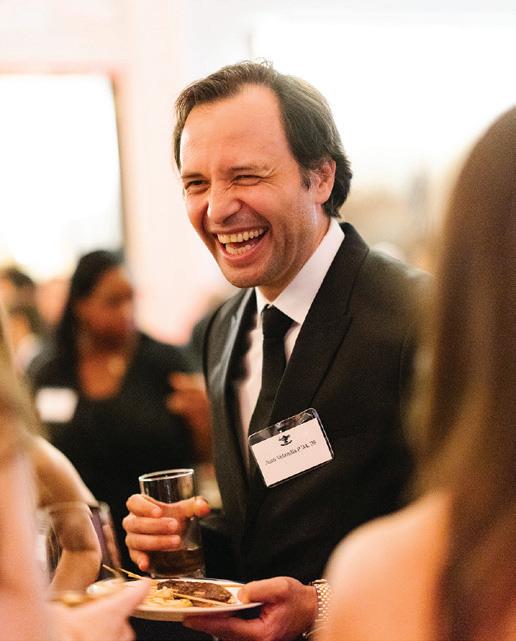

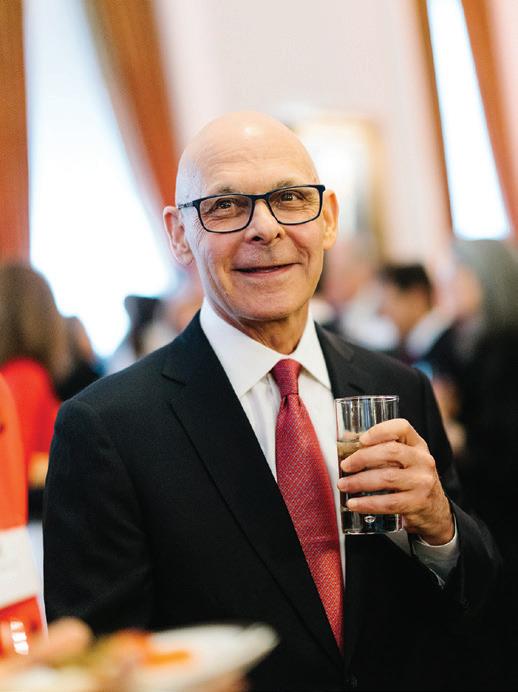




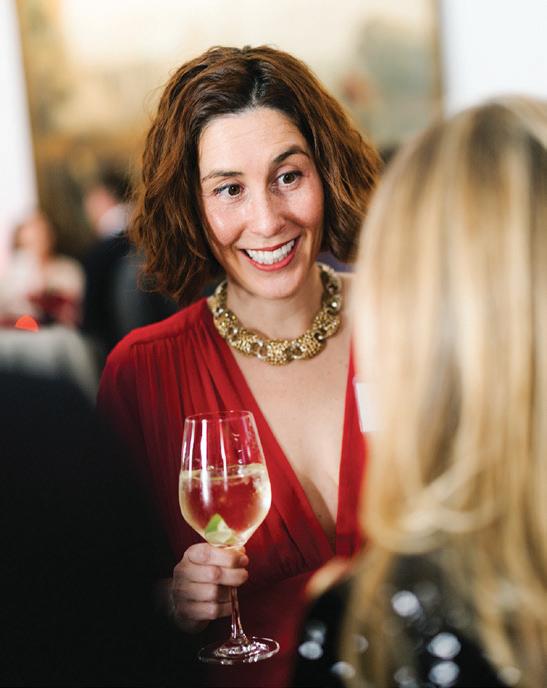
festive night was in the cards at the Union Club!
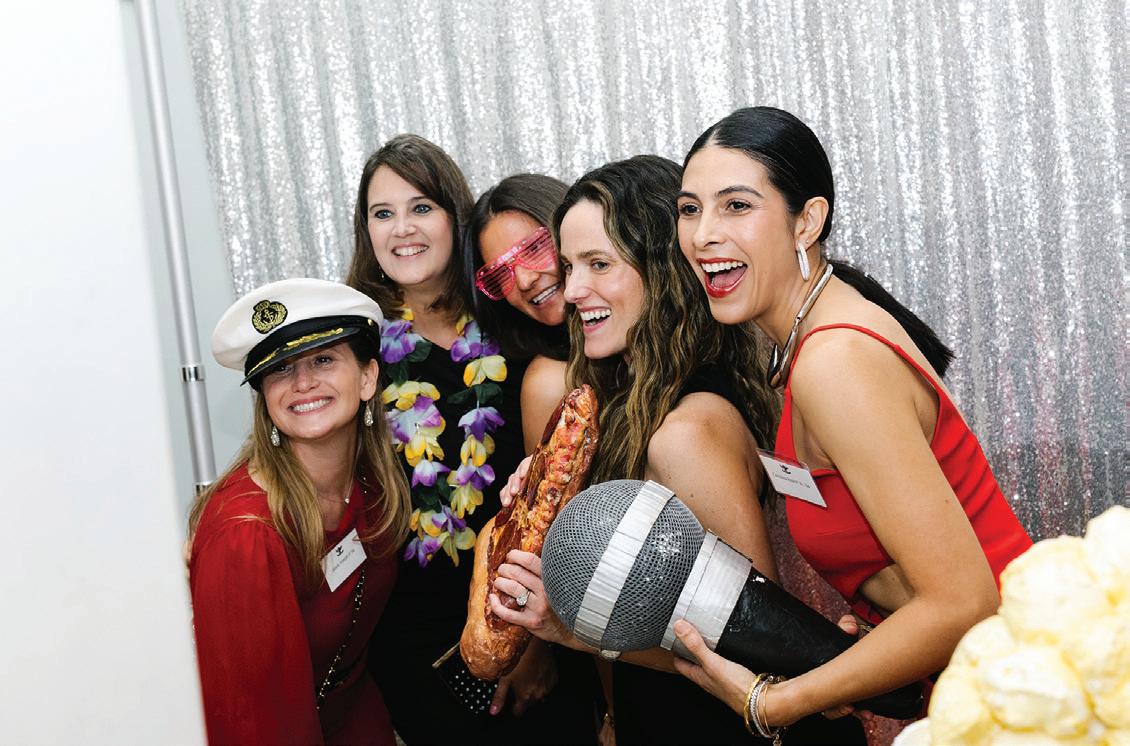

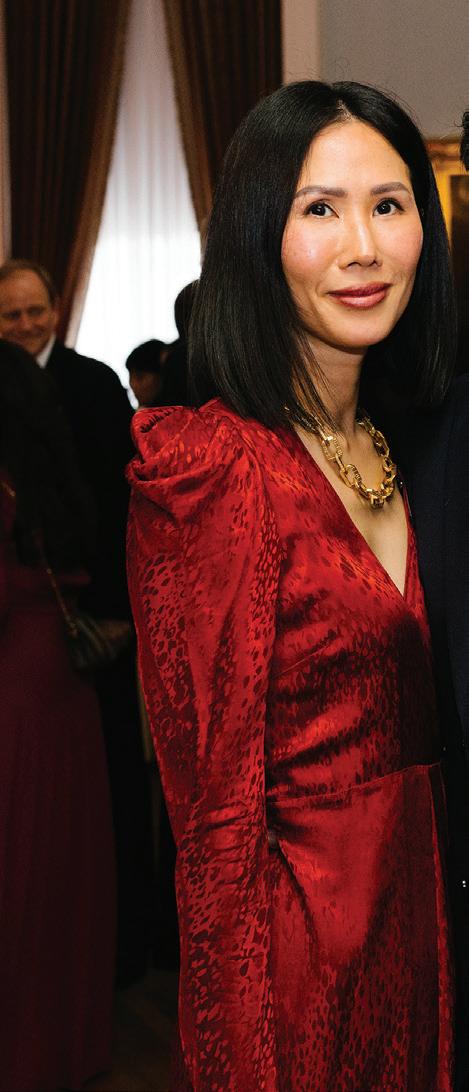
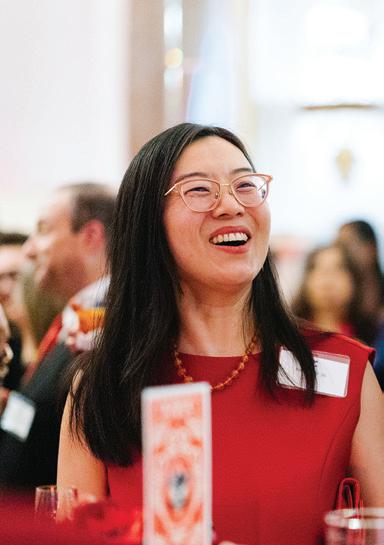
The 2025 Spring Celebration brought together families, alumni, faculty, and friends to honor all that makes Browning so special. With mesmerizing performances by mentalist Ryan Oakes and a sea of black and red attire, the evening sparkled with joy and connection.

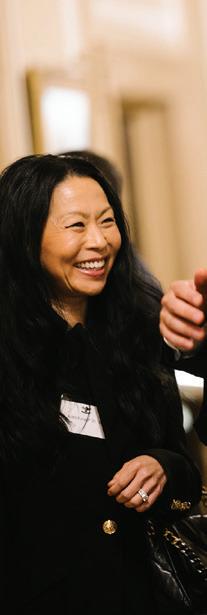

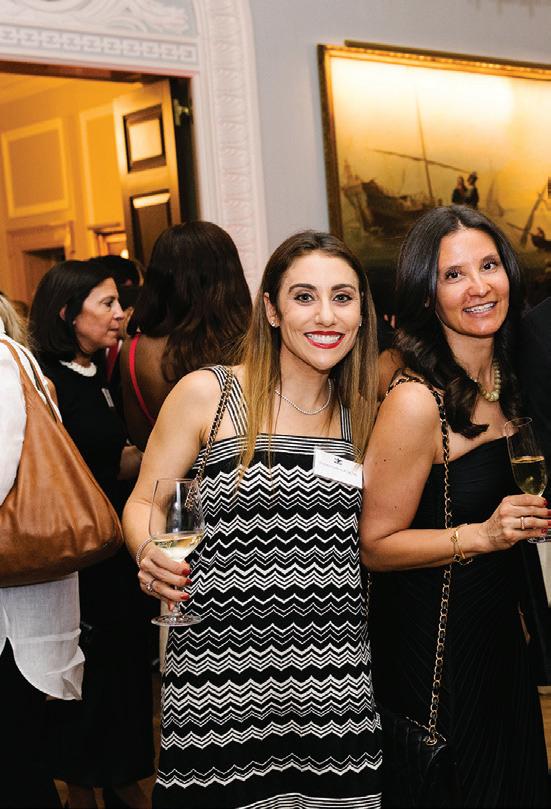
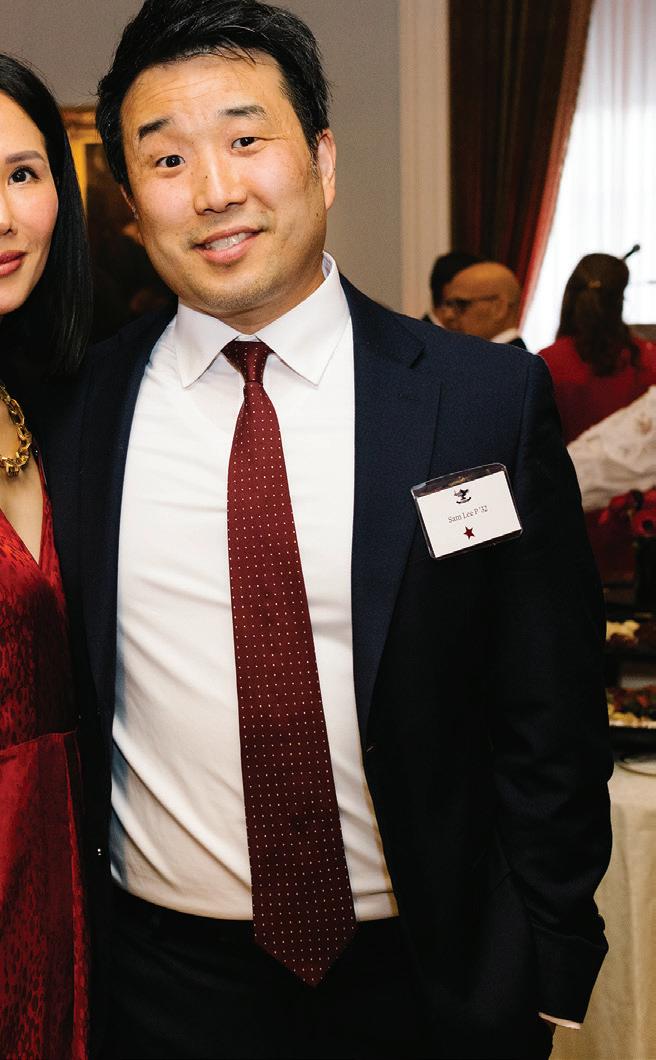
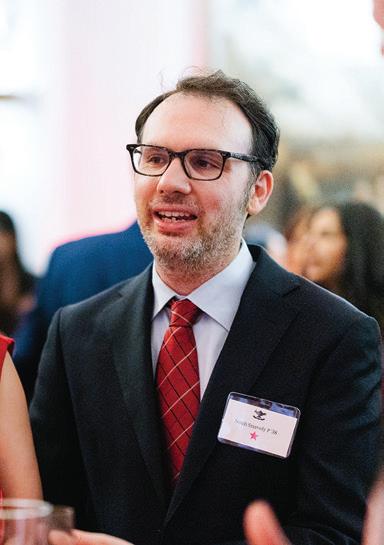

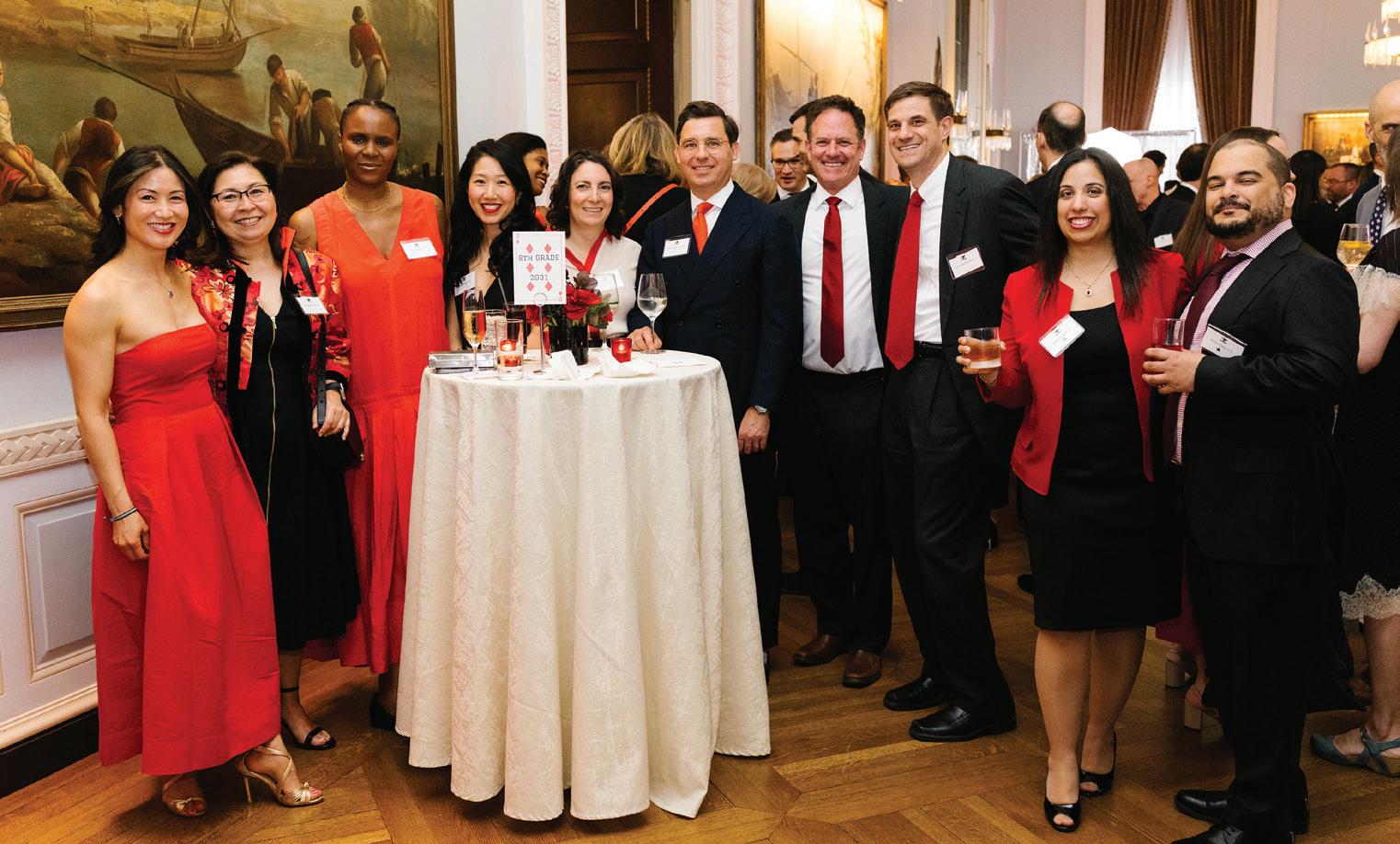
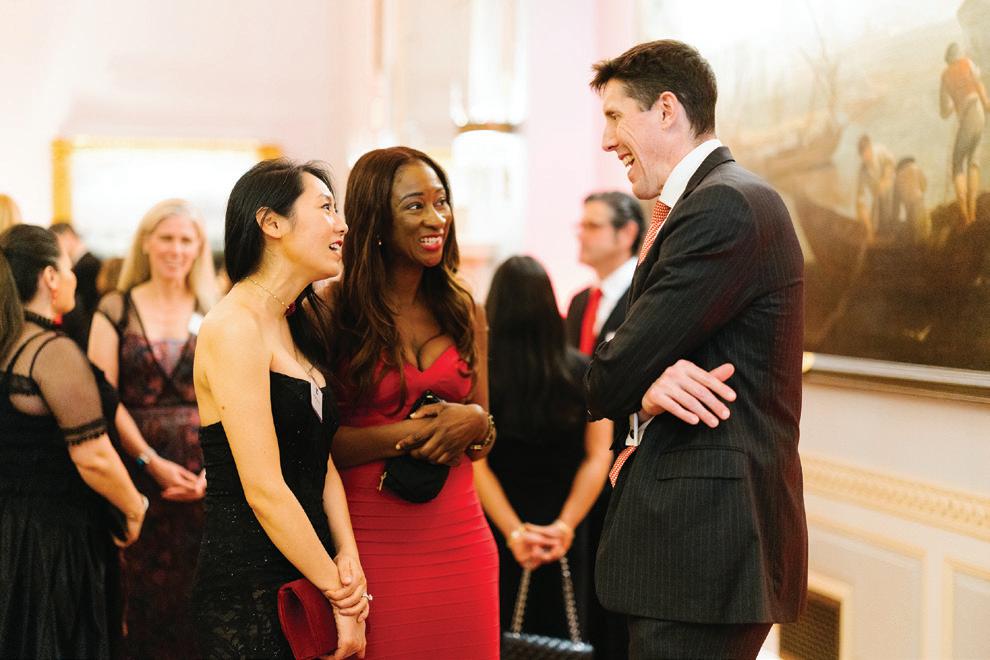
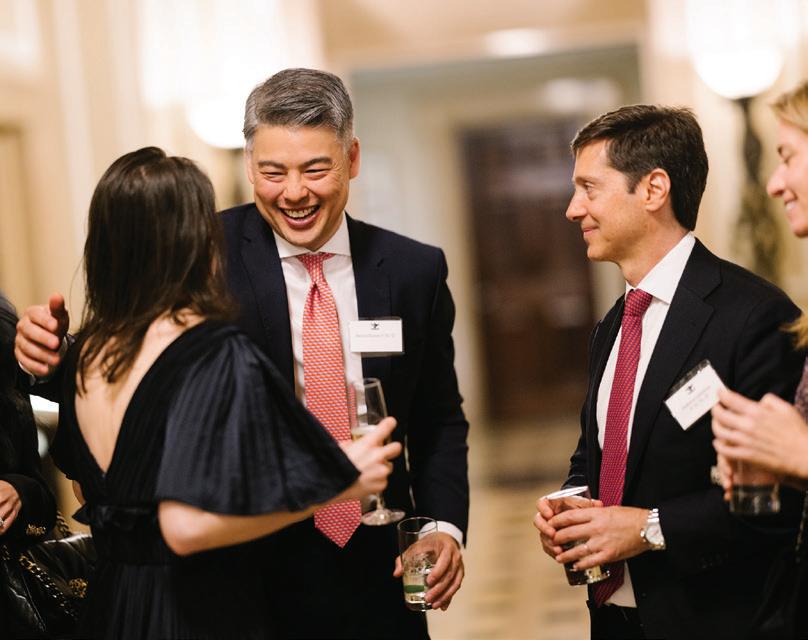
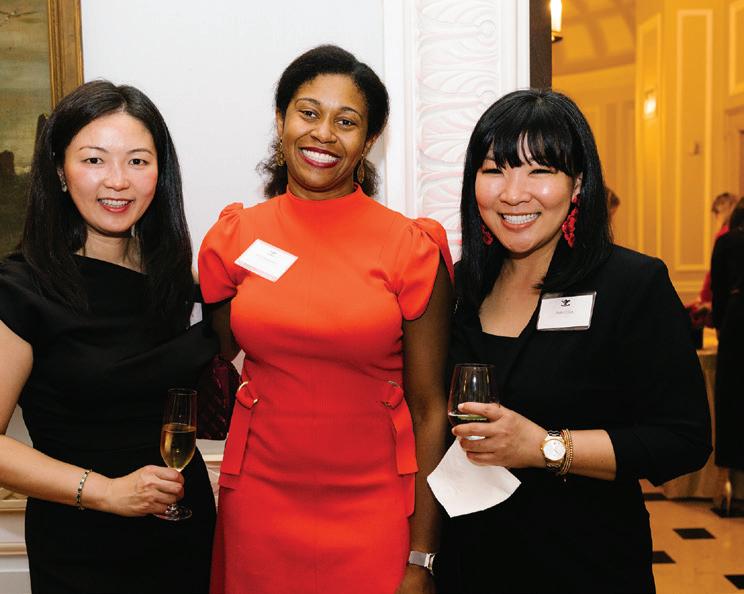
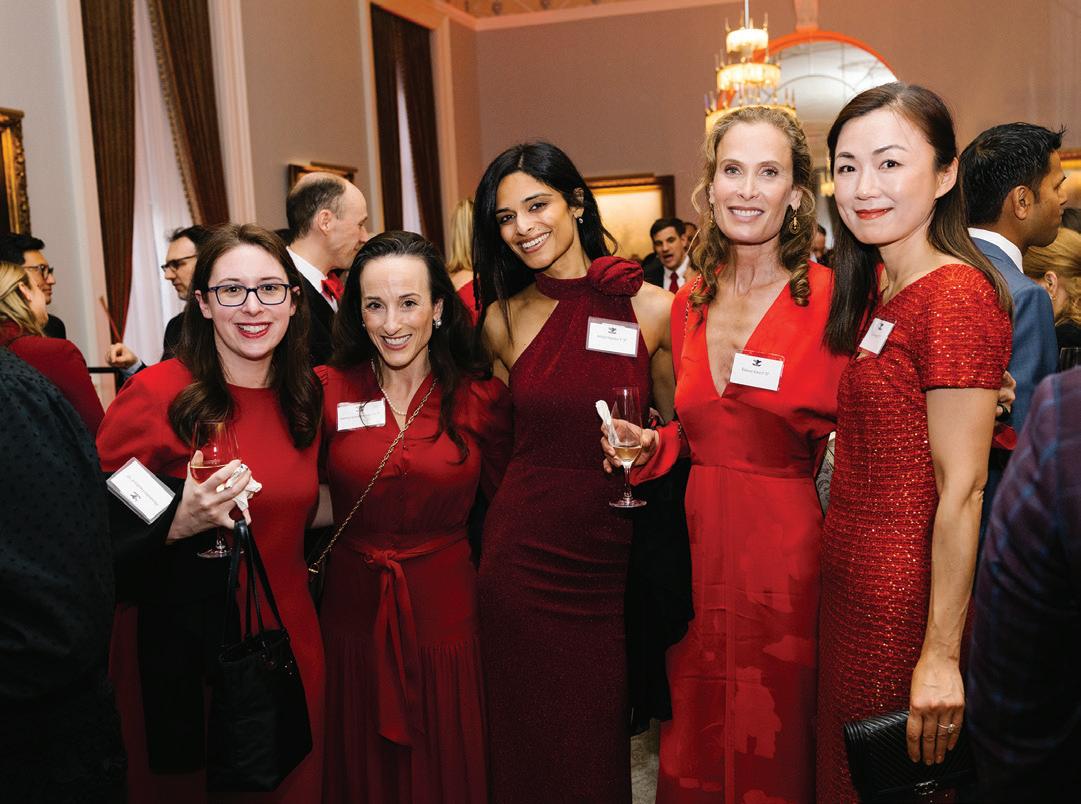
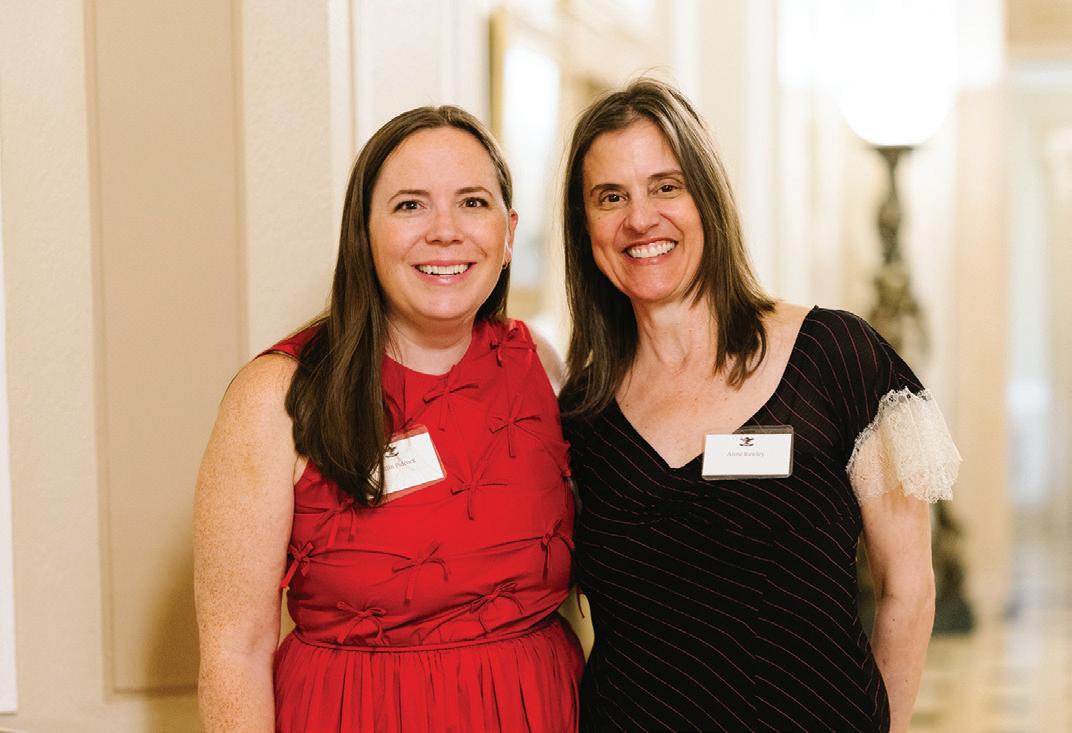
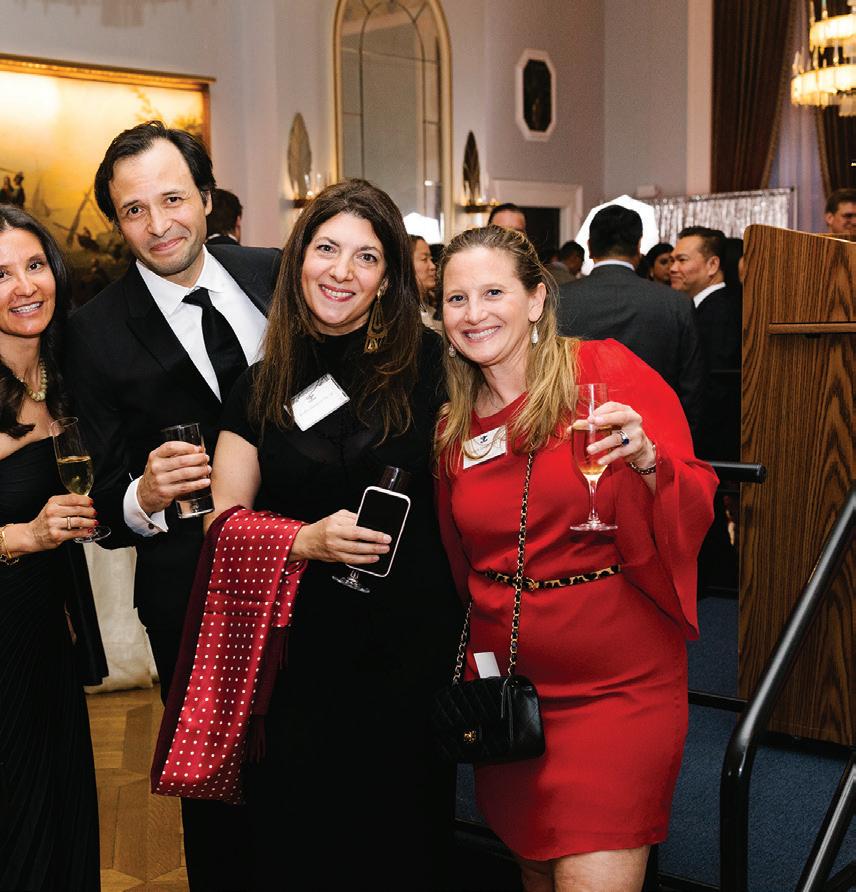
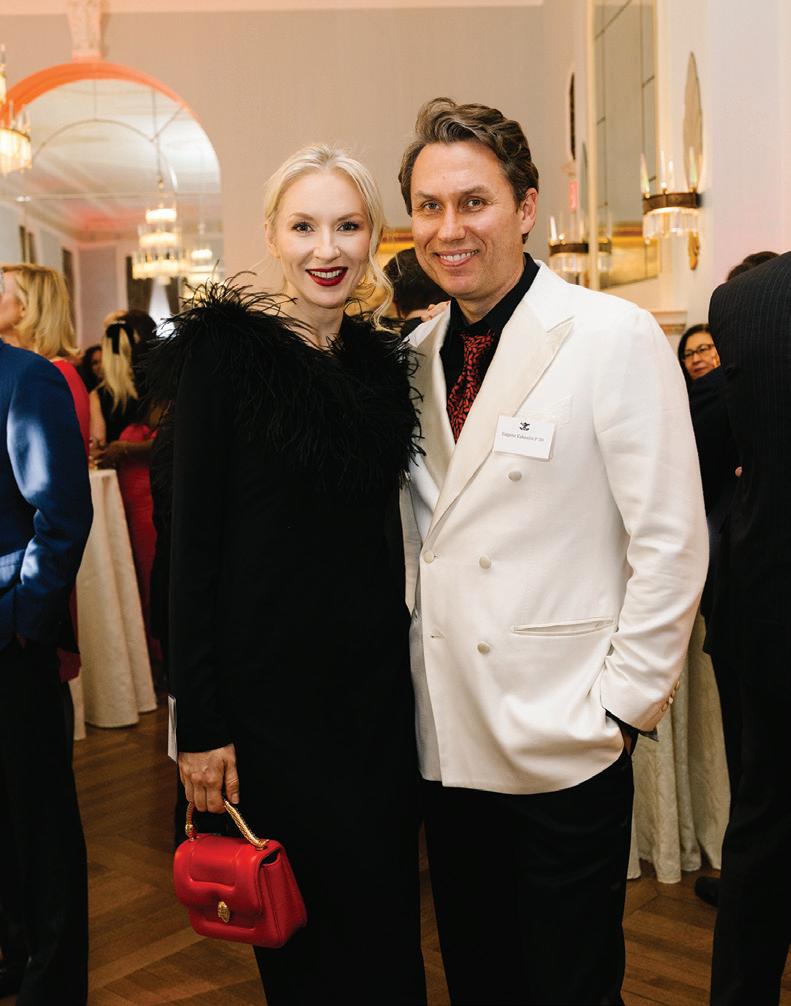

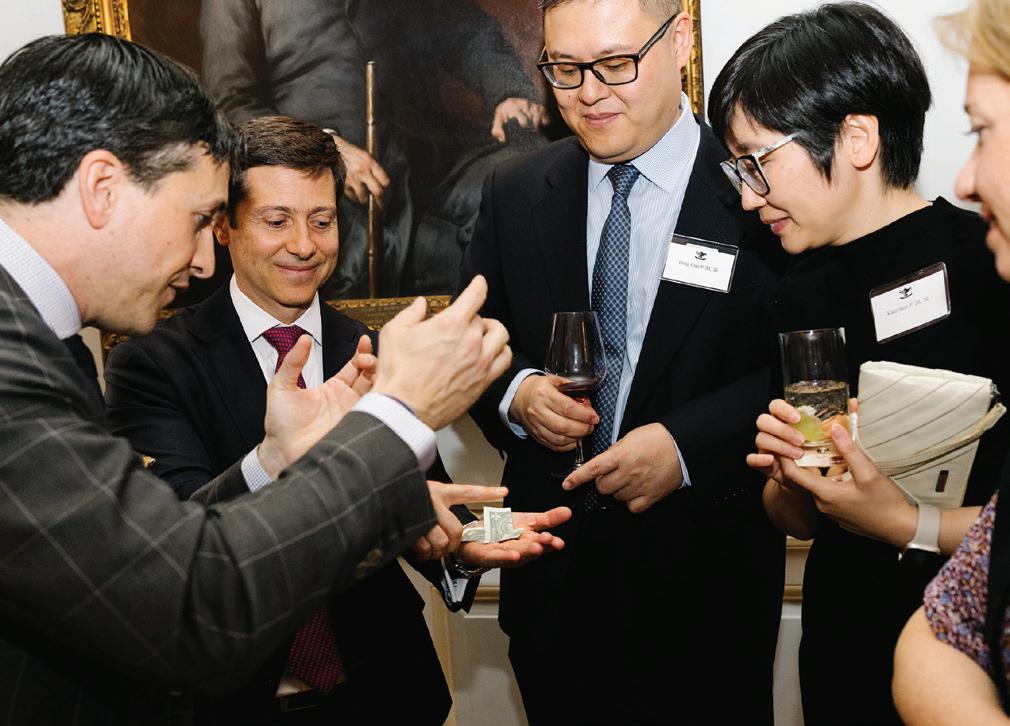
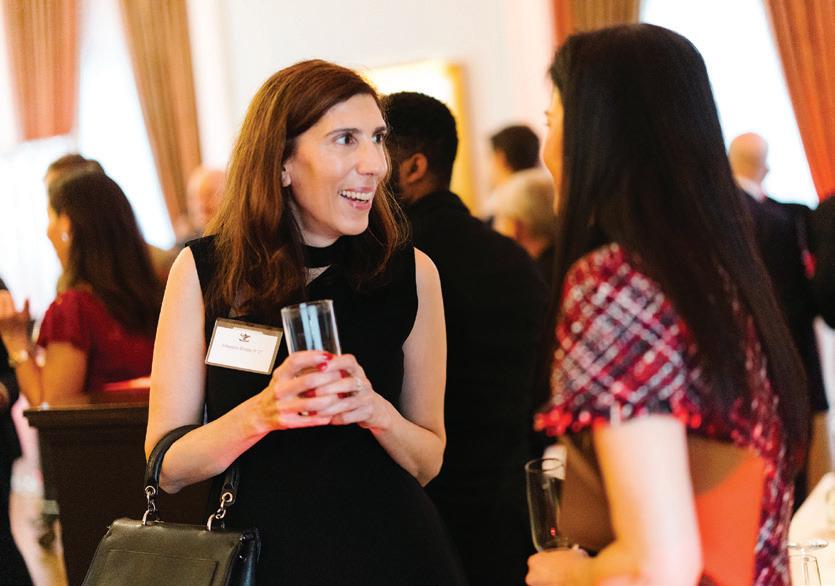
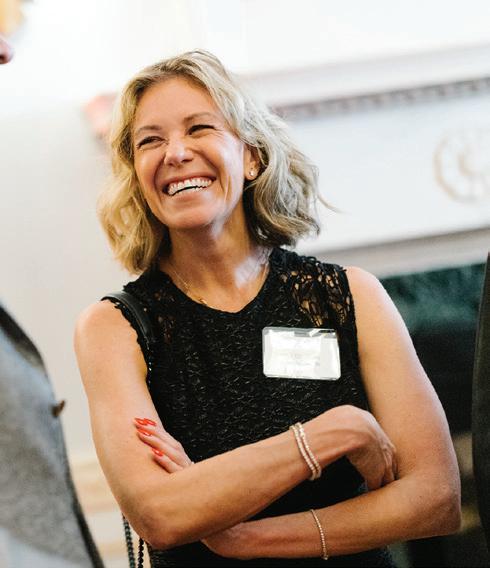
A record-setting baseball season anchors a year filled with growth, grytte, and great performances.
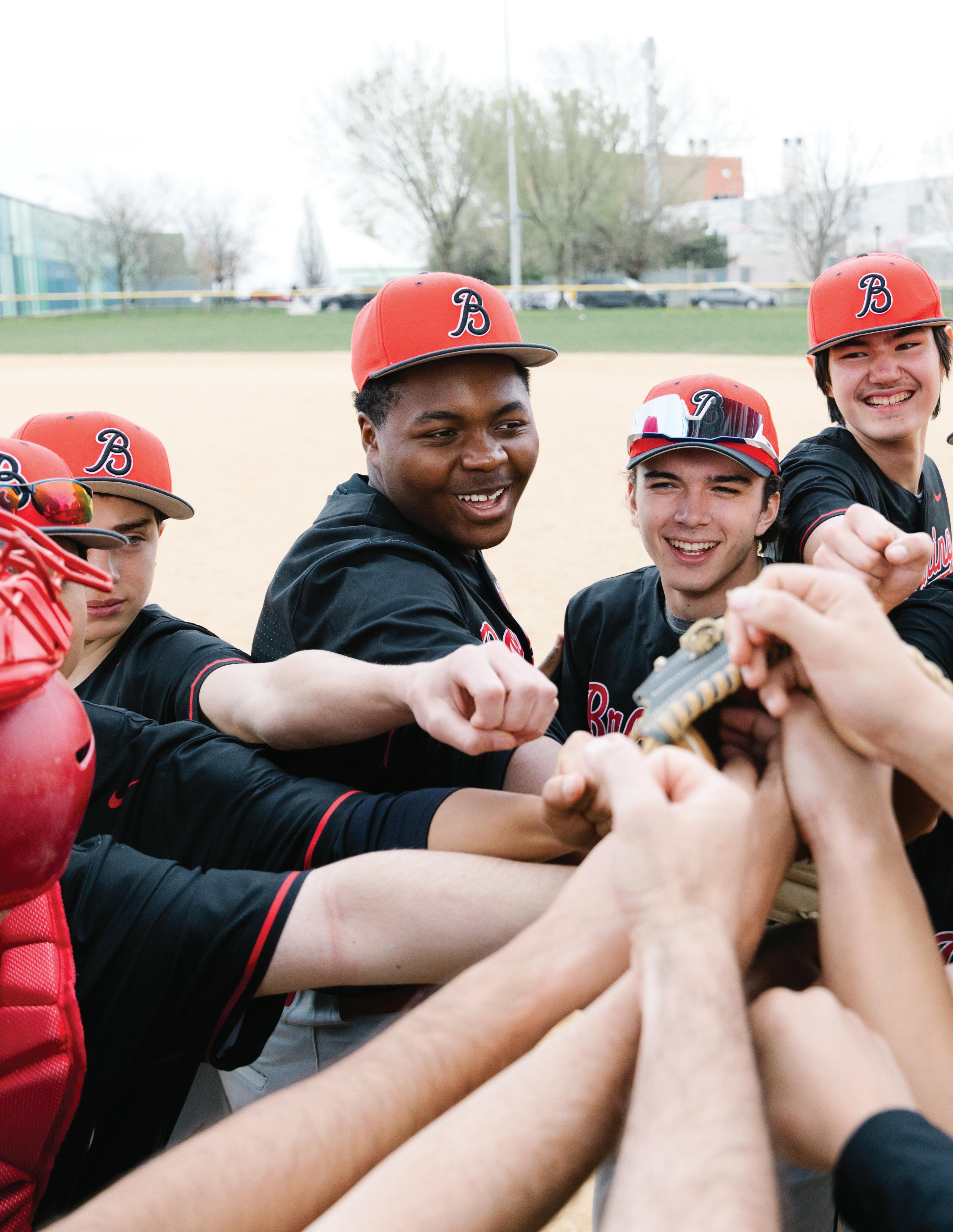
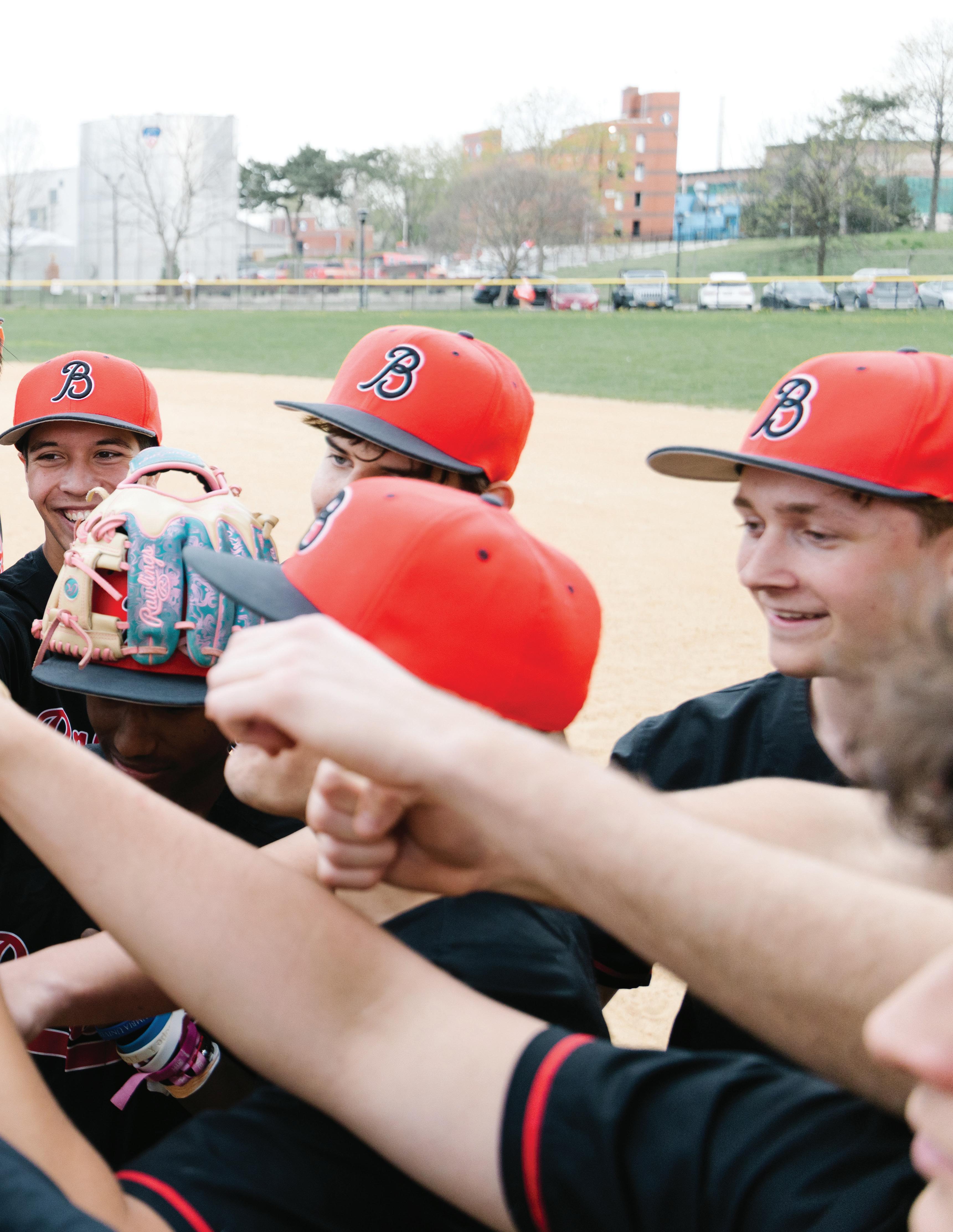
By
This winter season brought some standout moments!
The varsity basketball team played their hearts out, making the playoffs and battling hard in a thrilling overtime game against Trevor Day in the New York City Athletic League semifinals. Our 7/8 Red basketball Panthers finished second in the league with an impressive 6–1 record. The varsity squash team had a remarkable
season, going 13–6 overall, and then shining in Philadelphia at the squash nationals, where the boys moved up 10 spots from last year’s finish. The varsity table tennis team excelled, securing second place in the Independent School Table Tennis League, with the exceptional Lonnie Moon ’25 earning a well-deserved two-time unanimous MVP honor.
#PantherPride
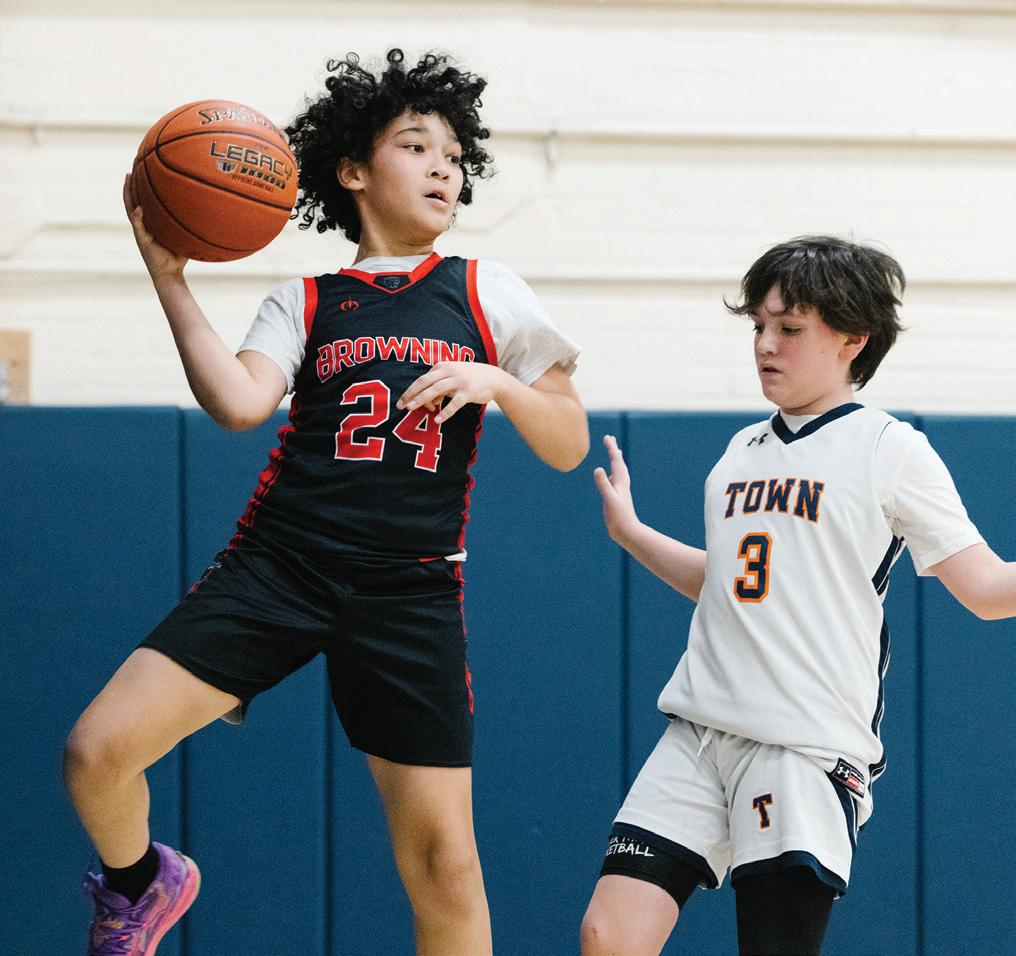
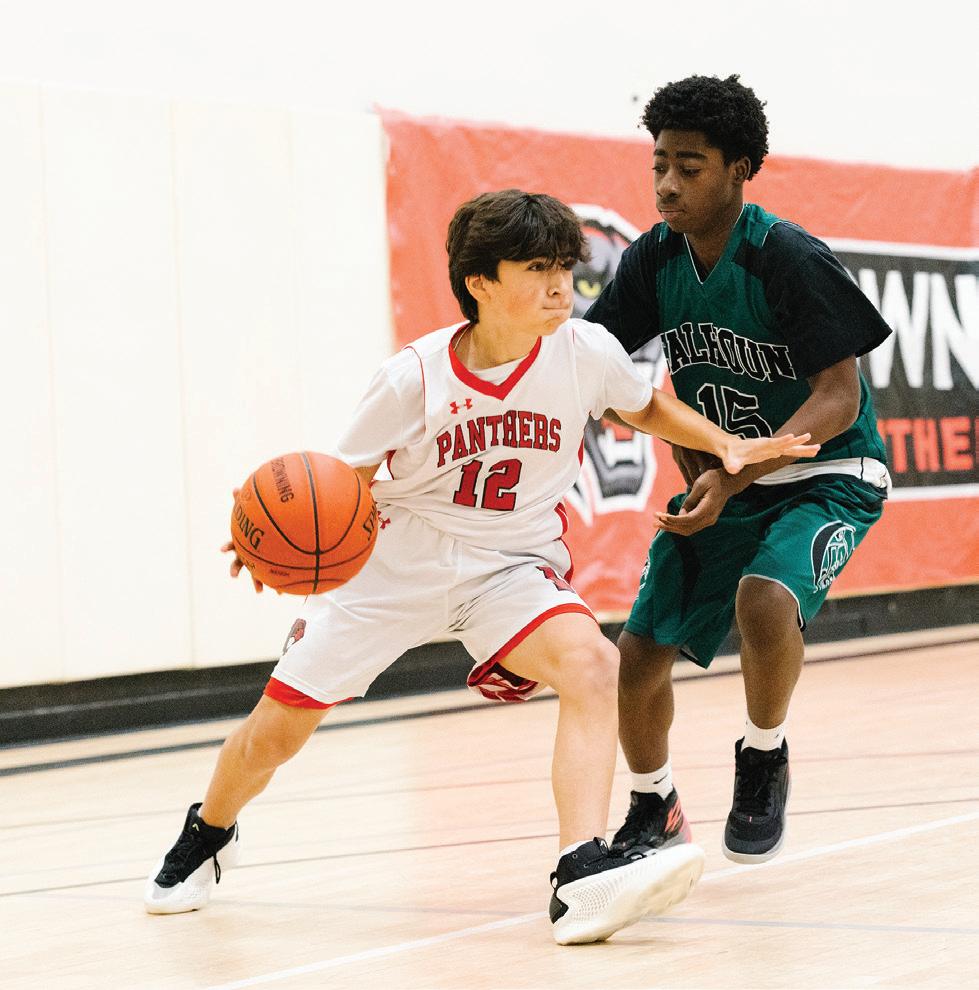

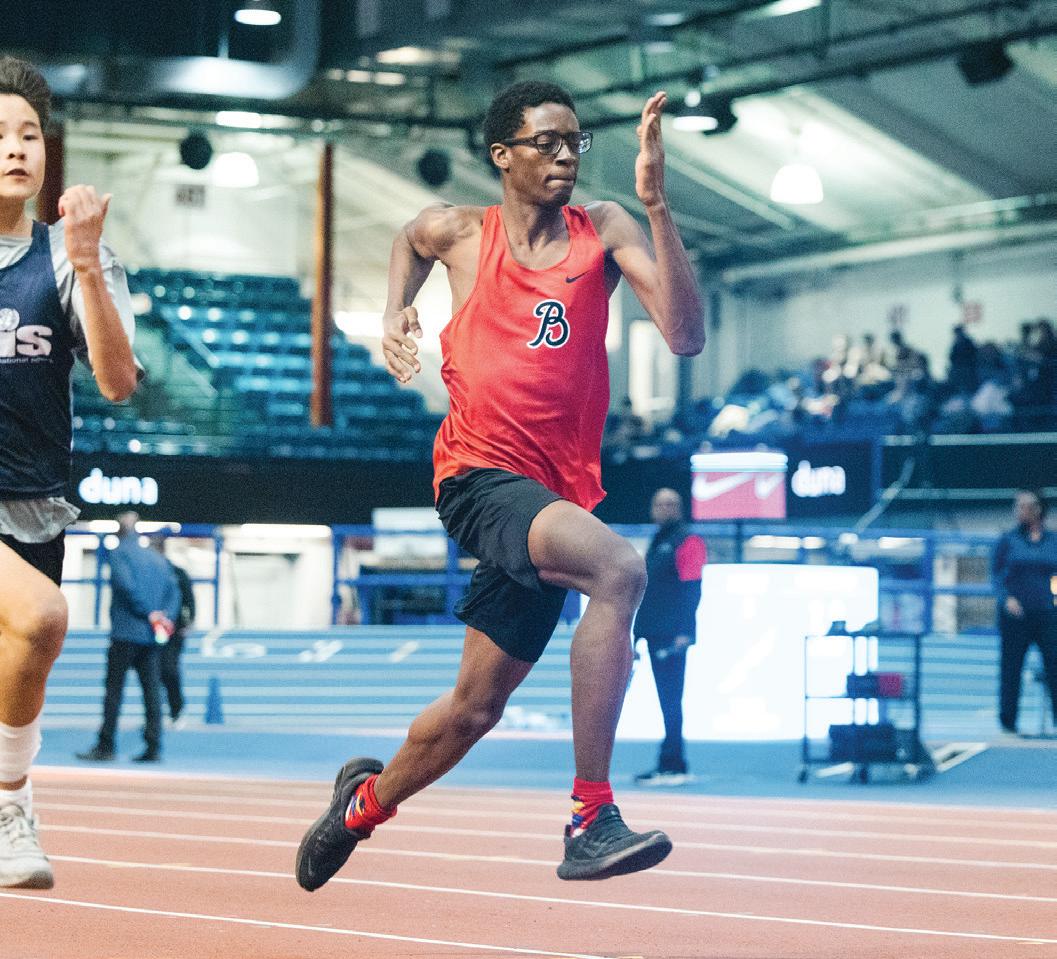
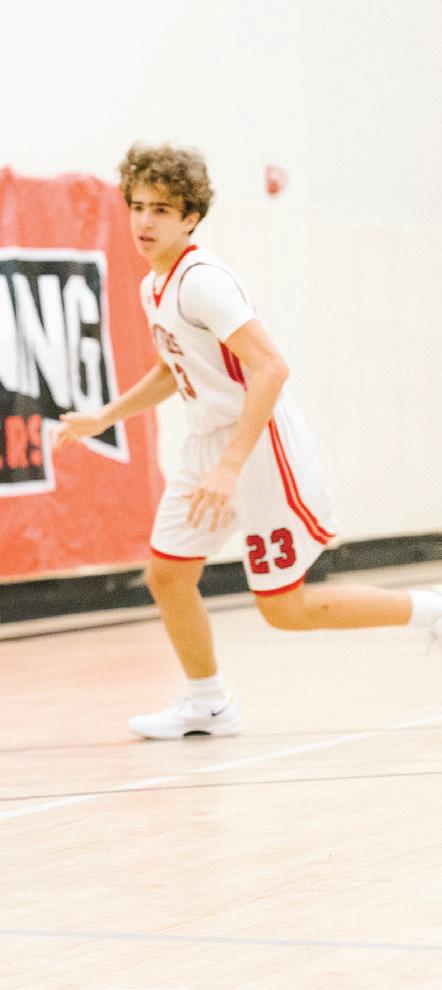

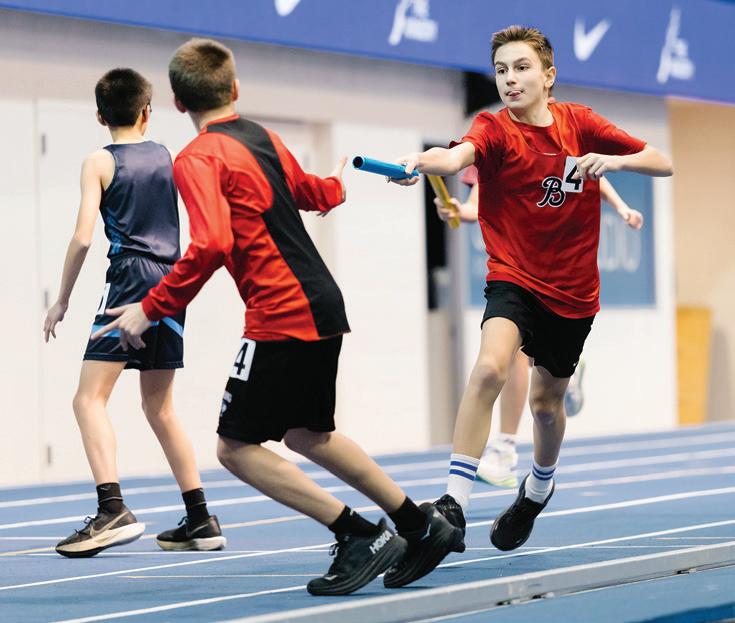
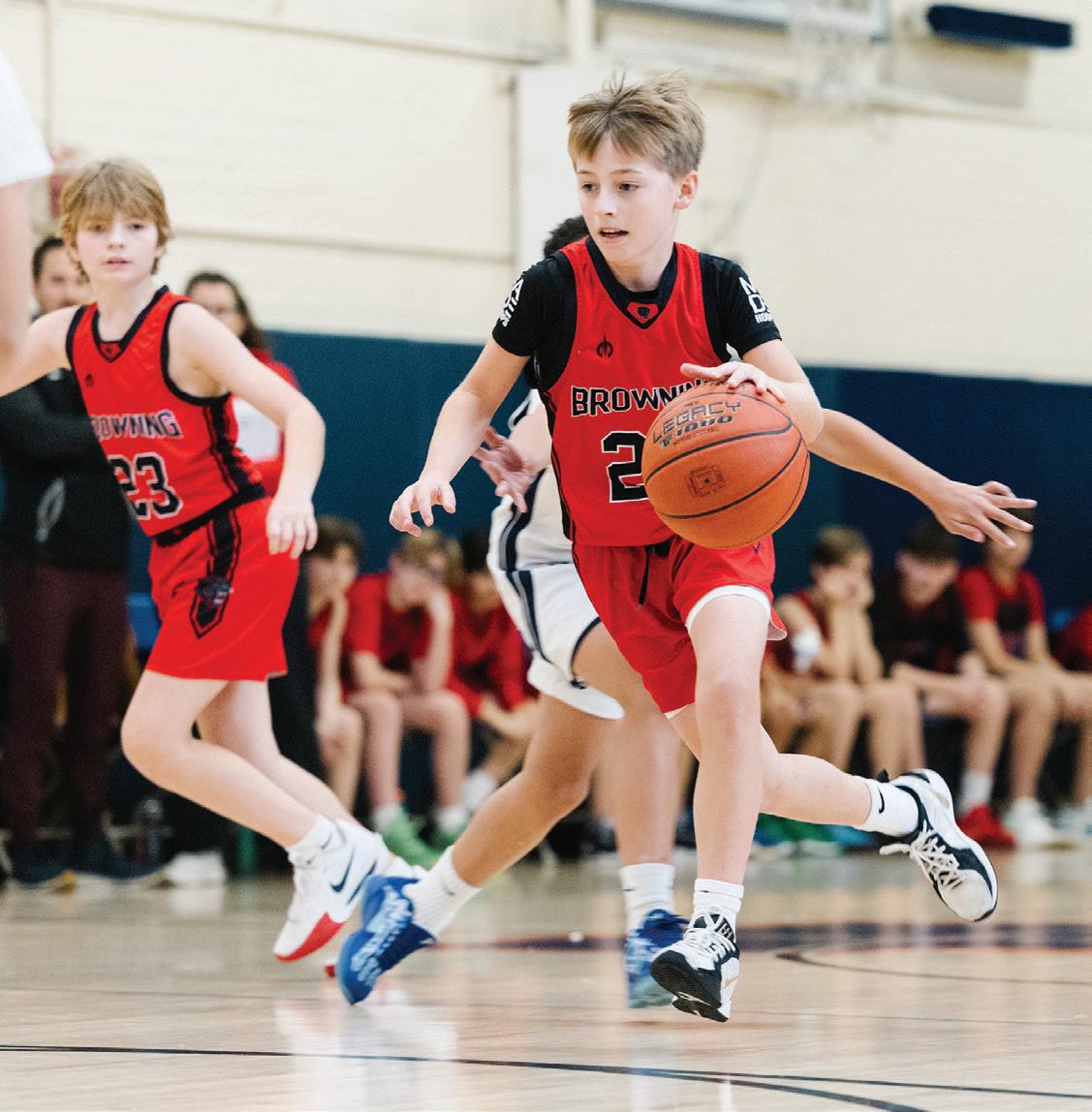
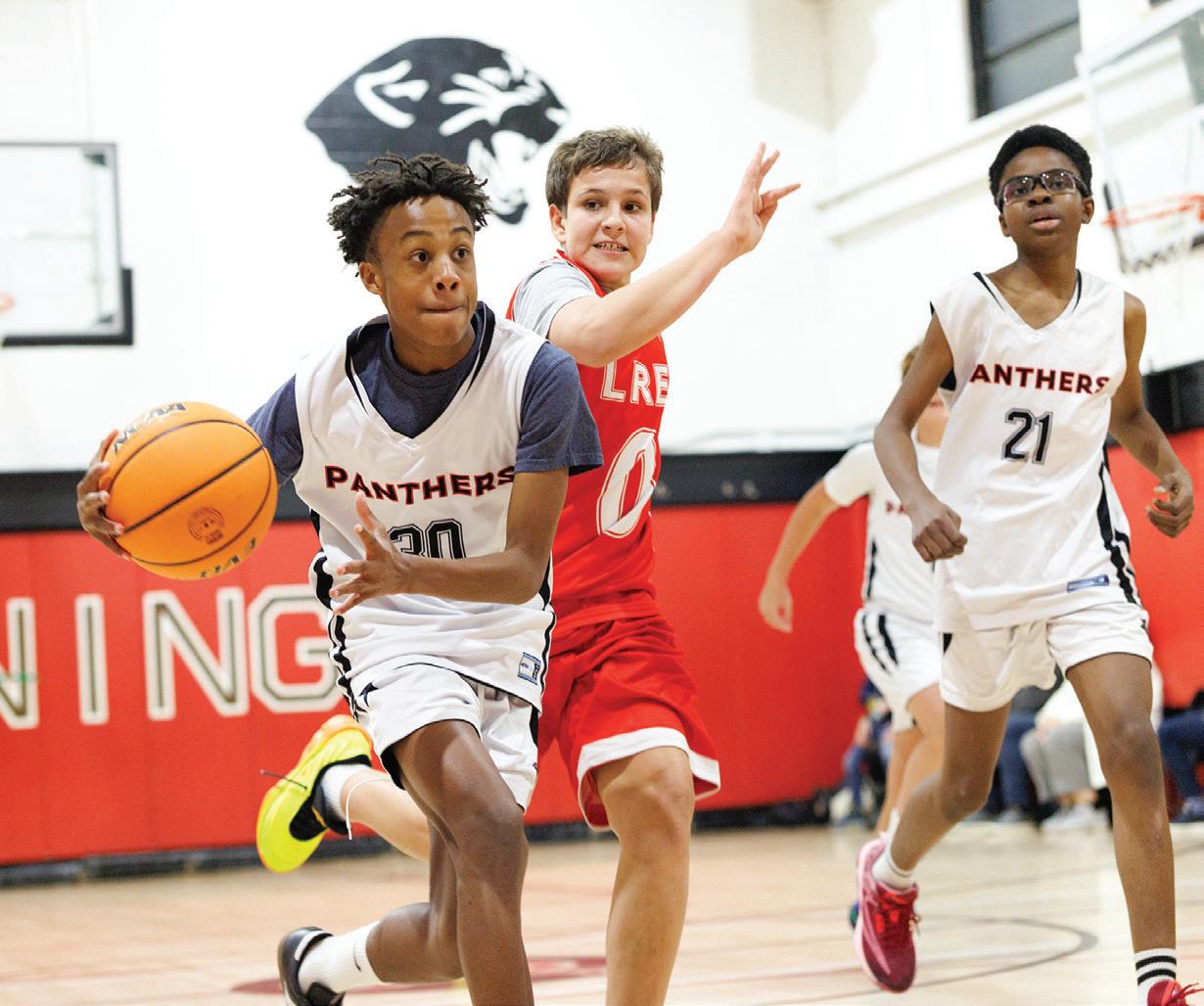

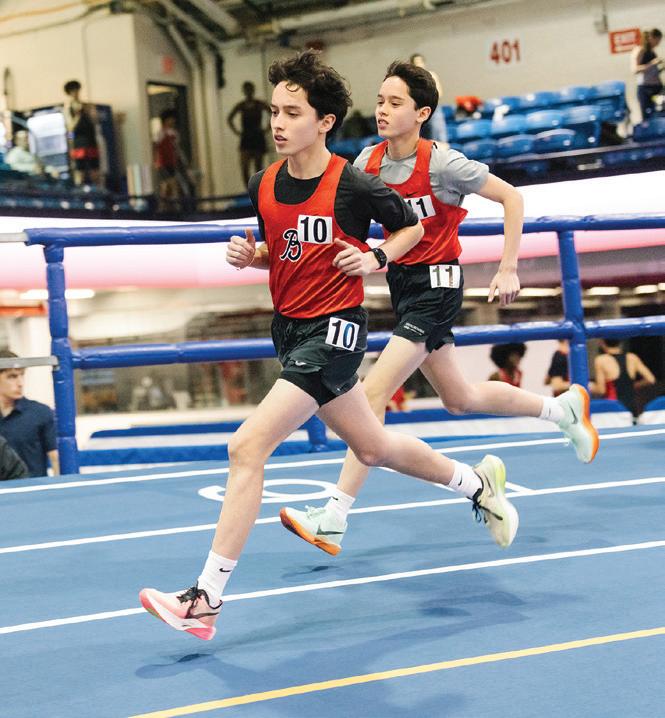
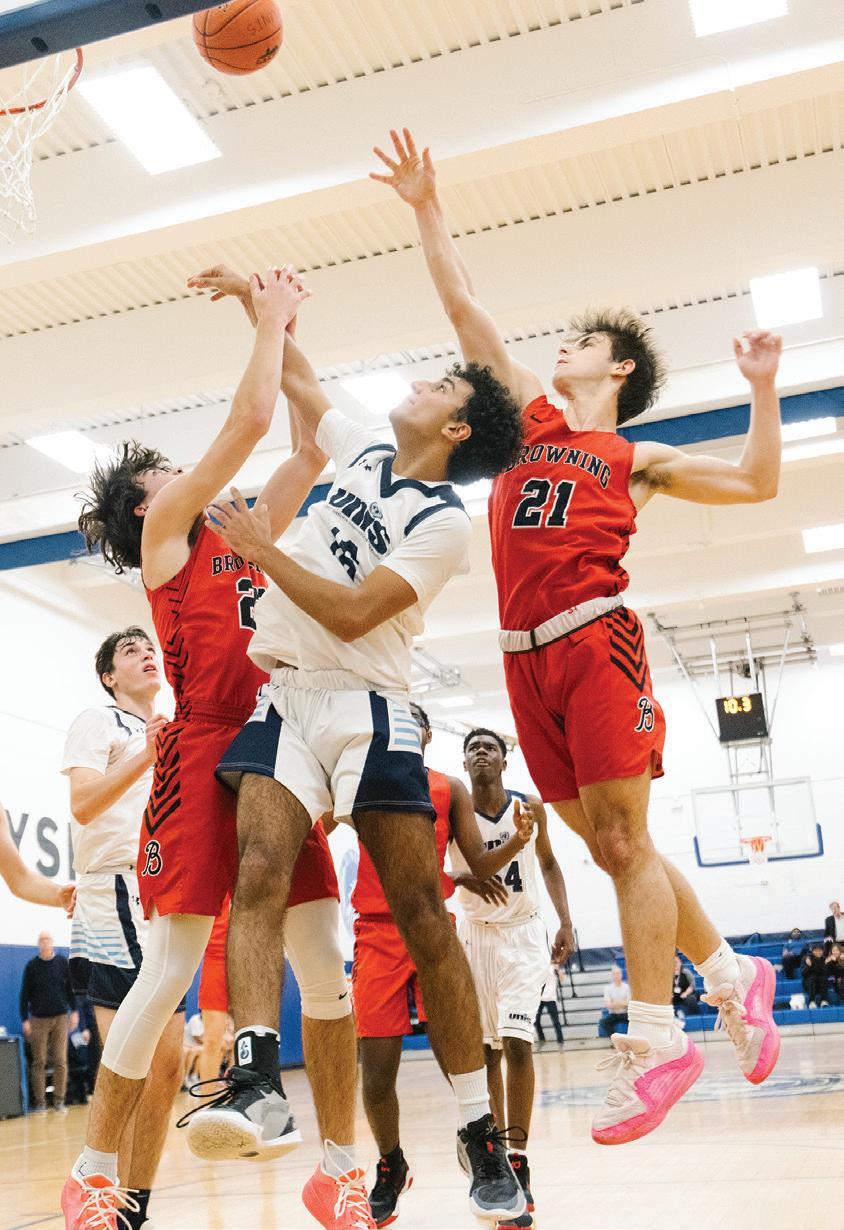
Varsity baseball had a standout season, winning the most games by a Browning team since 1980! The team’s momentum is already building for next year. Varsity golf earned the prestigious Team Sportsmanship Award from the NYCAL coaches and delivered a strong third-place finish in the finals. Varsity track, varsity tennis, 7/8 track, and 7/8 baseball all had impressive seasons, showcasing steady
improvement, dedication, and deep rosters that signal a bright future. Across our teams, the athletes demonstrated determination, teamwork, and school spirit. A huge thank-you to all our Panthers and their dedicated coaches for their incredible efforts and commitment throughout the spring season. Browning athletics is stronger than ever!
#PantherPride
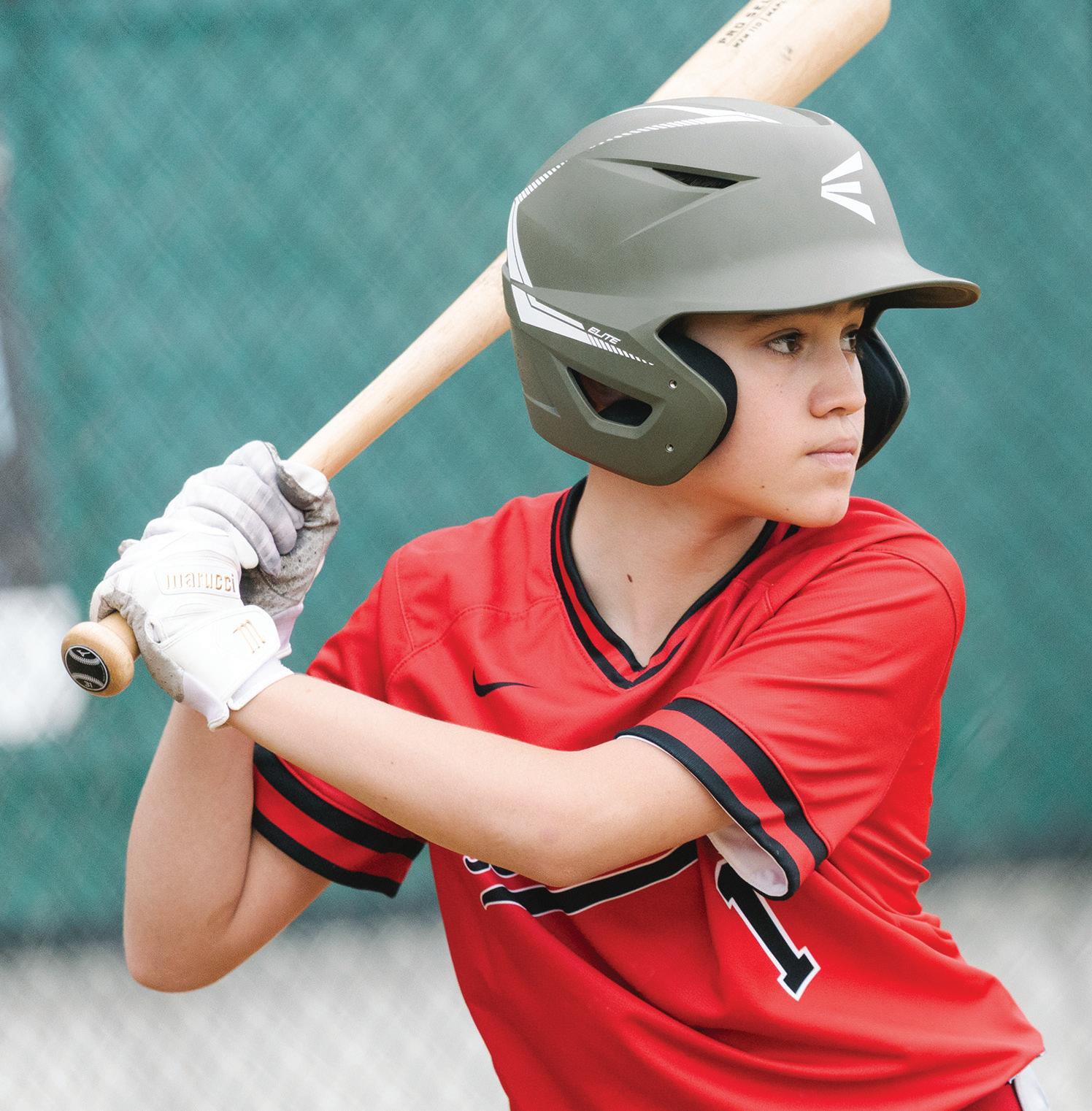


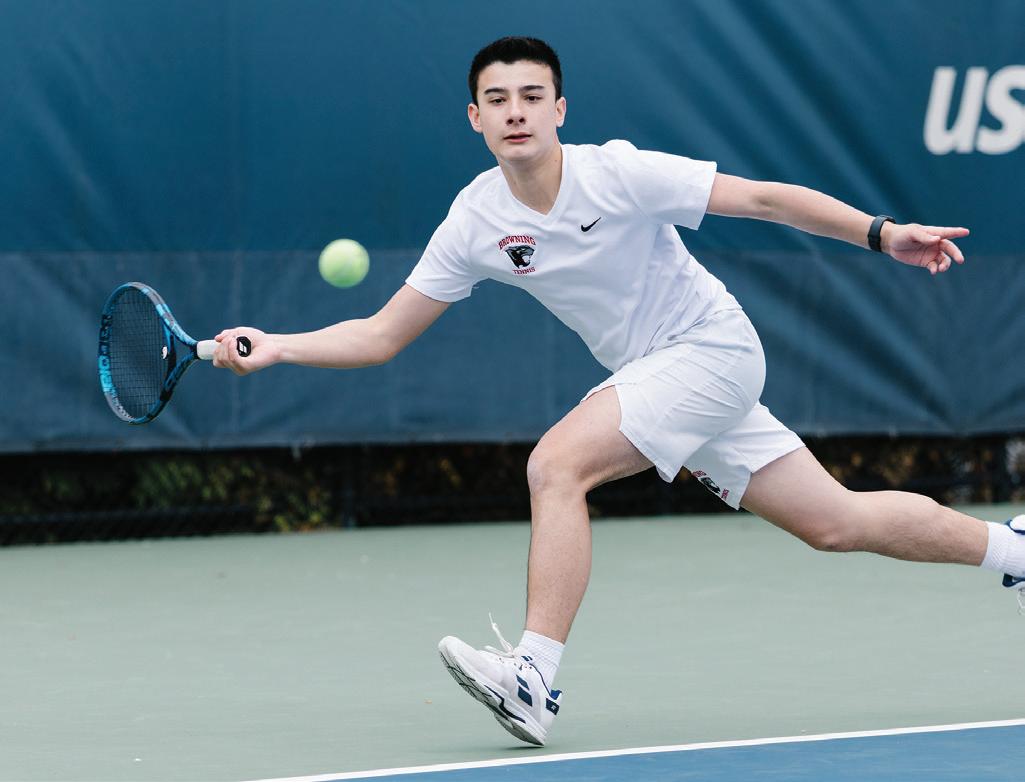


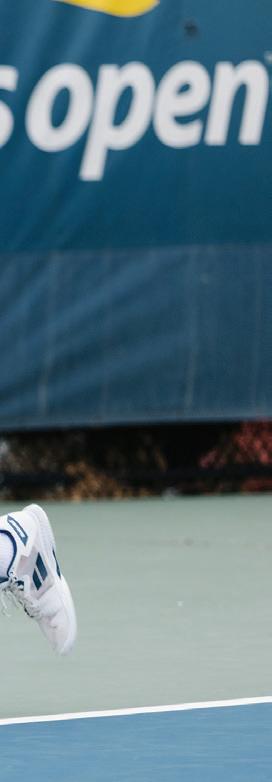

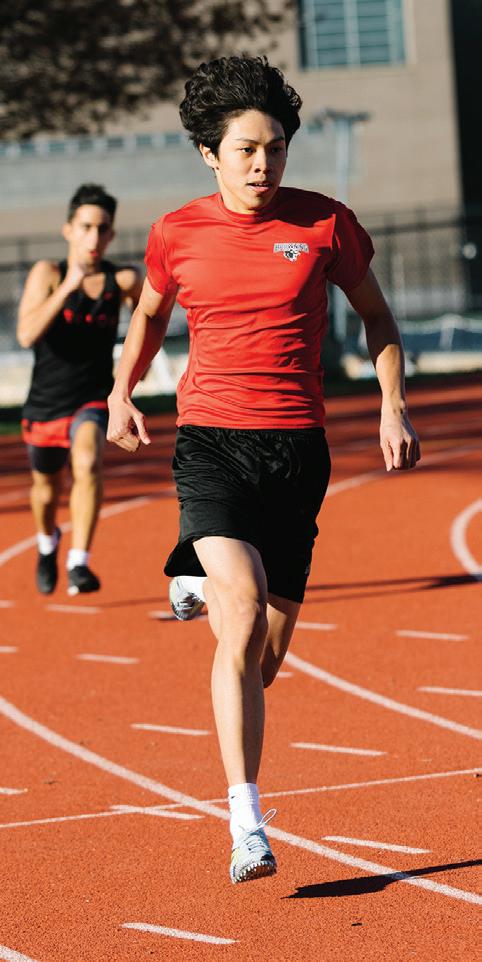
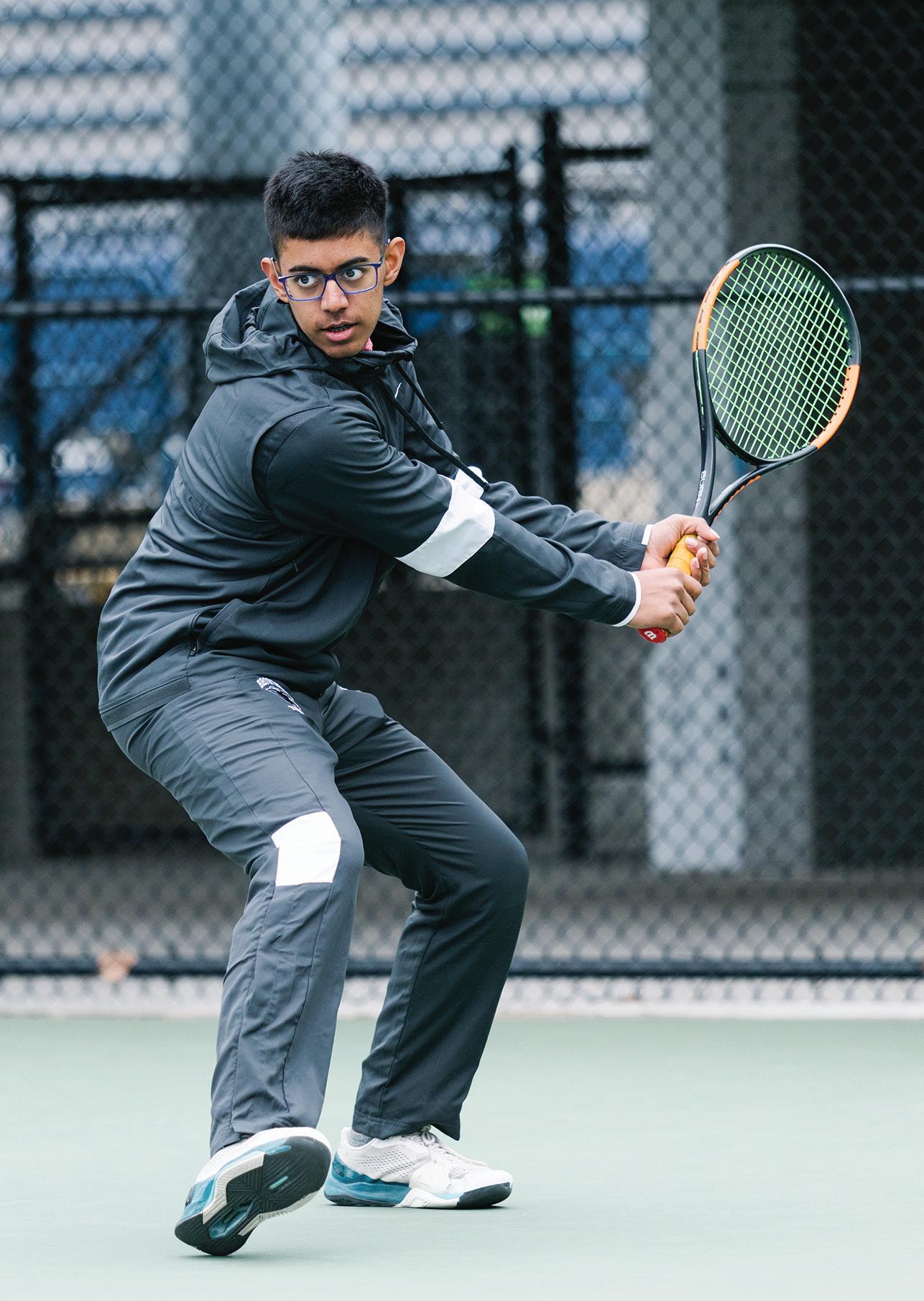
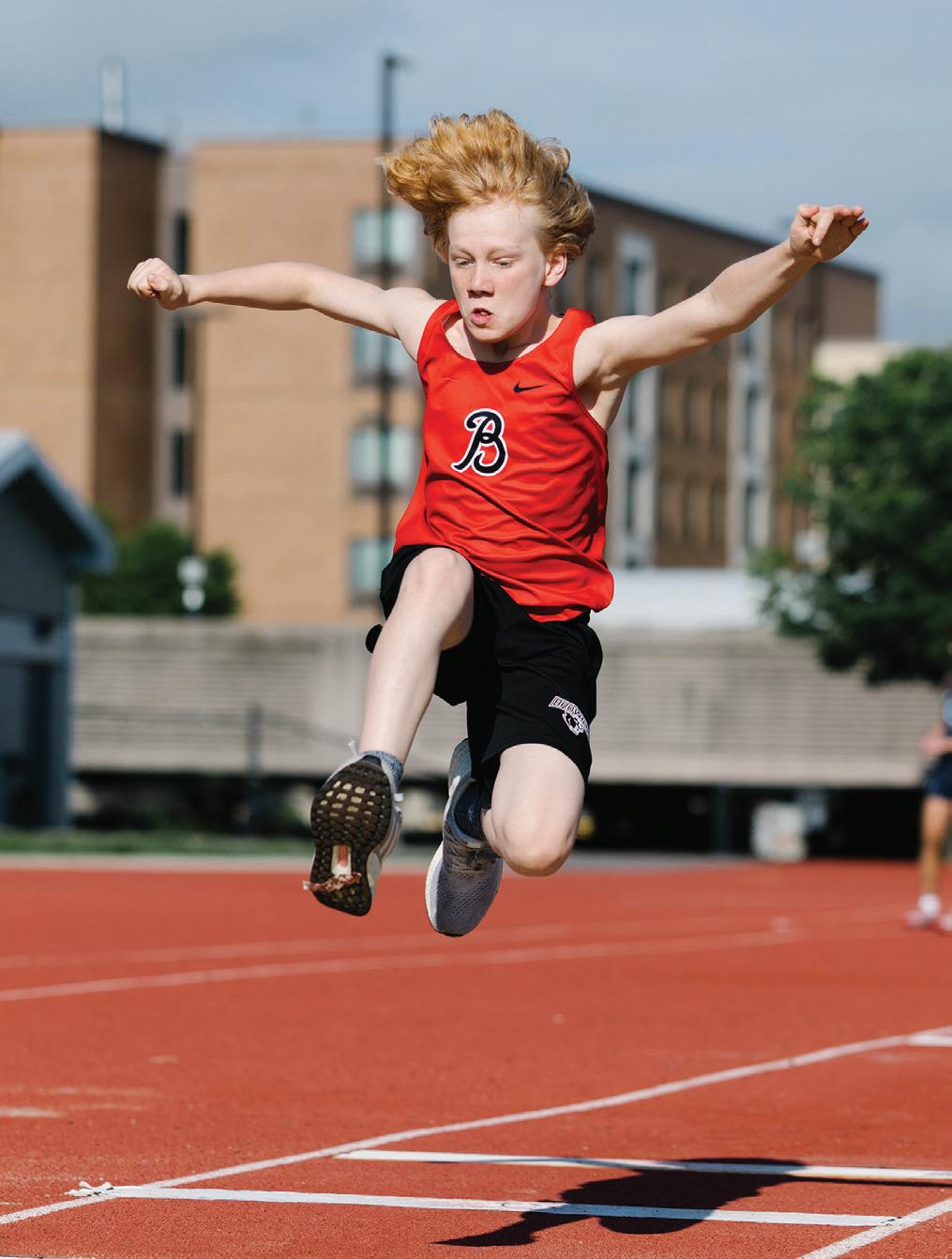
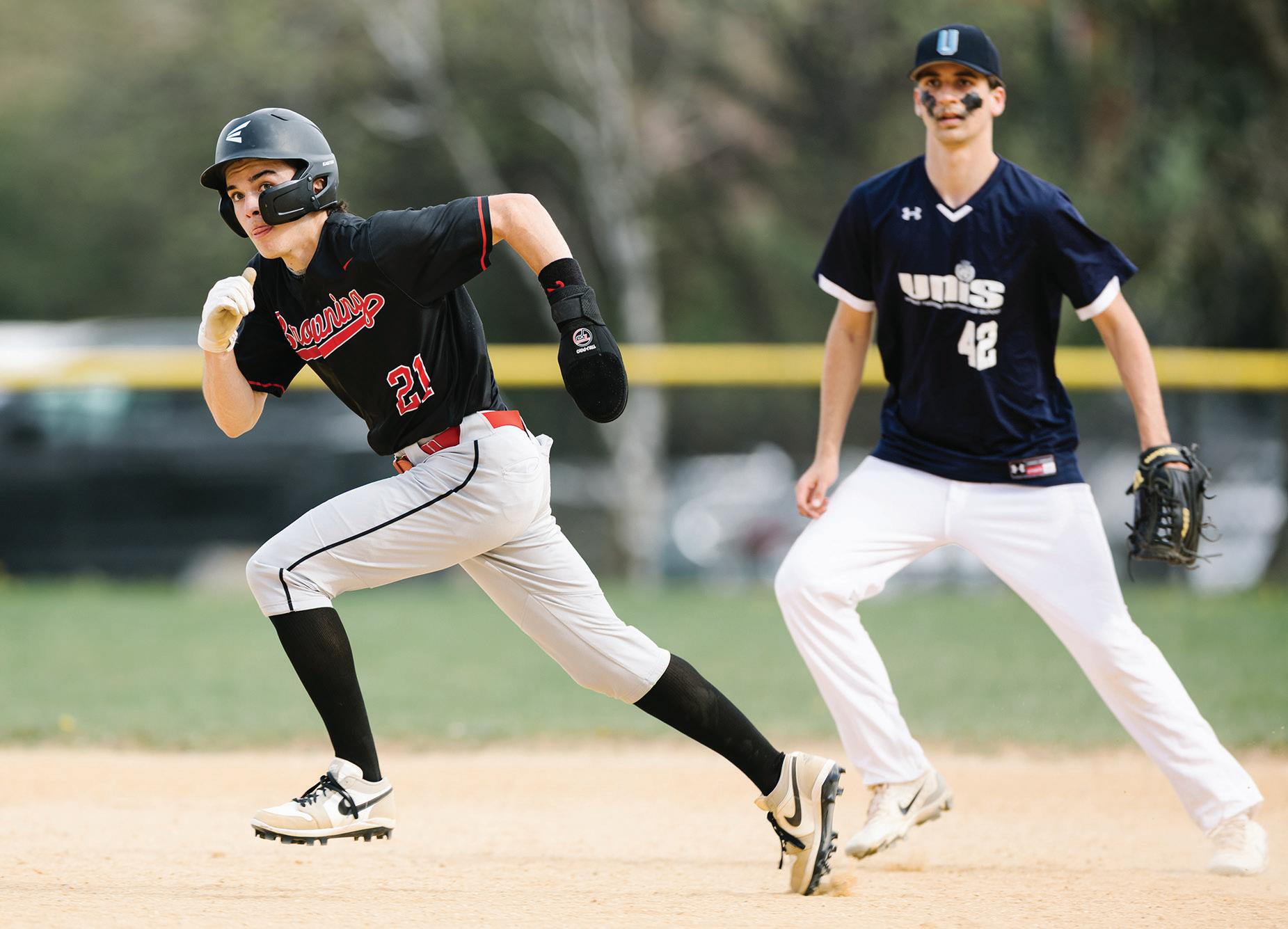
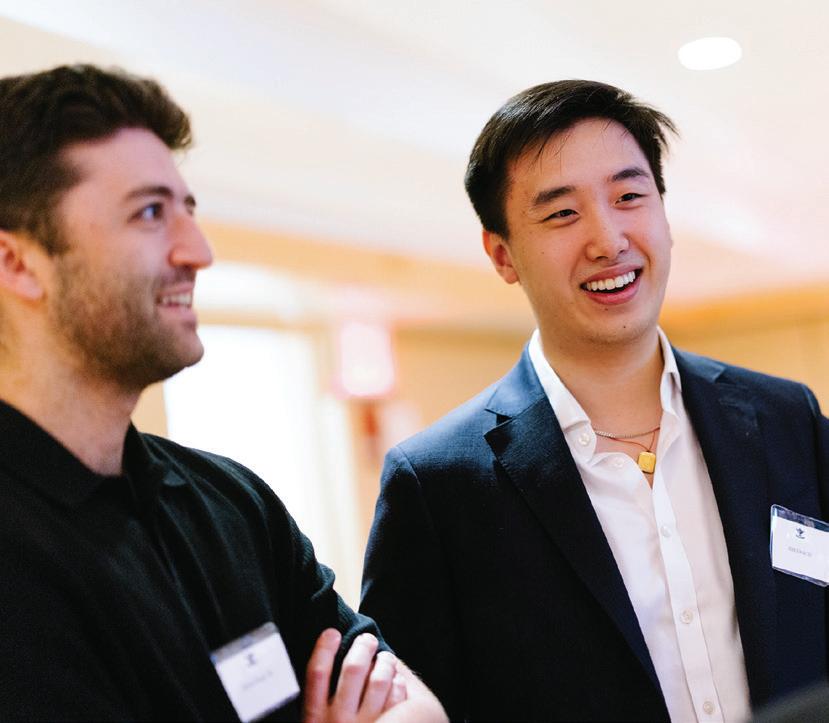
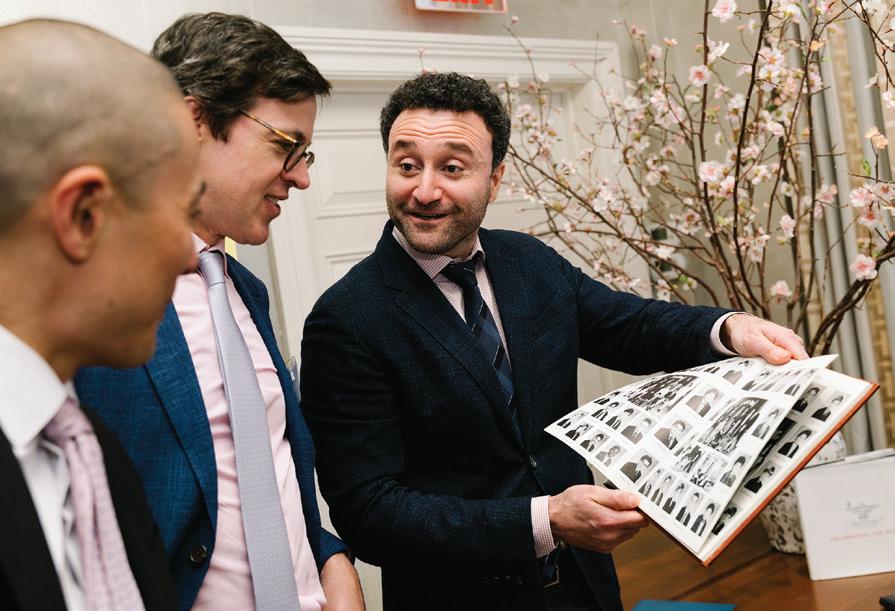


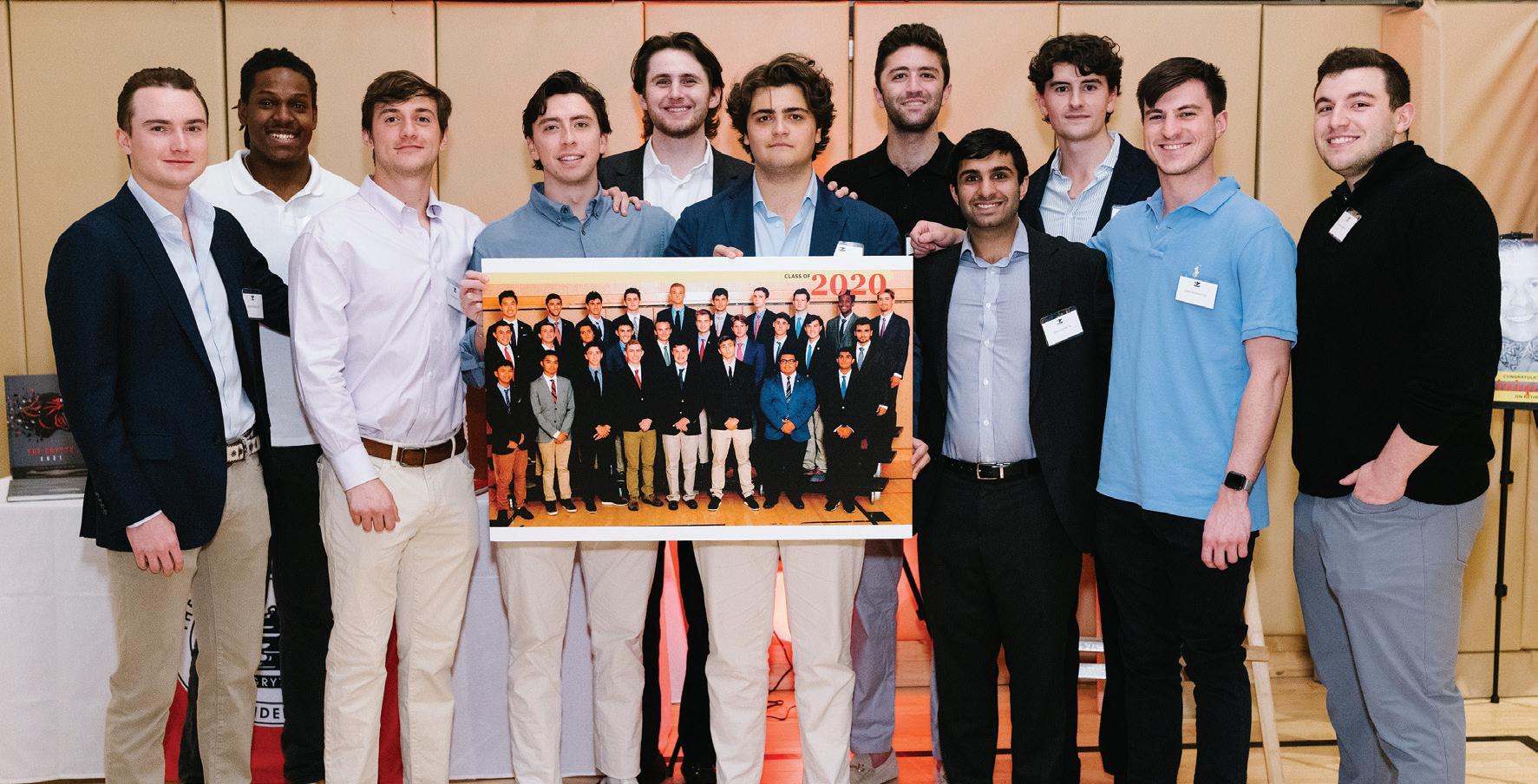
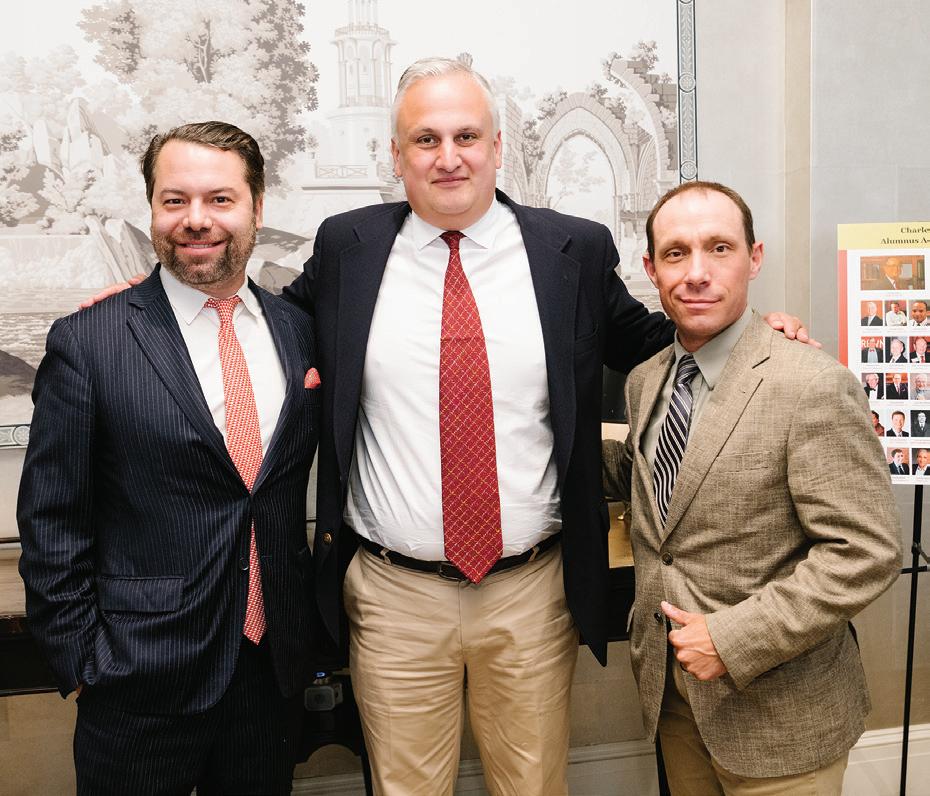
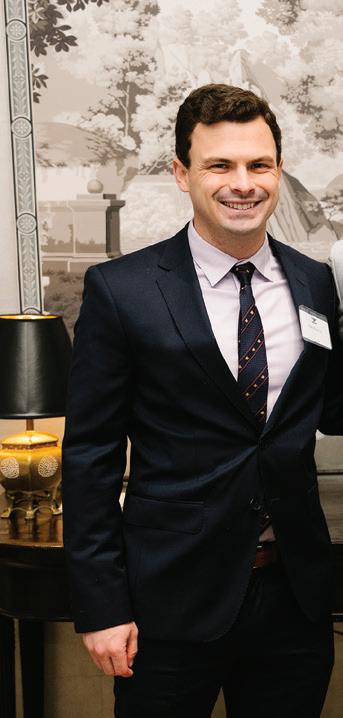
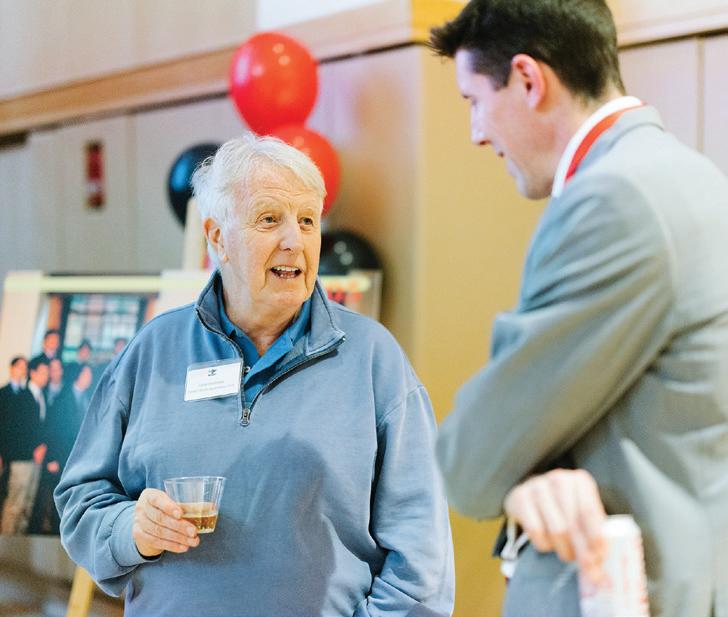
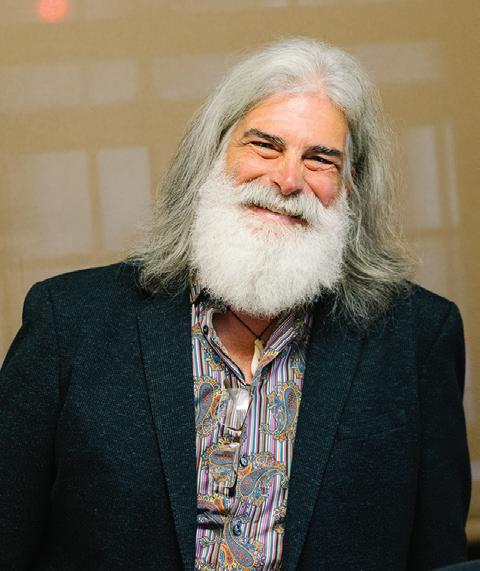
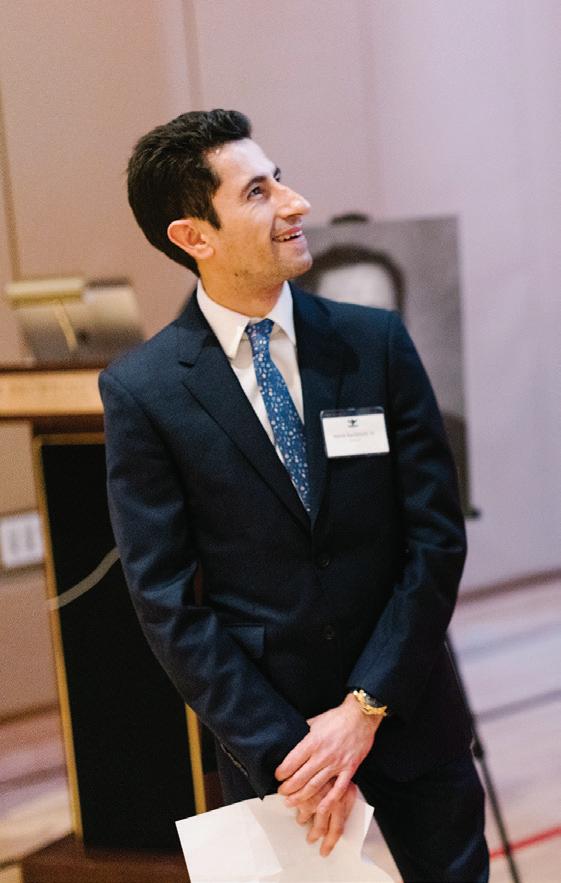
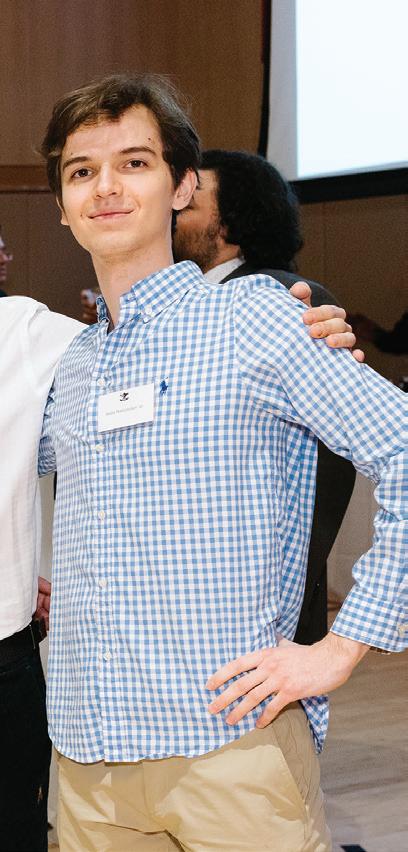
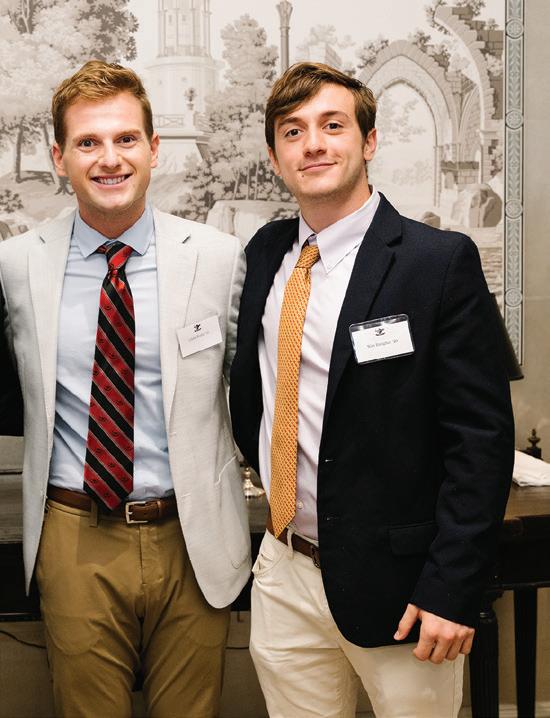


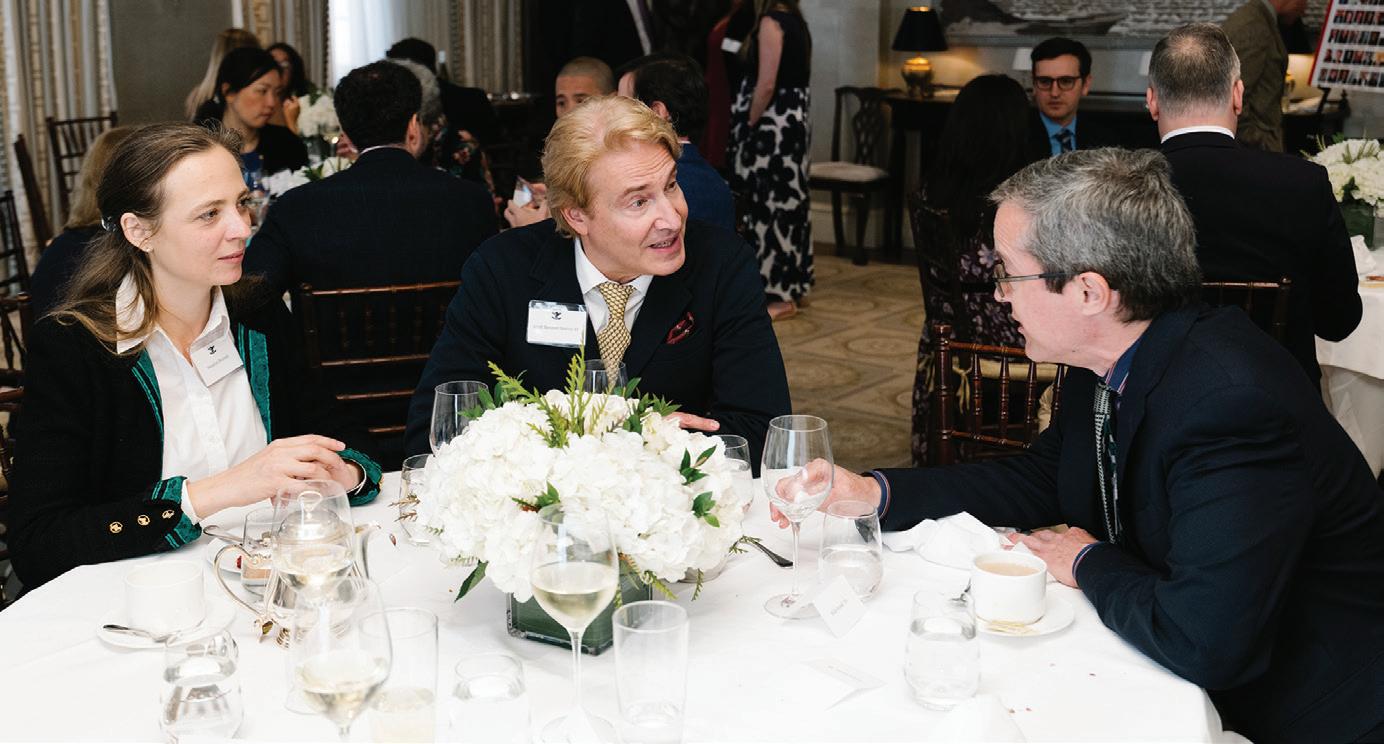
In April, alumni from the Classes of 1957 through 2023 returned to Browning for Alumni Reunion. The day began with a tour of the East 62nd Street building and a luncheon at the Links Club, where Jerry Pi ’95 received the 2025 Alumnus Achievement Award and the Class of 2000 was honored for its 25th reunion. Guests also toured the new Upper School building (see page 16).
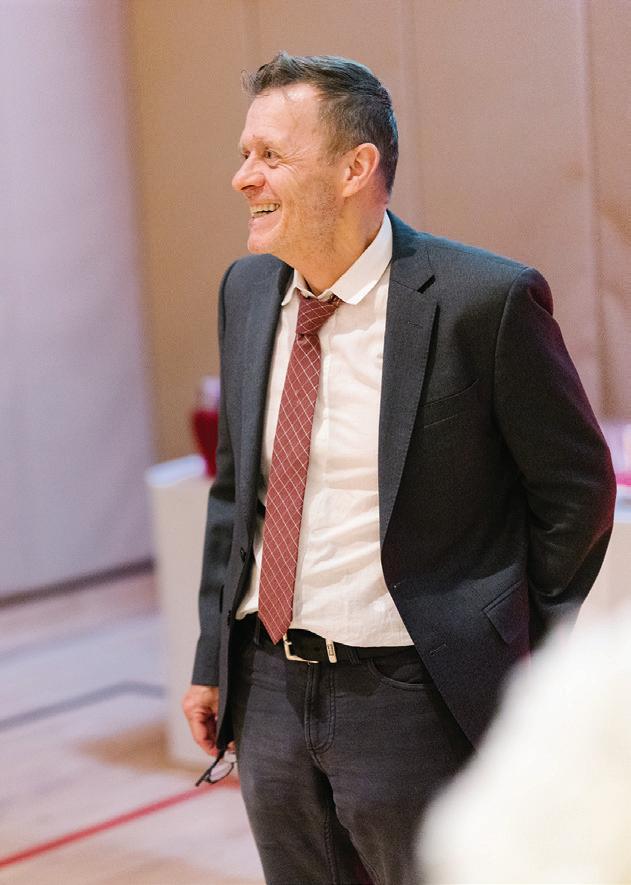
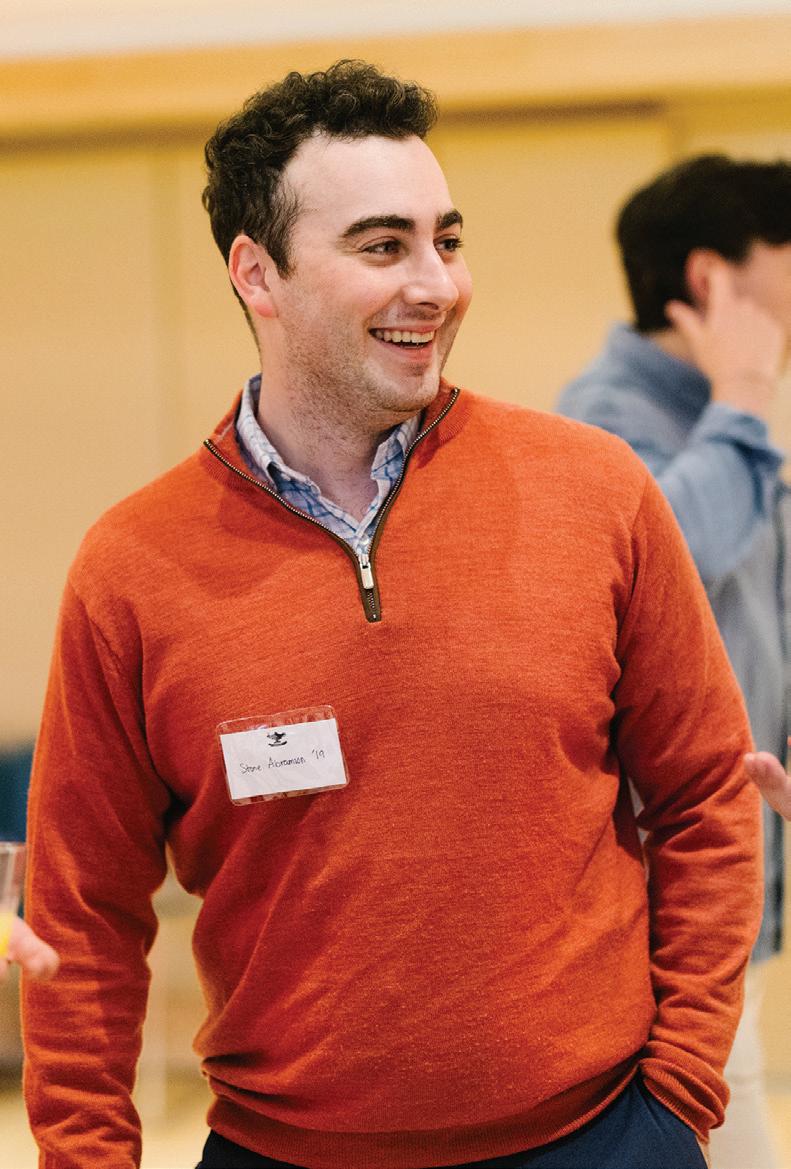
The celebration concluded with a reception in the Kurani Gym, toasting Dominique Bernard’s retirement and recognizing milestone reunion classes, with an impressive turnout from the Class of 2020.
View more photographs of the event at browning.edu/alumninews/reunion2025.
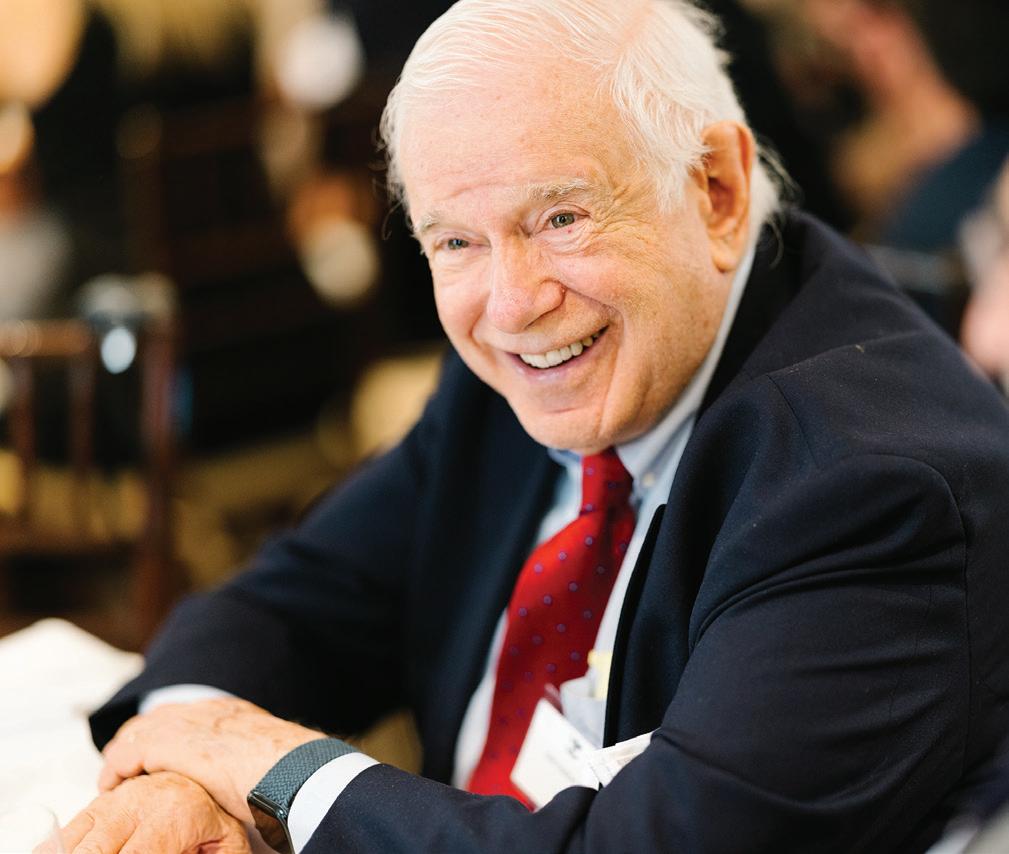
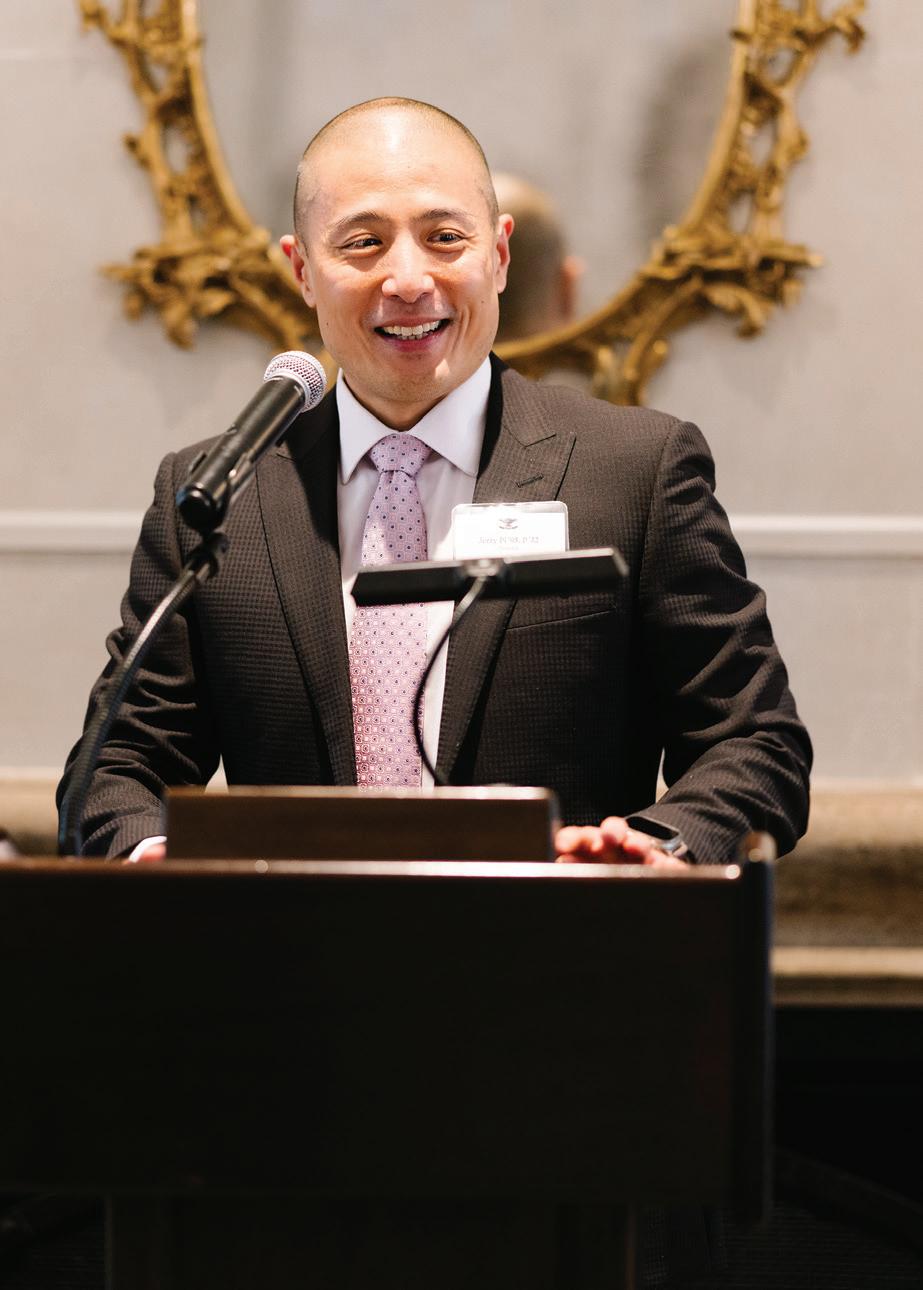
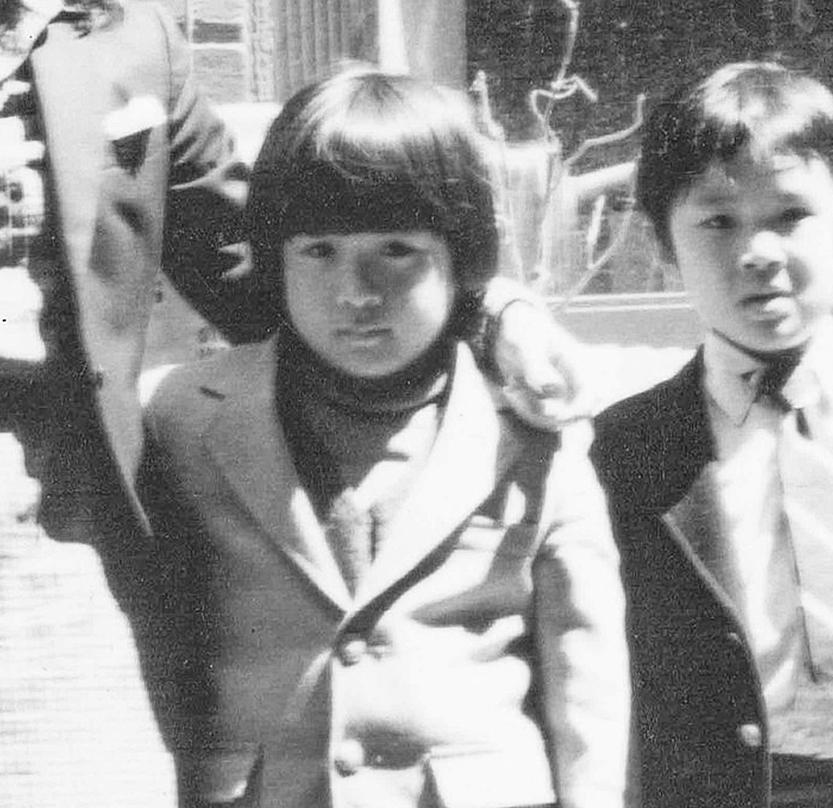
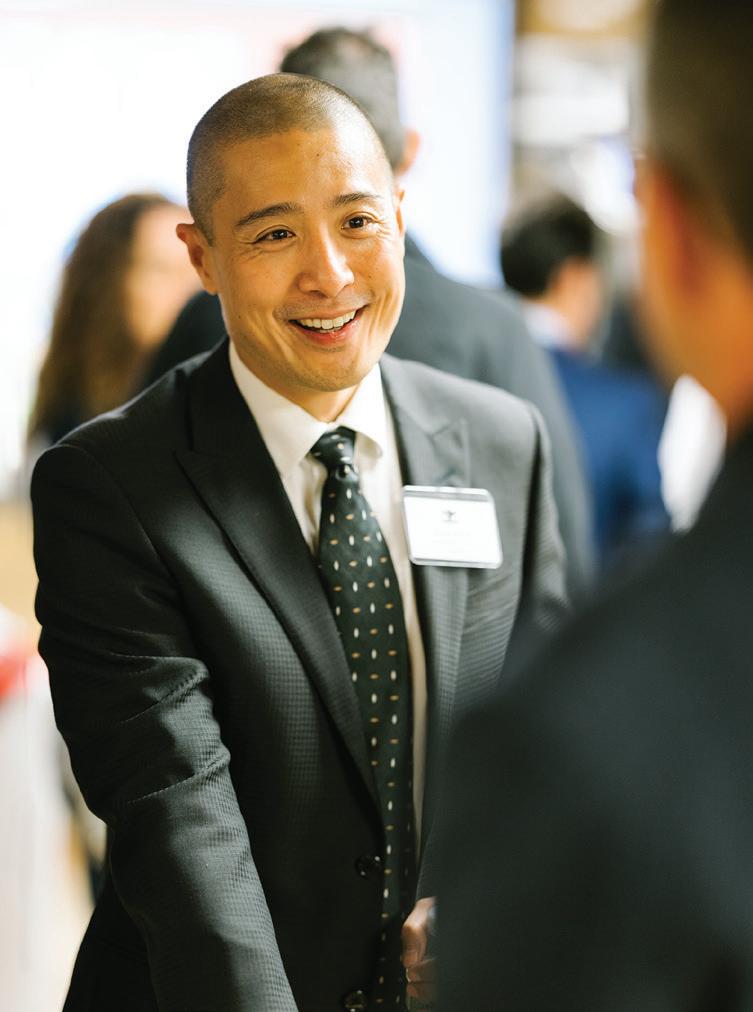
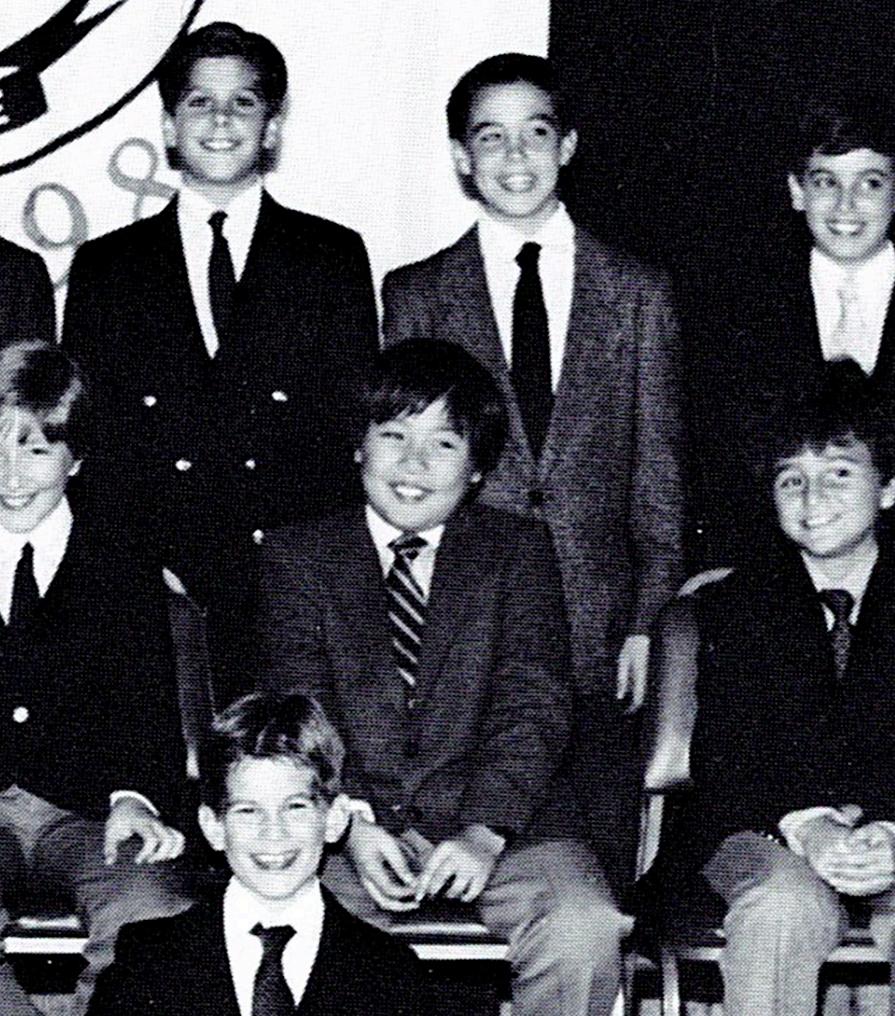
The Charles W. Cook ’38 Alumnus Achievement Award, established in 1991 in honor of Browning’s fourth head of school, is presented to an alumnus or alumni displaying the finest qualities of citizenship and distinguished achievement, in either the private or public sector. Our 2025 recipient is Jerry Pi ’95, P ’35, founder and chairman of real estate development firm, Pi Capital Partners. He attended the School from 1982 to 1989, has been a member of the Board since 2021, and serves on the Real Estate Committee, where he has been deeply involved in the creation of Browning’s new Upper School building on 64th Street, which opens this fall. In honor of his award, Jerry was asked to reflect on his time at Browning with three questions:
What is your favorite memory from your time as a student?
Gym class was my favorite, offering a break from routine with energy, excitement, and valuable lessons. It provided opportunities to be active, competitive, and build friendships. Beyond fun, it taught me important discipline, perseverance, and the importance of teamwork. Even when challenges arose, such as keeping up with a tough workout or improving a skill, the encouragement from teachers and peers motivated me to push forward.
What excites you most about the Upper School building expansion project?
The Upper School expansion project is a culmination of a lifetime of learning. In a way, everything Browning taught me as a child, I have applied in developing the new Upper School. Real estate development is a highly social industry based upon personal relationships. The coordination of different professionals, trades, procedures, government entities, and companies to build the new building is quite expansive.
What values from Browning have helped shape the rest of your life?
Our school revolves around the core values of honesty, dignity, curiosity, and purpose. All four of these pillars are not only academic values but life values. I try to live my life as honestly as possible and reflect on my decisions and thoughts every day. In addition, treating others with empathy and dignity is incredibly important for me. We live in the world’s most diverse city, with people from varied socioeconomic, cultural, and ethnic backgrounds. I find that as I get older, I become increasingly more mindful in exploring our world, political relationships, and the future.
George Liebmann ’57 released his latest book, The Age of Biden, in January. This collection of over 100 op-eds and letters, written throughout the Biden administration, offering insightful analysis on pivotal public affairs of the era.
Chauncey Johnstone ’59 (right) catches up with Luigi Chinetti ’60 in Palm Beach, FL. These days, Chauncey happily splits his time between Wilton, CT, and Manalapan, FL, and enjoys cherished family gatherings with his six grandchildren!
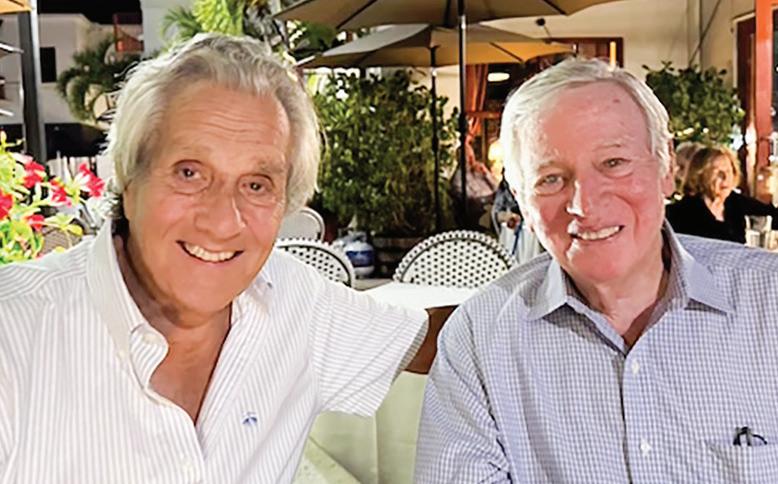
Michael Hutzler ’83 married Susan MontanoLaJoie in January. Browning attendees at the celebration included his brother John Hutzler ’86 and nephews Jay ’16 and Stuart ’19. The happy couple are both retired and living in Merion Station, PA.
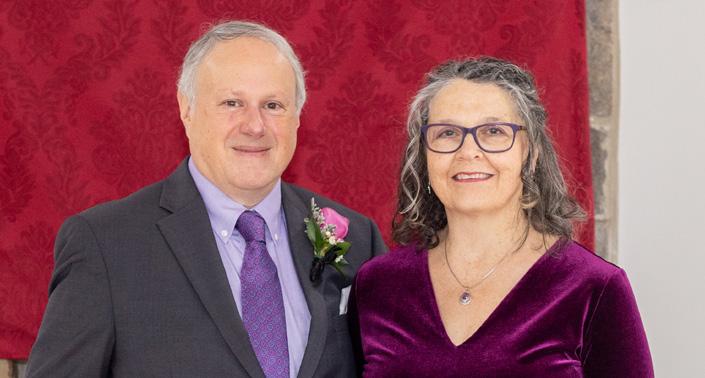
Juan Reyes ’86 joined Ice Miller as a partner in January after serving as a partner at Faegre Drinker. As part of Ice Miller’s Real Estate Group, he brings extensive experience in real estate development, construction, transportation, and project financing.
Chris McLeod ’95 (second from right) shared his journey with stuttering on Fox 5 DC in April, highlighting his advocacy through the National Stuttering Association and his role as an inspiring voice for others, especially those from diverse backgrounds.

Ross Thompson ’04 visited last fall and caught up with Director of Athletics Andrew West ’92. He was featured in Forbes in April for his work as CEO of XOR, a high-security evacuation firm.
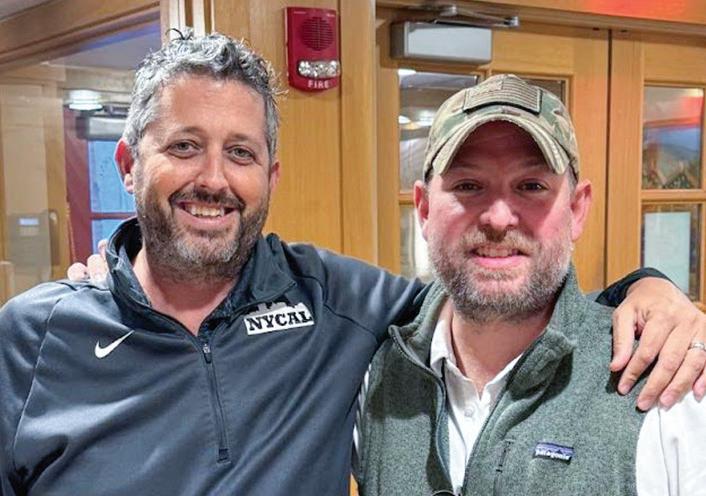
Roberto Henriquez ’04 and his wife, Vanessa, welcomed their son, David G. Henriquez Cermeño, in February in Mexico City.

We Asked… You Answered!
Last fall, Browning asked its alumni how they feel about their connection to the School and what they want going forward. From praise for leadership to calls for more diverse events, this report highlights ways to build a stronger alumni community.

To review a summary of the 2024 Alumni Engagement Survey, visit browning.edu/alumni-report or scan the QR code above.
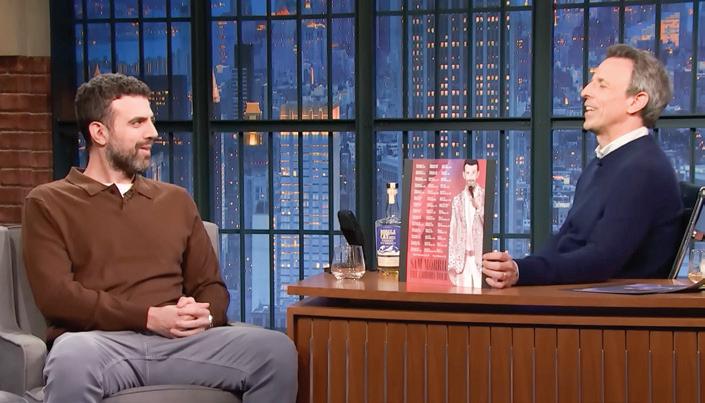
Kenton Kilmer ’07 and his wife, Yan, are thrilled for their son, William, to join Browning as a member of the Class of 2033, marking the third generation of Kilmer gentlemen to attend Browning.
Maxwell Kagan ’08 is a second-year fellow at the American Film Institute, pursuing an MFA in Producing. He is currently filming his thesis project, a narrative short film about the origins of corporate climate denialism. The script is a finalist for the Roy W. Dean Grant and an Alfred P. Sloan grant, which both support independent filmmaking.
H. Harrison Fields ’11 married Bar Lagziel in May in New York City.
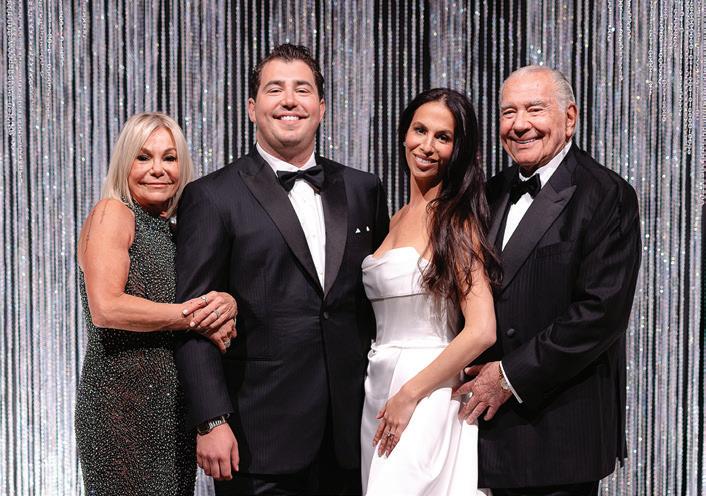
Terrel Phelps ’11 launched Block Party, a coffee-table book co-created with Jeremy Liebman. The book combines Jeremy’s street photography with Terrel’s nightlife film images, highlighting striking dayto-night parallels.

Dylan Smith ’11 married Sarah Heppell last summer in Syracuse, NY.
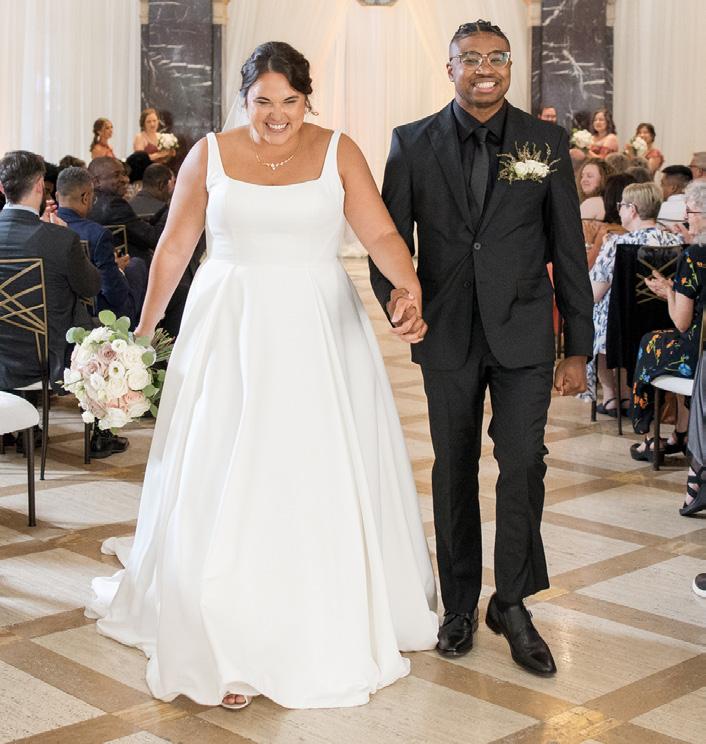
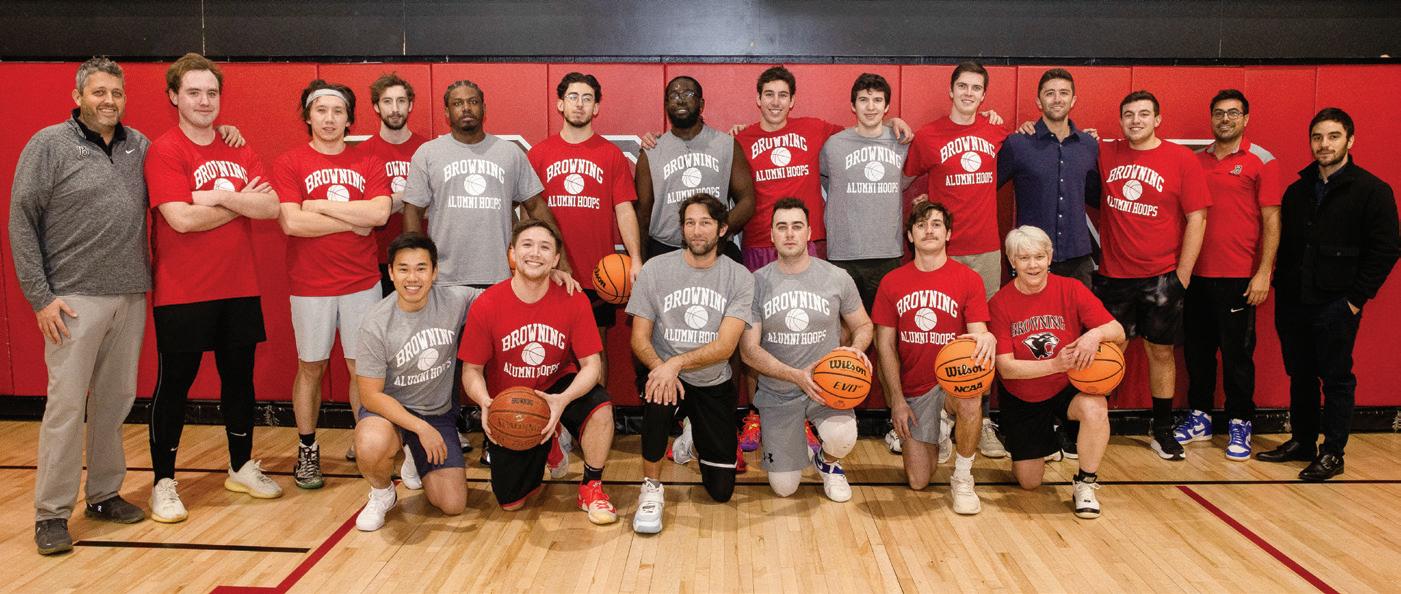
The last Alumni Basketball Game to be hosted at 62nd Street saw alumni from 2003 through 2022 pack the stands as the Even Years battled Odd Years in a thrilling 82–79 finish. The tradition will continue next year in our brand-new gym on 64th Street!
Harrison Messer ’12 married Paige Albert at the Houstonian Hotel in Houston, TX, in January.
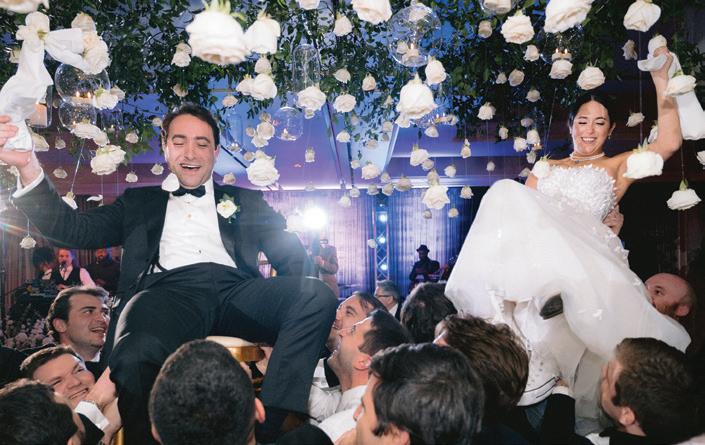
Ben Jacobs ’13 lives in Boulder, CO, with his wife, Lauren. They met at the Colorado State Public Defender’s Office and bonded after Ben recited a John Donne poem he remembered from Form III English (shoutout to Mr. Dearinger!). They were married in June 2024.
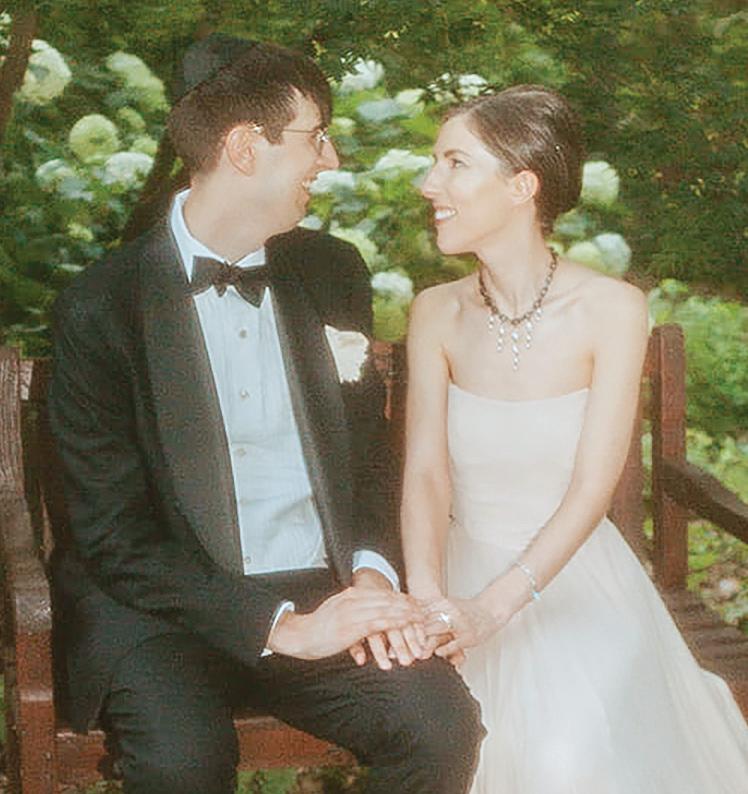
Peter Maguire ’14 moved to Washington, DC, last winter to become a speechwriter for the Department of Transportation. He showed his Panther Pride at his swearing-in by wearing a Browning tie!
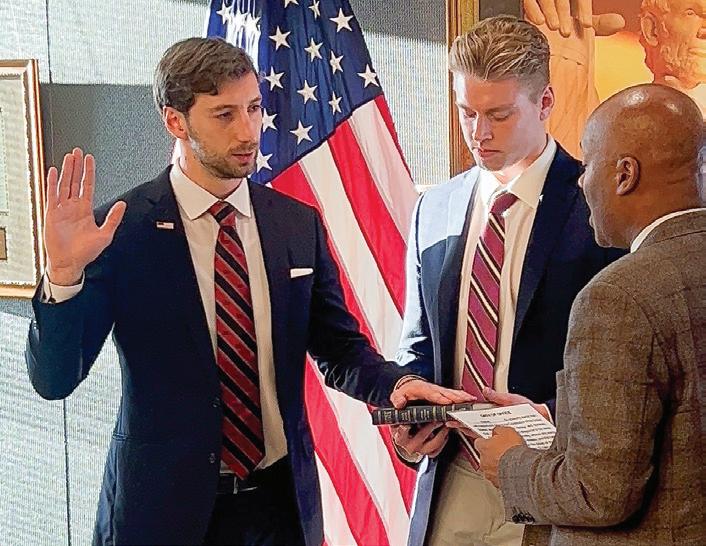
Jay Hutzler ’16 shared that he proposed to Ale Cardounel in February.
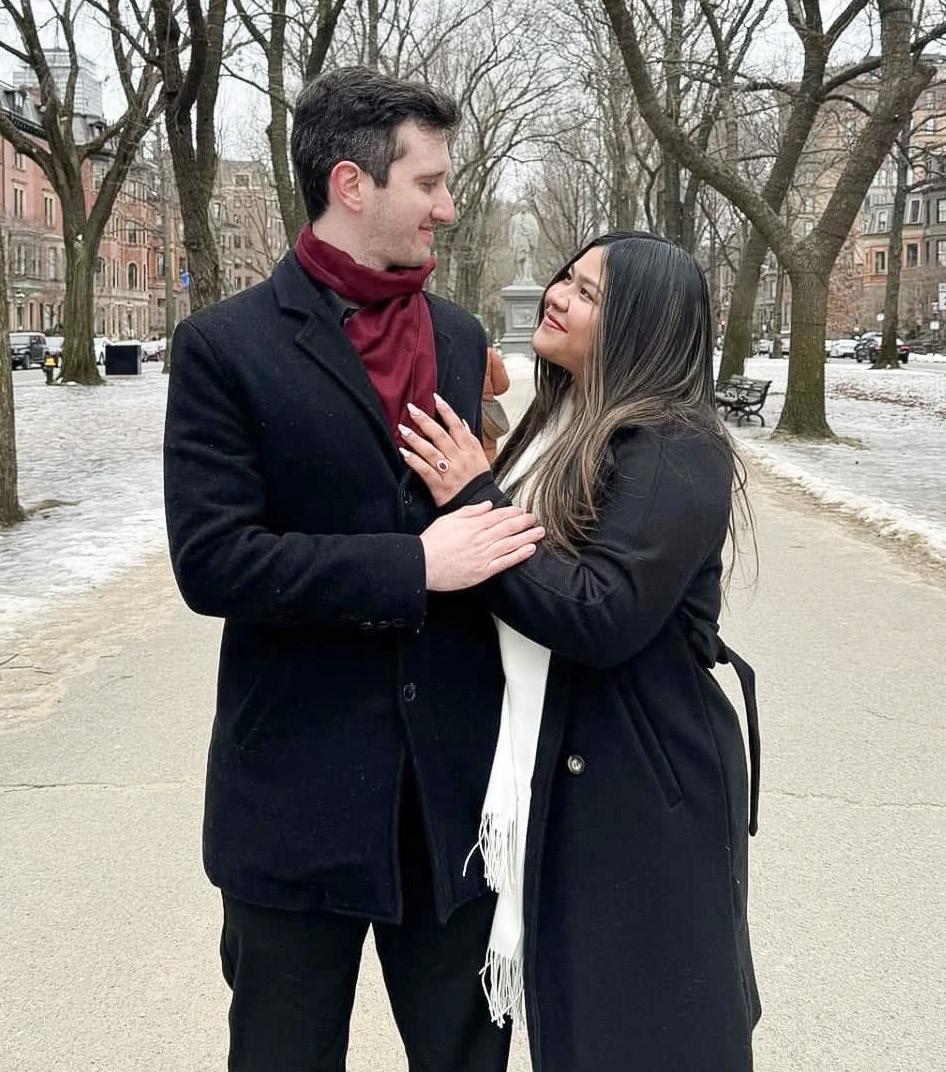
SPOTLIGHT: Chasen Hofmann ’20— From Panther Pack to Gator Nation
Chasen has been making an impact both on and off the court as a graduate assistant with the University of Florida’s Men’s Basketball team. The team secured the 2025 NCAA Championship in April.
Learn how Chasen’s time at Browning shaped his career and how working with the Gators’ pursuit of a national championship has helped him discover his purpose at browning.edu/chasen
Andrew Halajian ’21 recently graduated from Cornell University and has since accepted a position as a software engineer at Meta. He’s now living in San Francisco and excited for this next chapter.
Rohan Mehra ’23 and Malek Assef ’23 visited last fall to reconnect with their former teachers. Malek is at Boston College while Rohan has transferred from Emory to Georgetown University.

Lorcan Cheng ’24, Angel Quinonez ’24, and Young Jin Cho ’24 caught up with Janet Lien and Theresa Rodriguez in May.

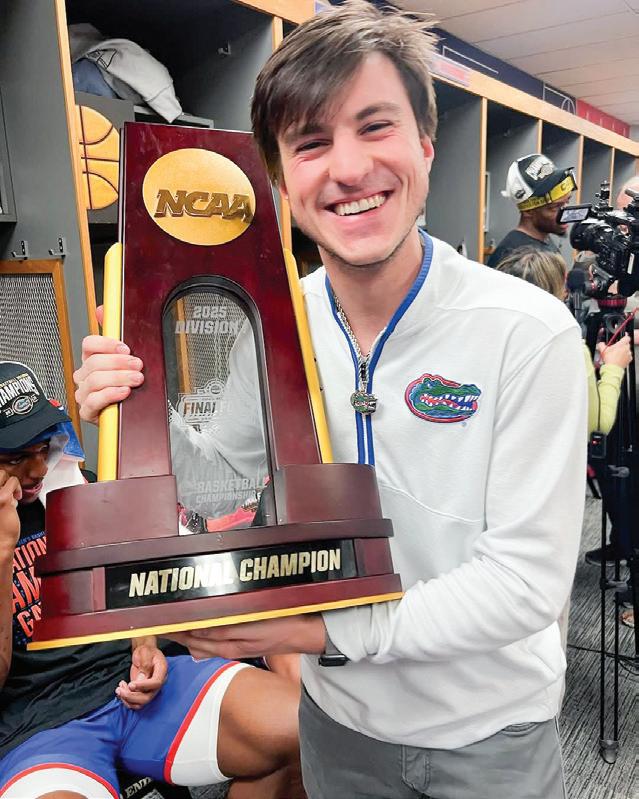
Alpha Camara ’24 and Ben Lefkowitz ’24 caught up at the Syracuse vs. Colgate basketball game in November. Ben left in high spirits as his team, the Syracuse Orange, clinched a 74–72 victory.
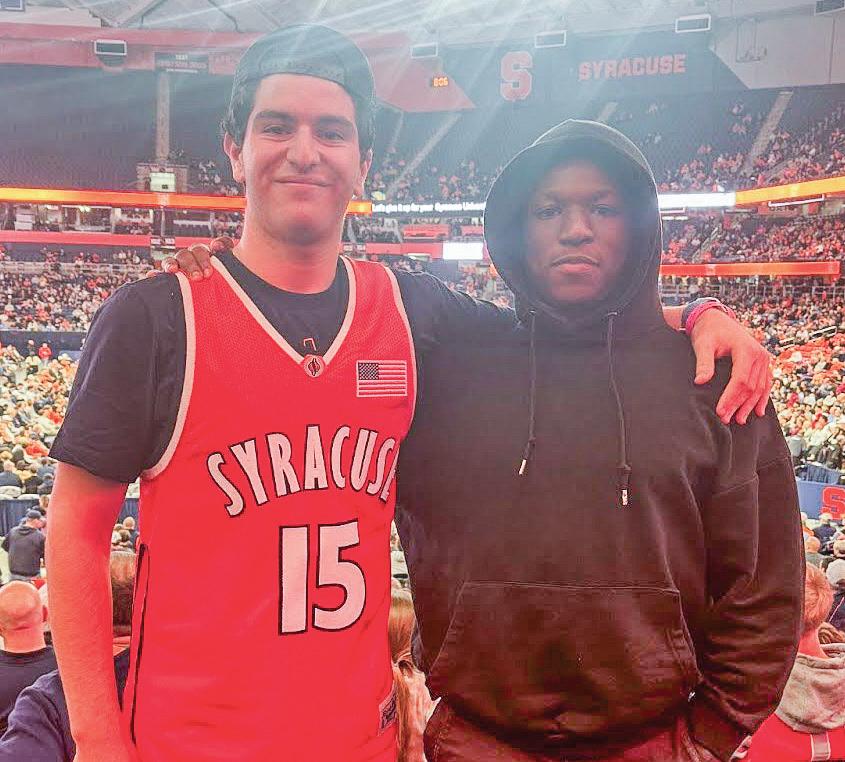
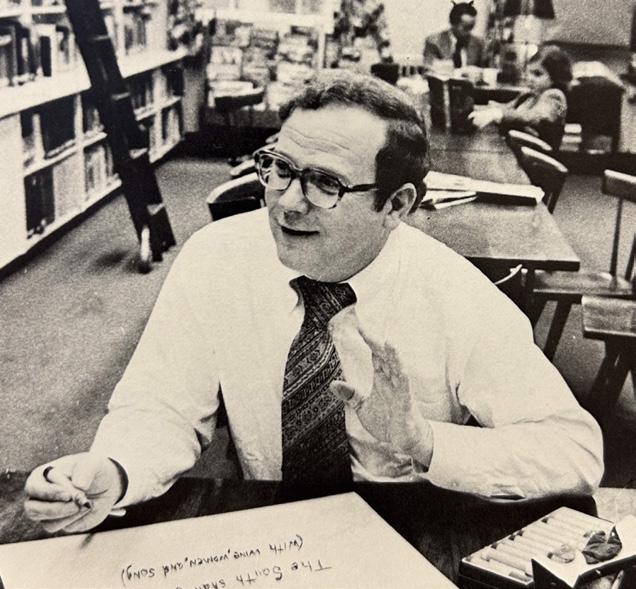
Remembered by Michael Ingrisani, former Dean of Faculty
Don Smith came to 62nd Street in 1969, after seven years in the Towson, MD, school system. Seeing that I was very new to teaching, Don generously offered pointers, alerting me to the ways of the New York independent school world.
He had a lively classroom manner, with a sharp sense of humor, a trove of stories from his days in Tennessee, and a genuine concern for his students and his colleagues. He revamped the math curriculum, participated in the creation of Interschool, and brought to Browning its first computer.
After more than 20 years at Browning, Don moved to Charleston, where he and his partner transformed an old warehouse into a charming bed-andbreakfast, enjoying more time for tennis and escaping New York winters.
Sean Khan P ’30 Shop the brand-new Athletics Store, where you can gear up with custom apparel, and accessories for men, women, and youth—just like the ones our coaches wear.
Don was a valued colleague and a good friend. I shall miss him.
Fr. Thomas Prout ’76
Jay L. Mortimer ’69
W. Woodward (Woody) Adams ’65
Haughton (“Hank,” “HR”) Randolph ’62
O’Rita Johnson P ’27
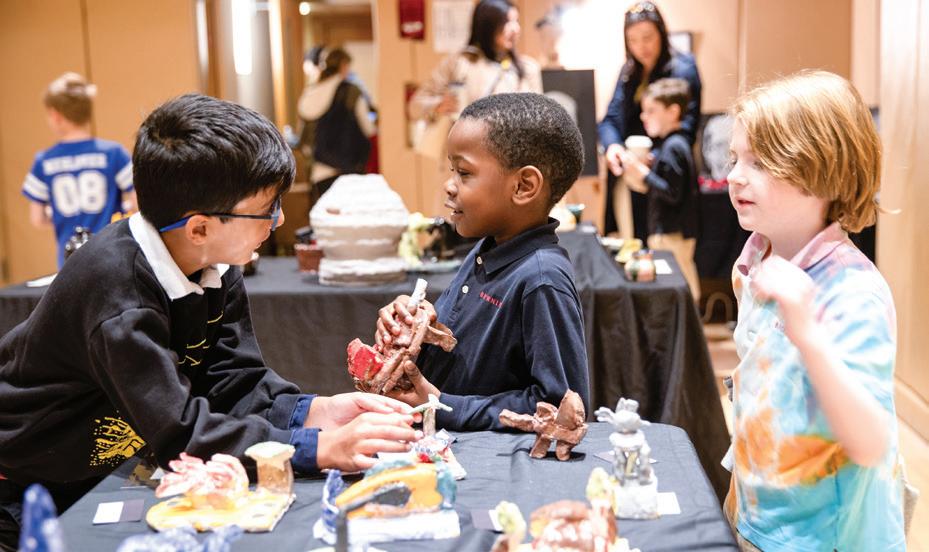



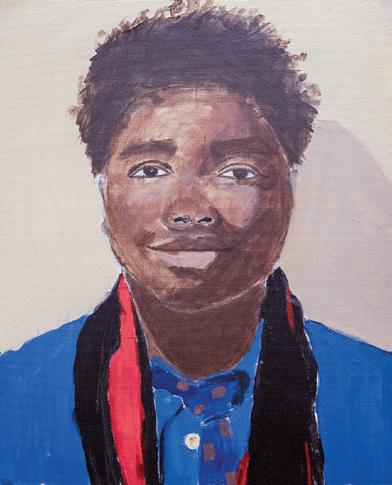

The spring Art Show highlighted the artistic development, imagination, and curiosity of our boys. Families came together to admire the remarkable progress and creative expression of our student artists, each piece telling a unique story of exploration and discovery.
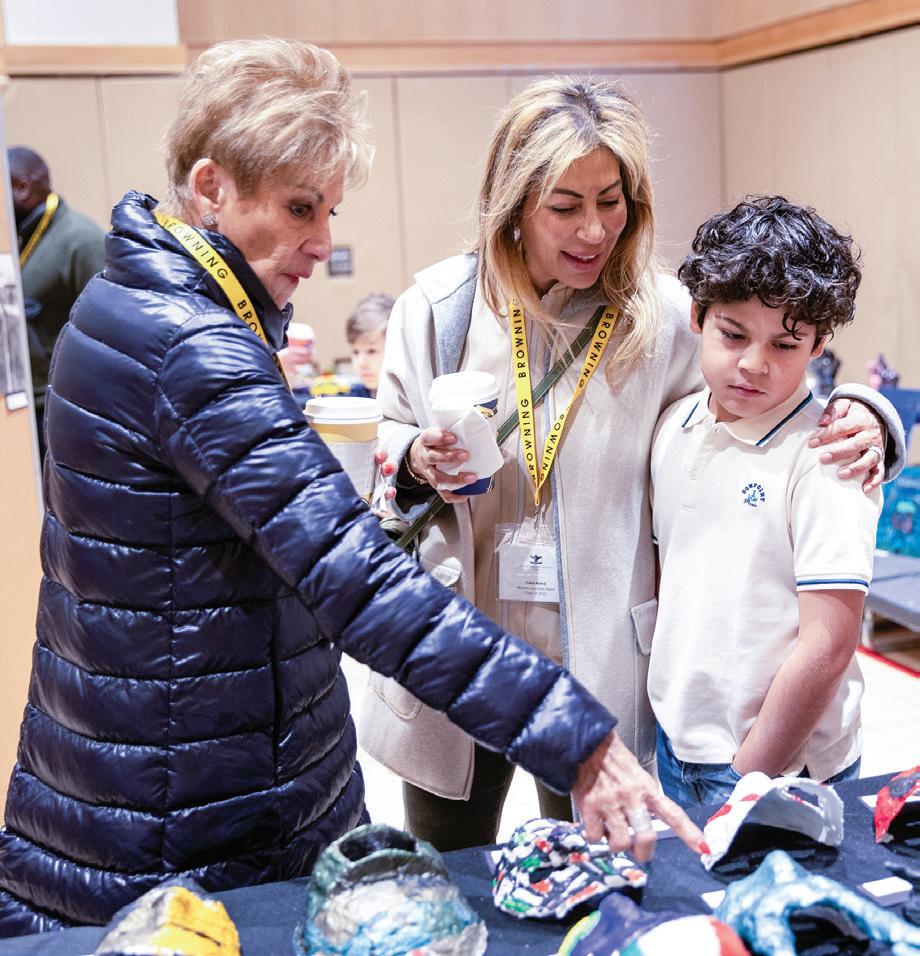

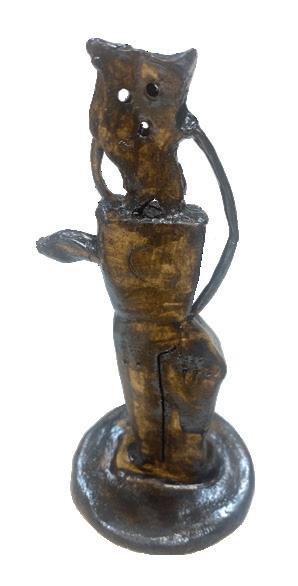

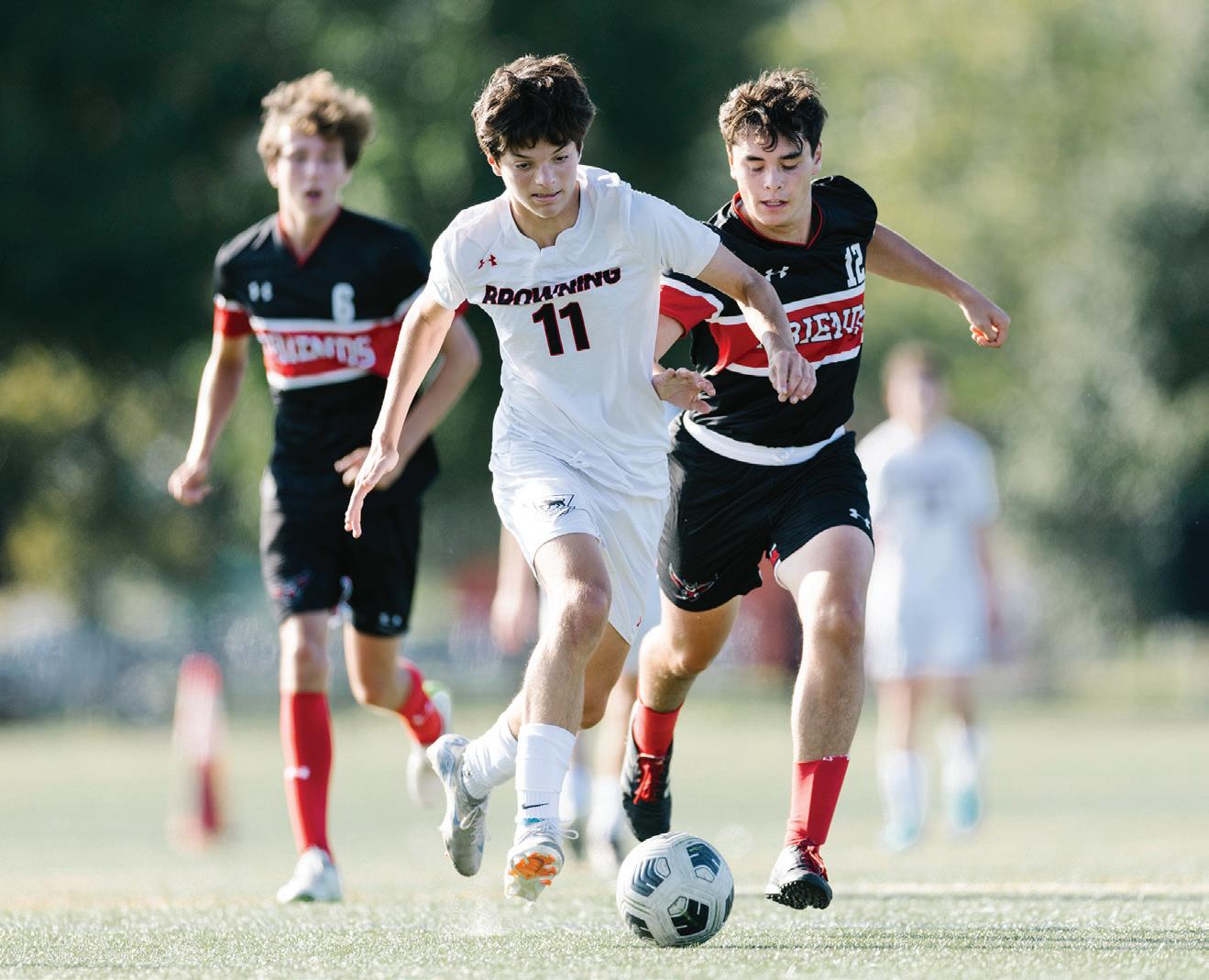

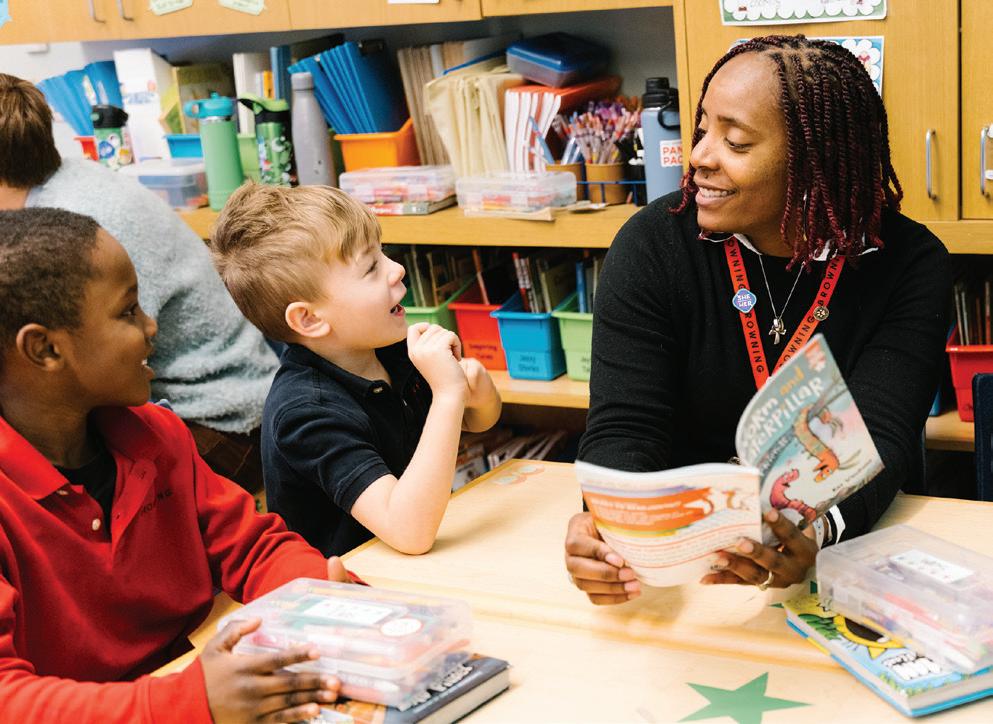
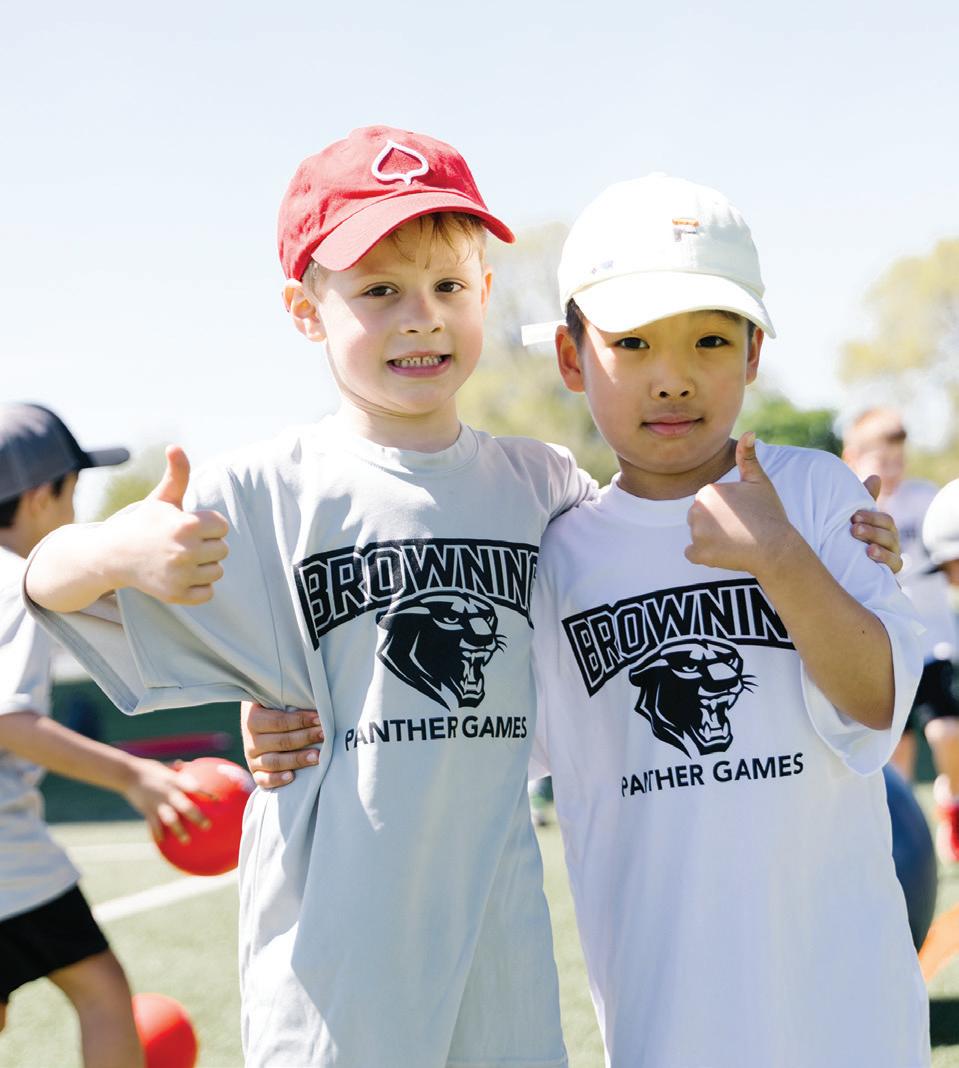
Your generous support of Browning’s Annual Fund is more than a donation it’s what makes an extraordinary education at Browning possible. At Browning, we cultivate honesty in our interactions, nurture curiosity as the foundation of learning, uphold the dignity of every individual, and guide each boy to discover his unique purpose. Every gift weaves together our mission and values to create an exceptional community. Thank you for supporting Browning.
TO UPDATE YOUR ADDRESS
Please email Krizia Moreno-Cruz at kmoreno-cruz@browning.edu.
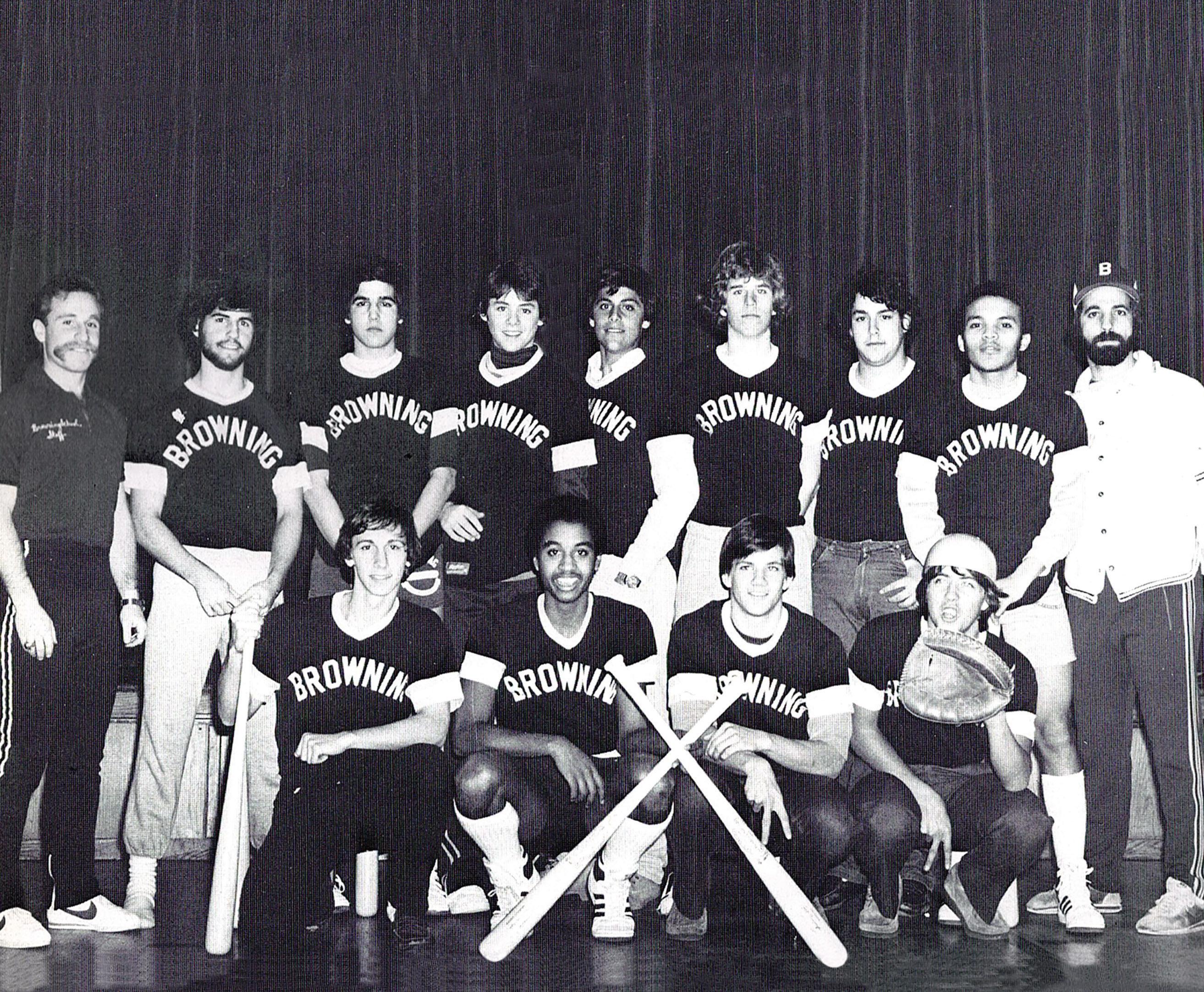
The 1980 varsity baseball team set the standard and this year’s squad just made history, winning the most games by a Browning team since that year! Learn more on page 32.